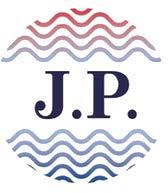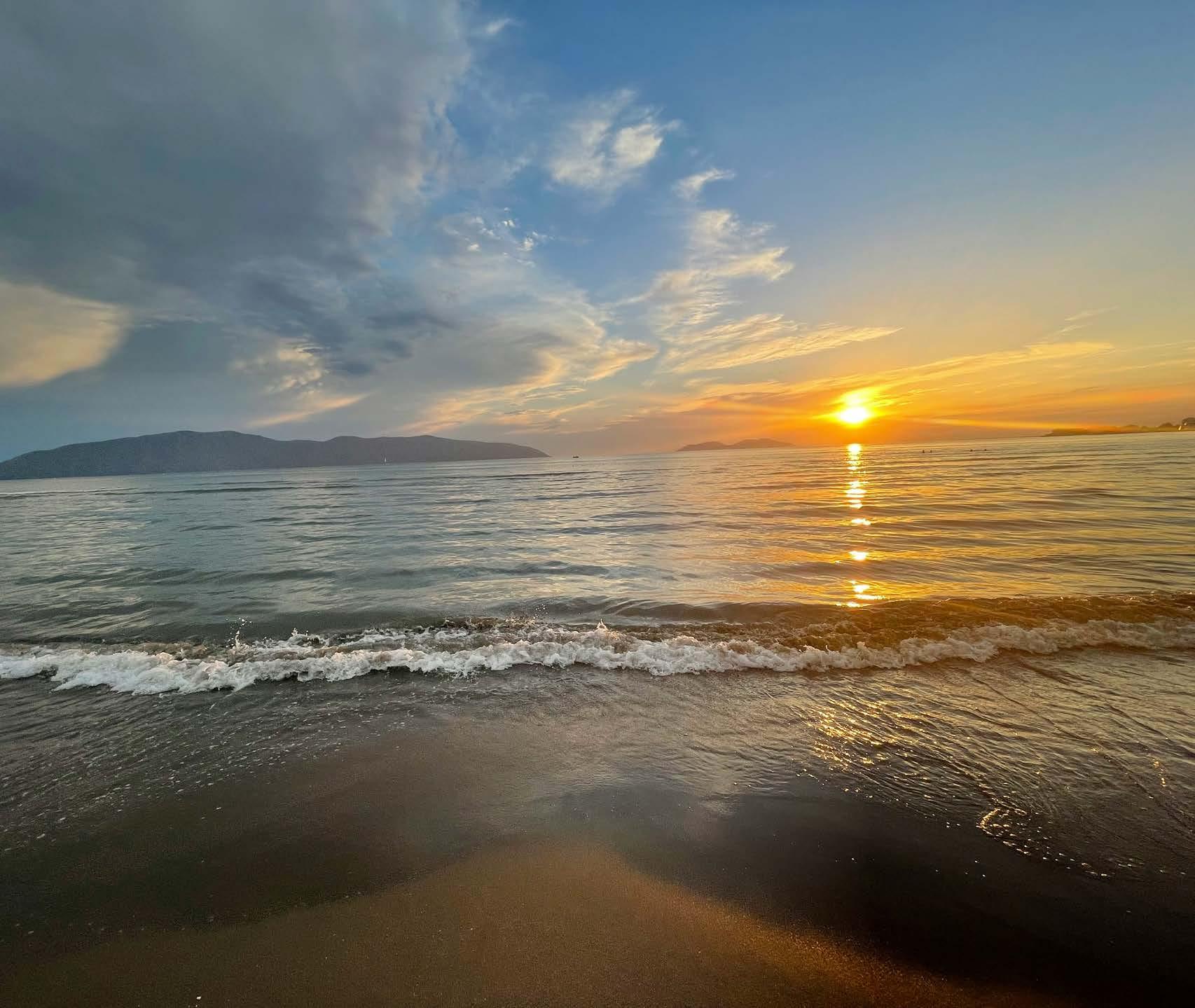




“The Life Curators” Inspired by the São Paulo’s Contagious Energy
IACA’s Theme Spirit: Let’s Unify the Diversity
Live from Vienna, Austria
Barbullushi’s
EXPERIENCE AT THE COLLEGE OF EUROPE

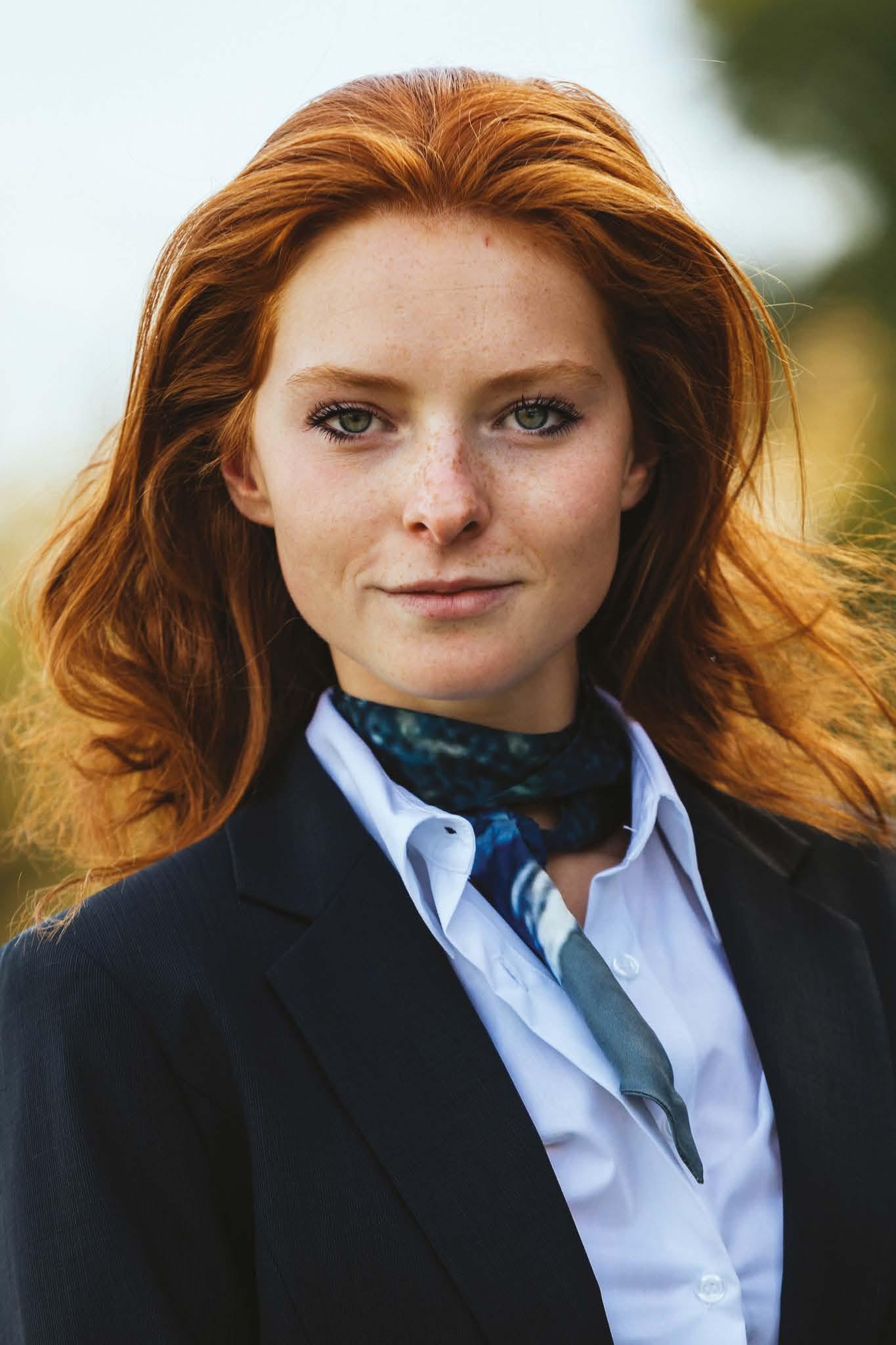
Welcome to the issue of March Trailblazing Magazine/The Women Edition, where we invite you to plunge yourself into the world of strength and wisdom, elegance, sophistication, inspiration and creativity. Stories unfold for you one after the other starting with the powerhouse from North Macedonia, Slagjana Taseva who generously invited us in Vienna, Austria to visit the International Anti-Corruption Academy (IACA). Impressed by her wisdom and hard work, Mrs. Taseva is the first female dean who holds such a key position in the 13 years of this prestigious institution’s history. She tells us about her efforts along her staff to strengthen and expand the IACA.
To continue with Mrs. Nurit Levy from Israel, the Spouse of ex-Speaker of Knesset, who is the founder and the president of *PRIDE AND HAPPINESS* “WITH YOU ALL THE WAY,” a powerful project in support of the battered women in her own country. She is doing her best to make these women see the light at the end of the tunnel again.
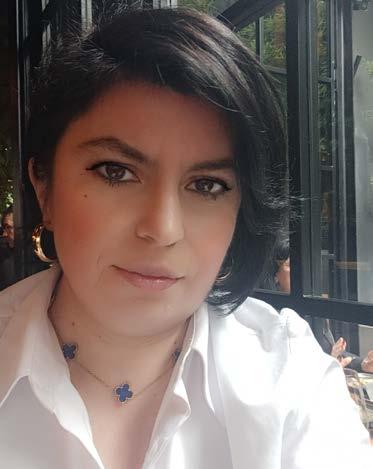
As we introduce this extraordinary edition, we learn so much from the super talented Dutch and Portuguese entrepreneur, Lara Westphalen, who has chosen São Paolo in Brazil to take care of the needs of both locals and expats for high-end concierge and relocation services or from Odeta Barbullushi from Albania, who shares with us her experience at the College of Europe in Tirana and how the College can contribute to Europeanizing the Balkans.
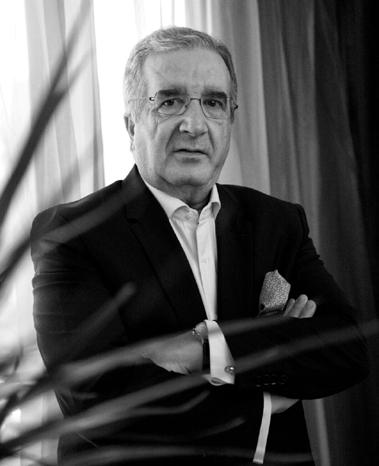
There are so many other stories waiting for you to be read…
At the end, this magazine is a reconfirmation that the woman is not only a housewife in her own house. She is the “housewife” of the whole globe. First of all, she is ALWAYS the one who produces the first rosebuds in the world. She is the One…
Enjoy reading, thank you!
We look forward to hearing your feedback rudinahoxha@jphospitality.eu josepinto@jphospitality.eu
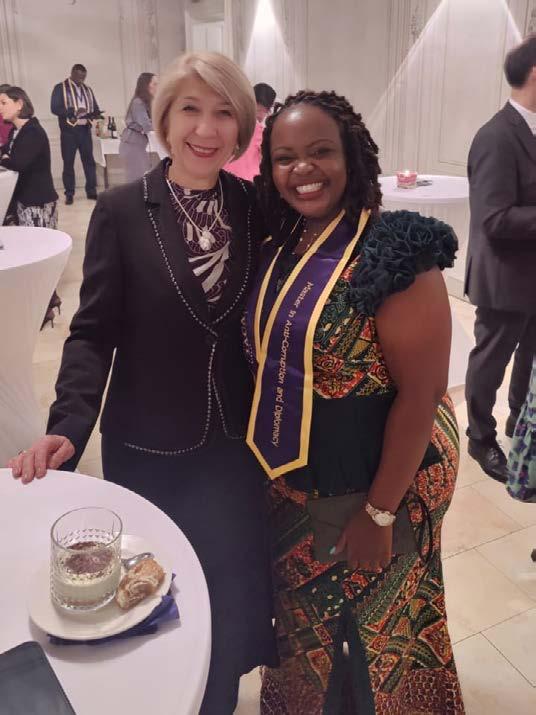
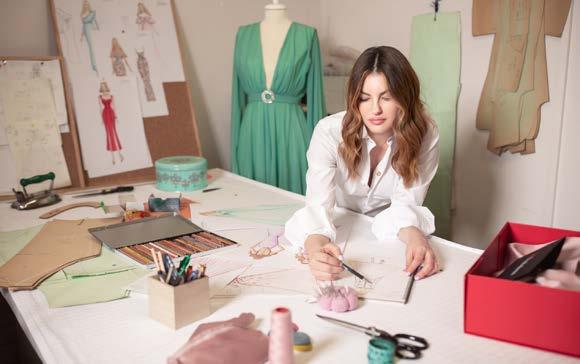
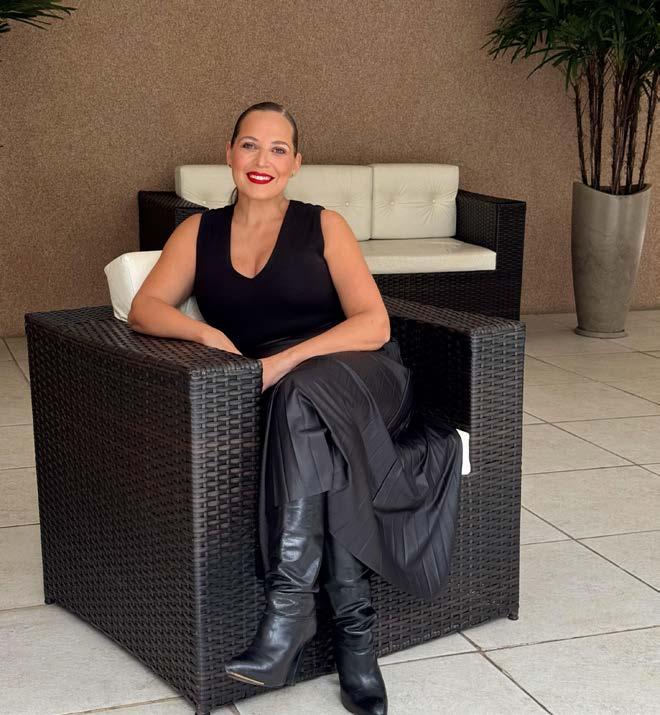
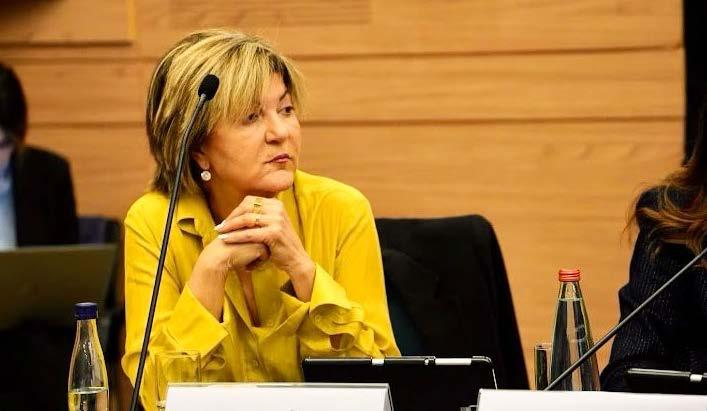
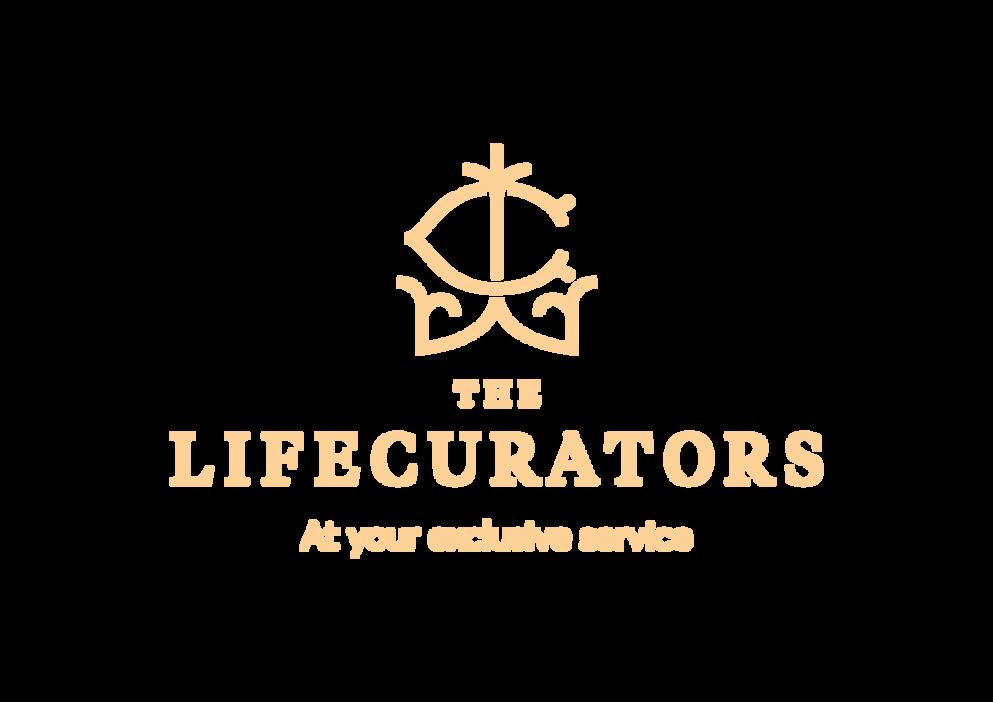
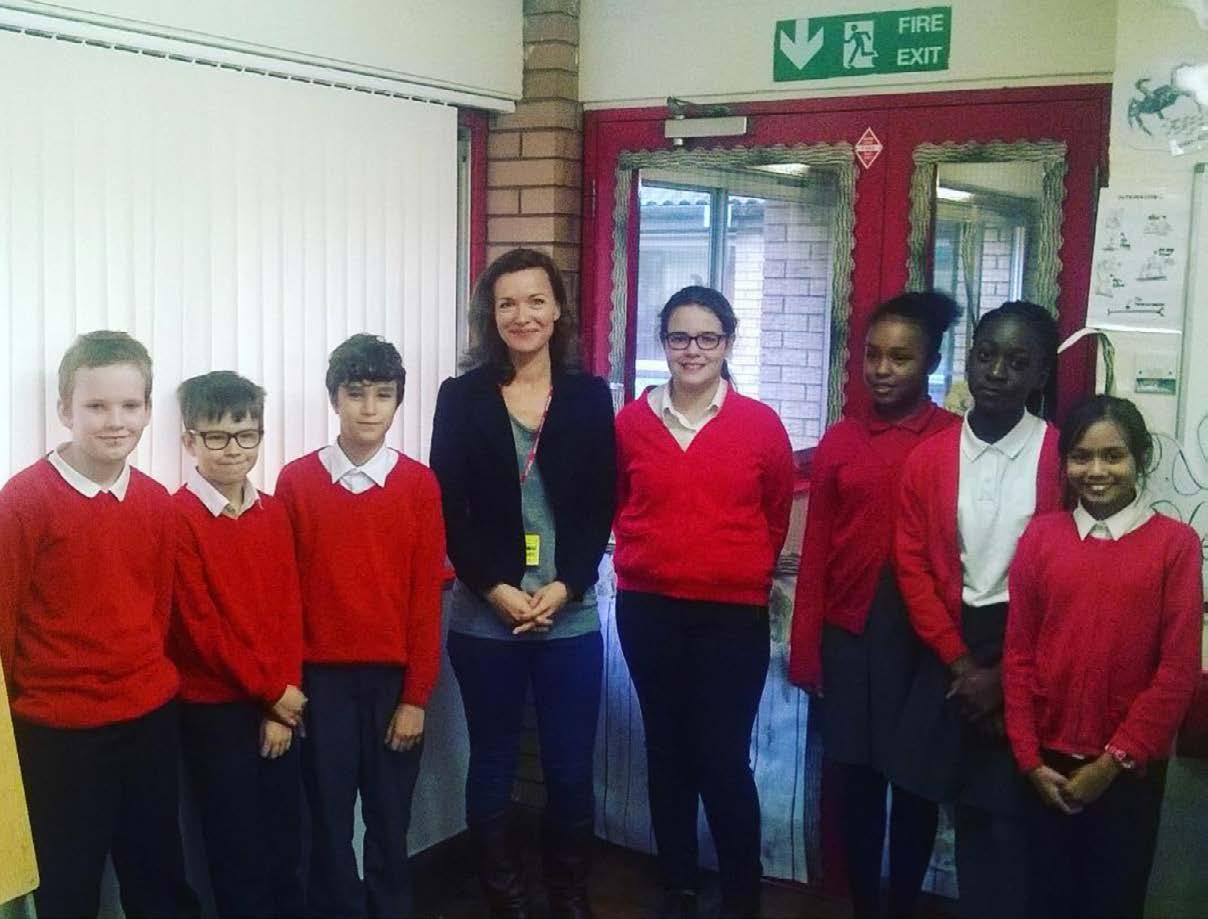
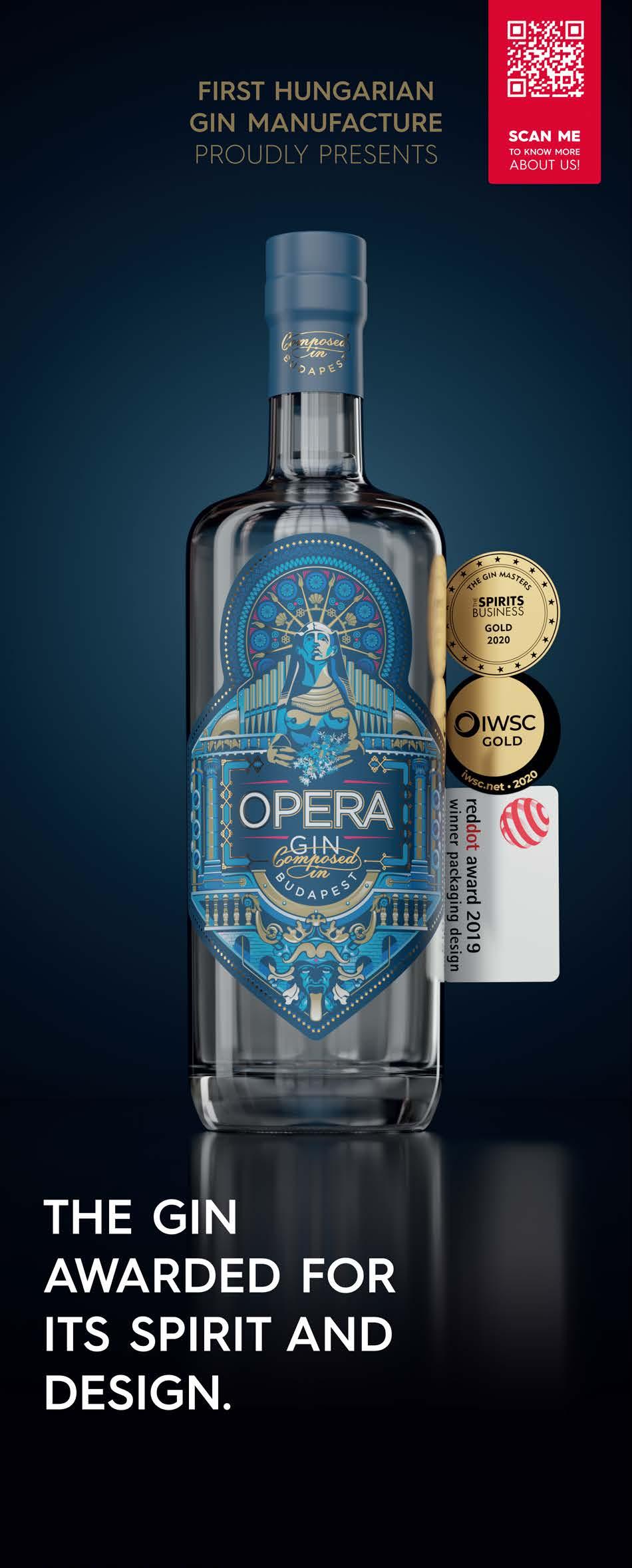
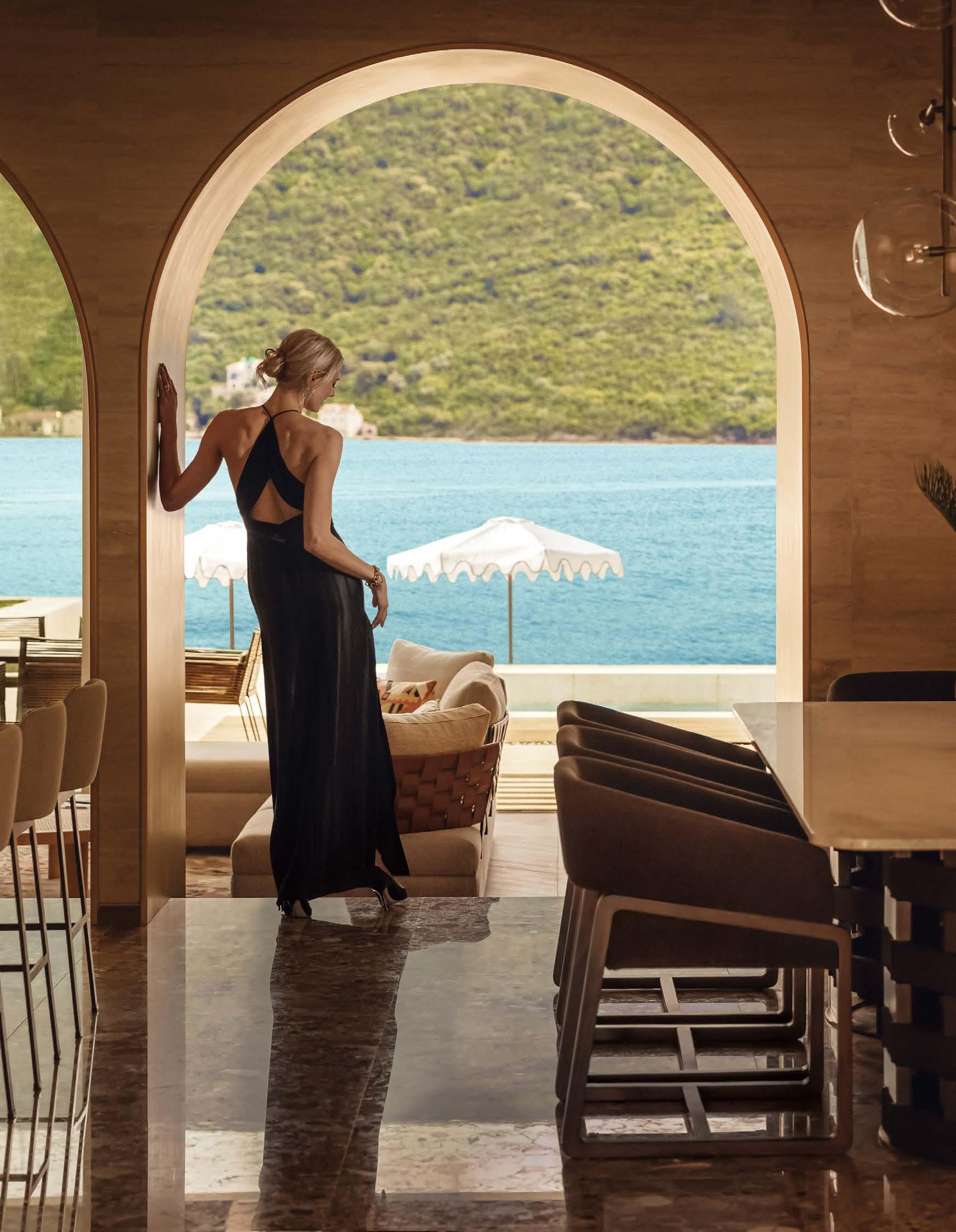
“The Life Curators” Inspired by the São Paulo’s Contagious Energy
a Dutch entrepreneur like yourself do in São Paulo? Why did you your destination? And what do you love most about your job? Portuguese entrepreneur, I chose São Paulo because it is a city with potential. São Paulo is not only the economic powerhouse of has the largest GDP in Latin America, making it a key player in the lan
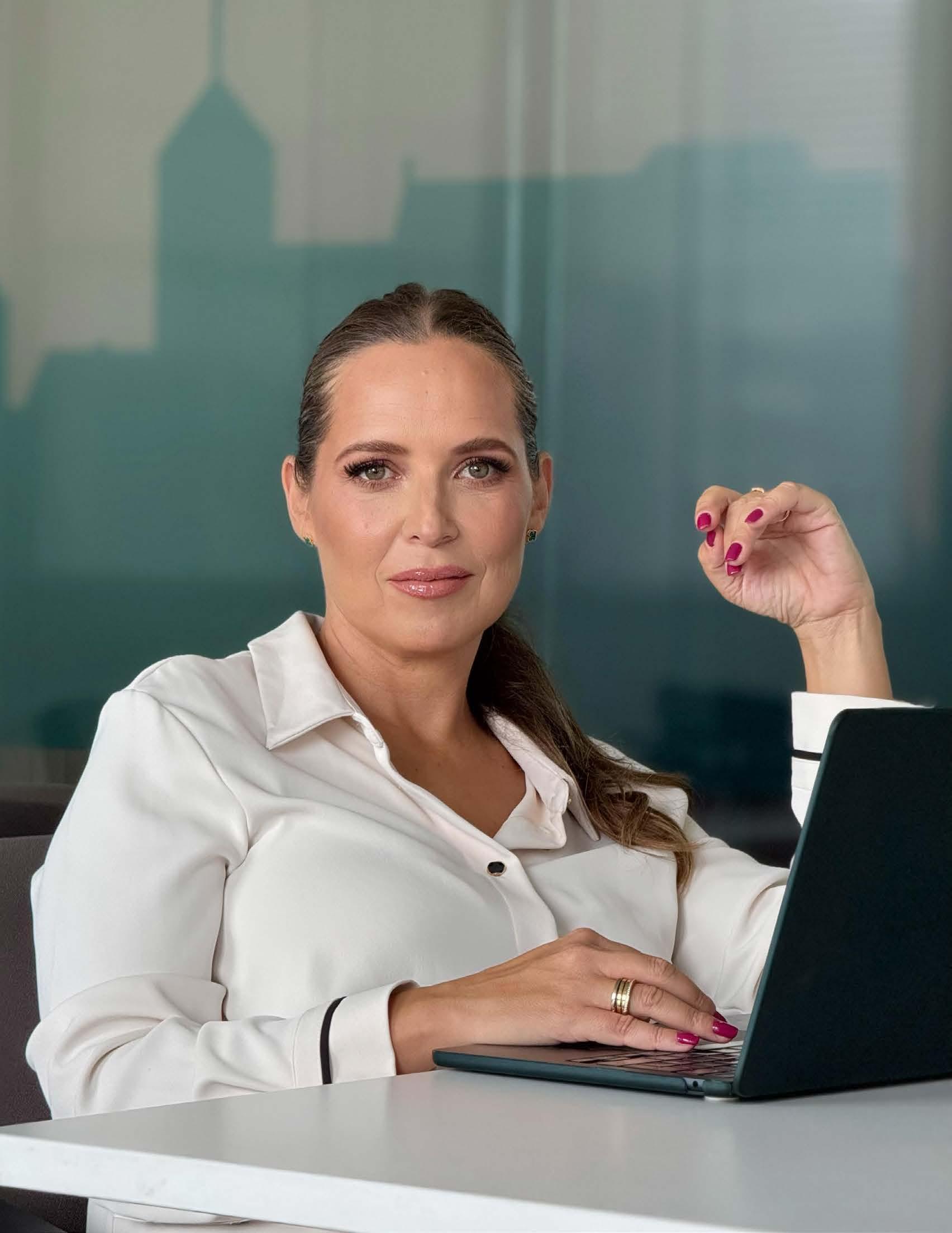
By Rudina Hoxha
Being a hotspot for start-ups and business ventures with a thriving network of entrepreneurs eager to collaborate and create, São Paulo is a vibrant city, chosen by many entrepreneurs from all over the world. One of them is Lara Westphalen, a Dutch and Portuguese entrepreneur who wanted to be part of this pulsating environment and energy.
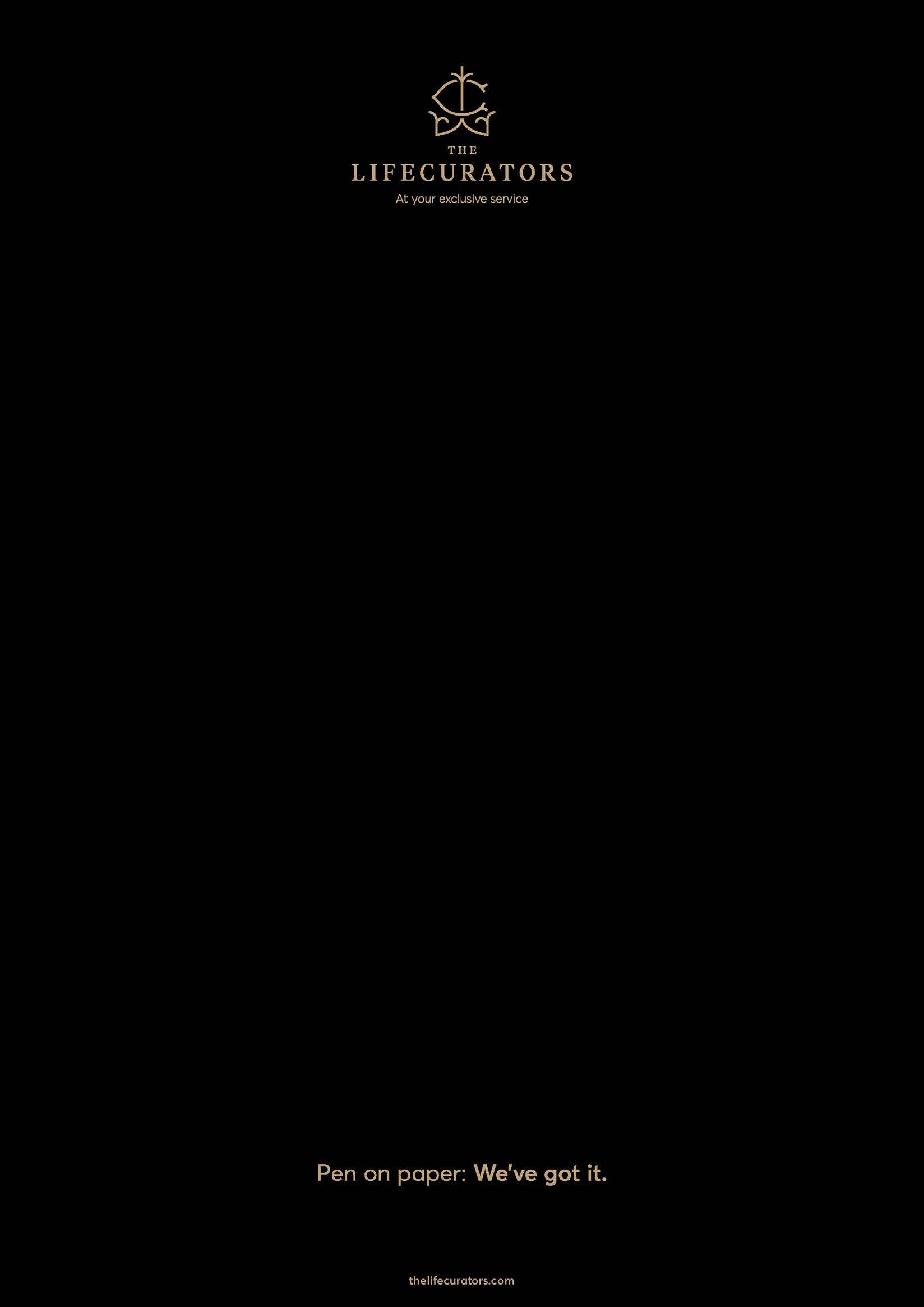
our business has evolved into offering a complete lifestyle management solution, especially focused on the needs of business executives and entrepreneurs. While we still provide relocation support, our core offering now revolves around personal and executive assistant services,” she highlights.
“The Life Curators” business patterns were influenced by her personal experience when she and her family was relocated from Lisbon to São Paulo in 21 days.
Full interview below:
“The city’s fastpaced and constantly evolving environment provides a fertile ground for innovation and growth, which is why it’s such an attractive location for entrepreneurs like myself. The energy here is contagious, and that’s something I wanted to be part of,” Lara told Trailblazing Magazine/The Women Edition.
“Today, our business has evolved into offering a complete lifestyle management solution, especially focused on the needs of business executives and entrepreneurs. While we still provide relocation support, our core offering now revolves around personal and executive assistant services. We have a team of personal assistants and executive assistants dedicated to helping busy entrepreneurs streamline their lives, both personally and professionally.”
What does a Dutch entrepreneur like yourself do in São Paulo? Why did you choose Brazil as your destination? And what do you love most about your job?
In this city, she saw the need for high-end concierge and relocation services tailored to both locals and expats, which led Lara to establish The Life Curators.
Initially The Life Curators focused on relocation services. As the business grew and they gained more insight into their client’s needs, they saw an opportunity to expand beyond relocation and into the realm of concierge services. “Today,
As a Dutch and Portuguese entrepreneur, I chose São Paulo because it is a city with opportunities and potential. São Paulo is not only the economic powerhouse of Brazil, but it also has the largest GDP in Latin America, making it a key player in the region’s business landscape. With its diverse and dynamic economy, São Paulo is a hub for industries ranging from finance and technology to arts and culture. The city’s fast-paced and constantly evolving environment provides a fertile ground for innovation and growth, which is why it’s such an attractive location for entrepreneurs like myself.
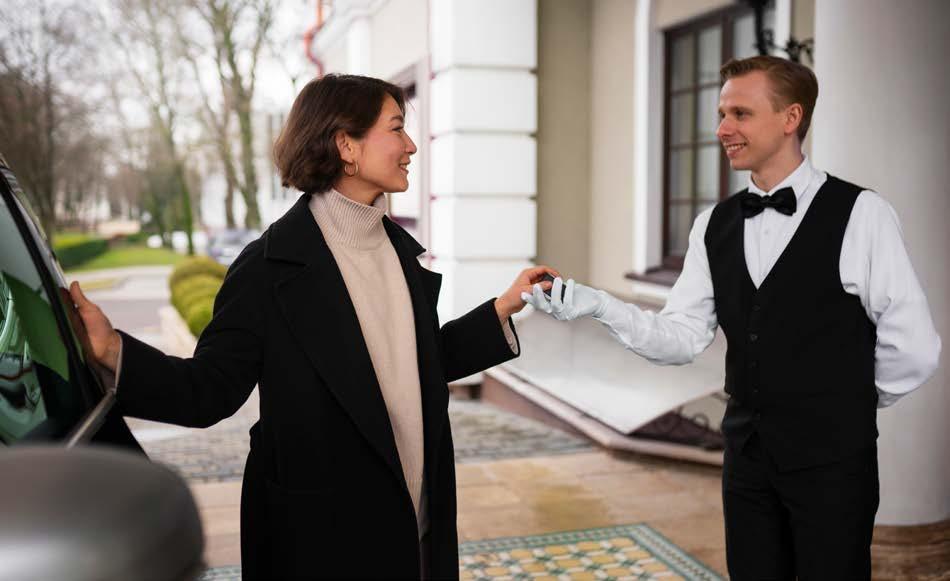


Additionally, São Paulo boasts the 5th highest entrepreneurship rate globally. This makes it a hotspot for start-ups and business ventures, with a thriving network of entrepreneurs eager to collaborate and create. The energy here is contagious, and that’s something I wanted to be a part of. I saw the need for high-end concierge and relocation services tailored to both locals and expats, which led me to establish The Life Curators in this vibrant city.
What I love most about my job is the diversity of experiences I get to curate. Each client brings a new set of challenges and aspirations, which keeps things exciting. Whether it’s helping someone settle into a new life in São Paulo or curating a bespoke experience for a visiting CEO, no two days are ever the same. I thrive on the creativity, problemsolving, and human connection that my work brings, and I feel incredibly privileged to be part of such an innovative and
entrepreneurial ecosystem here in São Paulo.
In your view, why do people use a Concierge & Relocation agent/company, and why should they choose The Life Curators among others? How was 2024 for your company?
When we first started The Life Curators, we focused primarily on relocation services. We helped individuals and families settle into new cities, taking care of everything from finding homes to managing logistics. However, as the business grew and we gained more insight into our client’s needs, we saw an opportunity to expand beyond relocation and into the realm of concierge services.
Today, our business has evolved into offering a complete lifestyle management solution, especially focused on the needs of business executives and entrepreneurs. While we still provide relocation support, our
core offering now revolves around personal and executive assistant services. We have a team of personal assistants and executive assistants dedicated to helping busy entrepreneurs streamline their lives, both personally and professionally. This includes managing their day-to-day tasks— everything from personal errands and travel planning to coordinating business meetings and social events.
The niche we’re most focused on is enabling entrepreneurs and executives to delegate the mundane tasks that consume a lot of time, allowing them to focus on what truly matters: growing their businesses, spending quality time with their families, and maintaining a balanced social life. We’ve found that our clients value the fact that they don’t need to waste time on routine matters that can be easily outsourced. It’s all about providing them with the freedom to focus on the big picture while we take care of the details.
2024 was a year of tremendous growth for us, as we opened the company here in Brazil (we also have The Life Curators based in Europe). We saw an increasing demand for our executive and personal assistant services, particularly from highlevel professionals. Our team expanded, and we were able to help more clients streamline their lives, and that has been incredibly rewarding. We’re excited to continue growing in this space, with a focus on offering even more bespoke services tailored to the specific needs of each individual.
The motto of your company is “We’re here to curate your life. Because if you can dream it, we can do it.” What services do you offer your customers?
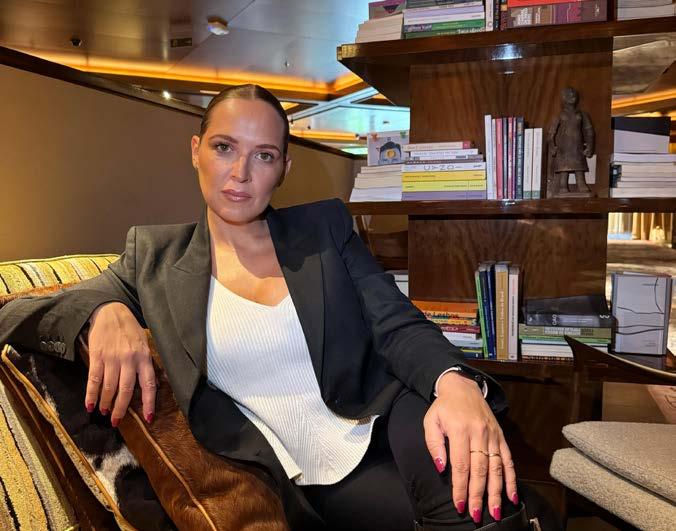
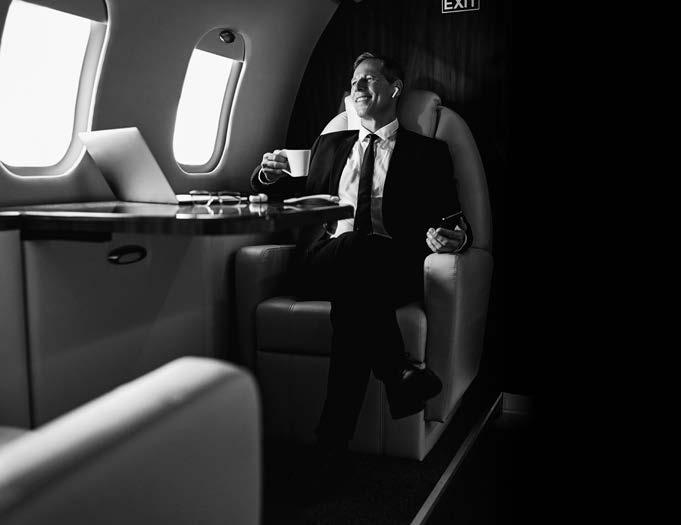
At The Life Curators, we offer a comprehensive range of services designed to take the stress out of our clients’ busy lives, so they can focus on what truly matters. Our motto reflects our commitment to delivering a personalized, high-touch experience, where no request is too big or too small.
“What I love most about my job is the diversity of experiences I get to curate. Each client brings a new set of challenges and aspirations, which keeps things exciting”
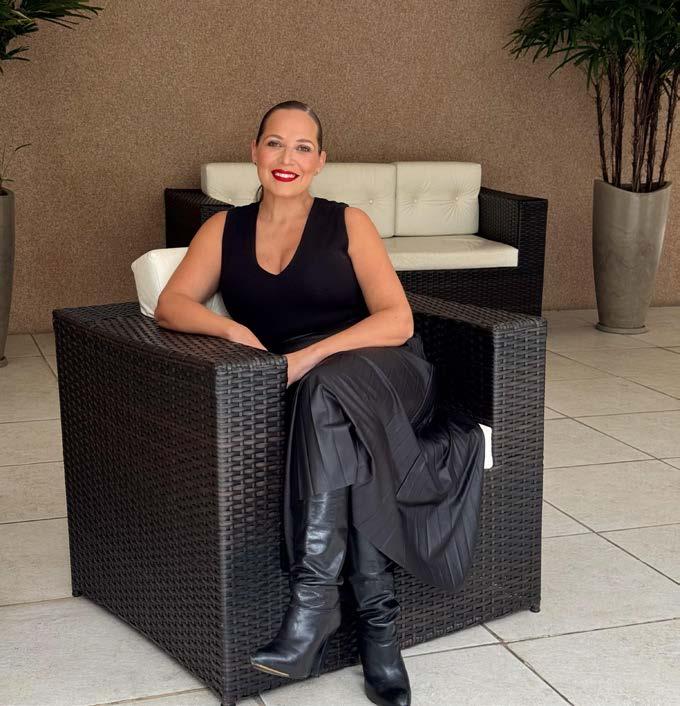
We provide extensive agenda management services, including organizing appointments, meetings, and business trips. We handle everything from scheduling and prioritizing commitments to adjusting plans as needed. We also act as an intermediary between executives and their team members, ensuring seamless communication and efficiency. For business trips, we manage every detail— transportation, accommodation, insurance, itineraries—and provide detailed daily scheduling to ensure nothing is missed.
We assist with all aspects of personal and household management, such as house maintenance, official documentation, insurance, banking, and real estate. Whether it’s overseeing regular home maintenance or managing official paperwork, we ensure that everything is taken care of with the highest level of precision.
Our services extend to shopping, personal errands, and helping clients navigate investment opportunities. We coordinate business meetings, including event planning, team-building activities, and business trip arrangements such as flight
reservations and hotel bookings. We also take care of more leisure-related requests, from city guides and private helicopter & jet services to arranging gourmet dining experiences, private yacht & boat rentals, and personalized custom experiences.
For families, we provide full support with school prospecting and registration, organize tutors, after-school activities, and even help with pick-up and dropoff services for children. We also handle the planning of birthday parties, intimate gatherings, and celebrations, including larger events like helping with weddings and birthday parties.
In short, we aim to create a seamless experience for our clients by offering a range of tailored services that span both personal and professional needs. Whether it’s managing everyday tasks or crafting unforgettable experiences, we’re here to make life easier and more enjoyable. If you can dream it, we can do it.
The company operates internationally, with clients in more than 50 countries, but mainly in the UK, Brazil, Portugal, and Spain. Can you share with us some interesting episodes?
One of my most cherished experiences was assisting a family from the UK with their move to São Paulo. Initially overwhelmed by the prospect of adapting to a new culture, they were filled with uncertainty. Beyond simply finding them a beautiful home, we took the extra step of connecting them with welcoming local communities, ensuring they felt a sense of belonging from day one. Witnessing their seamless integration, from embracing the vibrant lifestyle to forming meaningful friendships, was incredibly fulfilling.
Another unforgettable moment was curating an exclusive event for a highprofile client in Spain. We orchestrated a tailor-made cultural experience, blending private tours of historic landmarks with an opulent yacht cruise along Marbella’s breathtaking coastline. Every detail was meticulously crafted to reflect their vision, transforming an idea into an extraordinary reality. Seeing their sheer delight as everything unfolded perfectly was a testament to the passion and precision we pour into our work.
I wouldn’t exactly call it our favourite, but the most challenging relocation was, in fact, a very personal one—our own. It’s a perfect example that, despite being relocation experts, we still faced the same hurdles and complexities of moving to a new country.
We relocated from Lisbon to São Paulo in just 21 days, with two very different-aged children, no school, no home, no office space, and no contacts in the city, nothing. We arrived in São Paulo without knowing anyone and with many decisions still to be made, including selecting the right schools for our children – which was something that made me nervous as school would start 4 days after our arrival!
While this experience was certainly a mix of excitement and challenge, it gave us invaluable insights into the emotional and logistical hurdles that our clients face. We truly understood the stress and pressure of relocation, even as we were managing everything from scratch—finding a house, setting up an office, and making sure our family was comfortable and settled. It was a perfect reminder of why we do what we do: to make these transitions smoother and
to take the weight off people’s shoulders so they can focus on what matters most.
This personal experience shaped the way we approach our services. It gave us a deep empathy for our clients and allowed us to refine our processes to offer even more tailored, thoughtful assistance.
What are your objectives for 2025, and what will be the role of AI and innovation in achieving your goals?
Our main objective for 2025 is to continue expanding our services globally, while maintaining the personalized, hightouch approach that sets us apart. We’re particularly focused on growing our presence in key cities and refining our offerings to better meet the needs of entrepreneurs and high-level executives.
As for AI and innovation, we see huge potential in using these technologies to enhance our service delivery. AI can help us streamline tasks like scheduling, managing client requests, and even providing personalized recommendations based on past preferences. We are currently exploring AI-powered tools to improve efficiency, communication, and the overall client experience.
This AI tool is still in the development phase, and we’re taking the time to study and test its potential. However, we’re optimistic that it will become a valuable asset in our operations, helping us deliver even more tailored services faster and more accurately. We believe that AI, when properly integrated, will be a gamechanger, and we’re excited about the possibilities it will bring for the future.

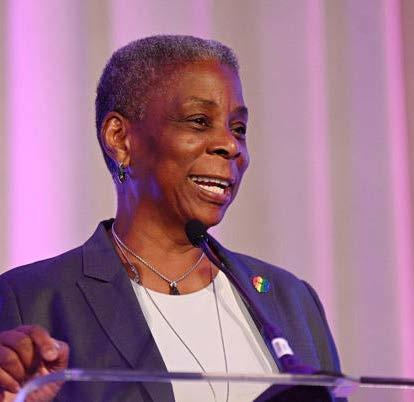
Elegant and successful women have made their mark in history and the modern world, not just with their impeccable appearance, but also through their values, discipline, and mindset. From Coco Chanel to Oprah Winfrey, these women have shown that true elegance goes beyond clothing; it’s an attitude and a lifestyle. Here are seven essential traits of an elegant and successful woman:
This workplace ‘superpower’ helped me rise to the top, says first Black woman CEO in the Fortune 500
Ursula Burns, the first Black woman CEO of a Fortune 500 company, says she climbed the career ladder with a simple strategy: relentlessly taking advantage of every opportunity thrown her way at work, no matter how inconvenient.
These days, stress at work is a given & especially for women who are juggling a million things at once. However, they know just how to keep that stress in check. Many successful women have some hacks that fit the unique challenges that they face in the workplace. Here are ten empowering strategies that women use to handle workplace stress. Rather than surviving the workday grind, you can thrive & grow-maybe even enjoy it!
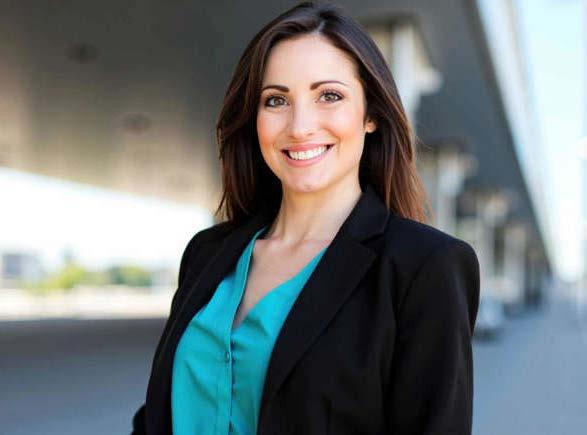
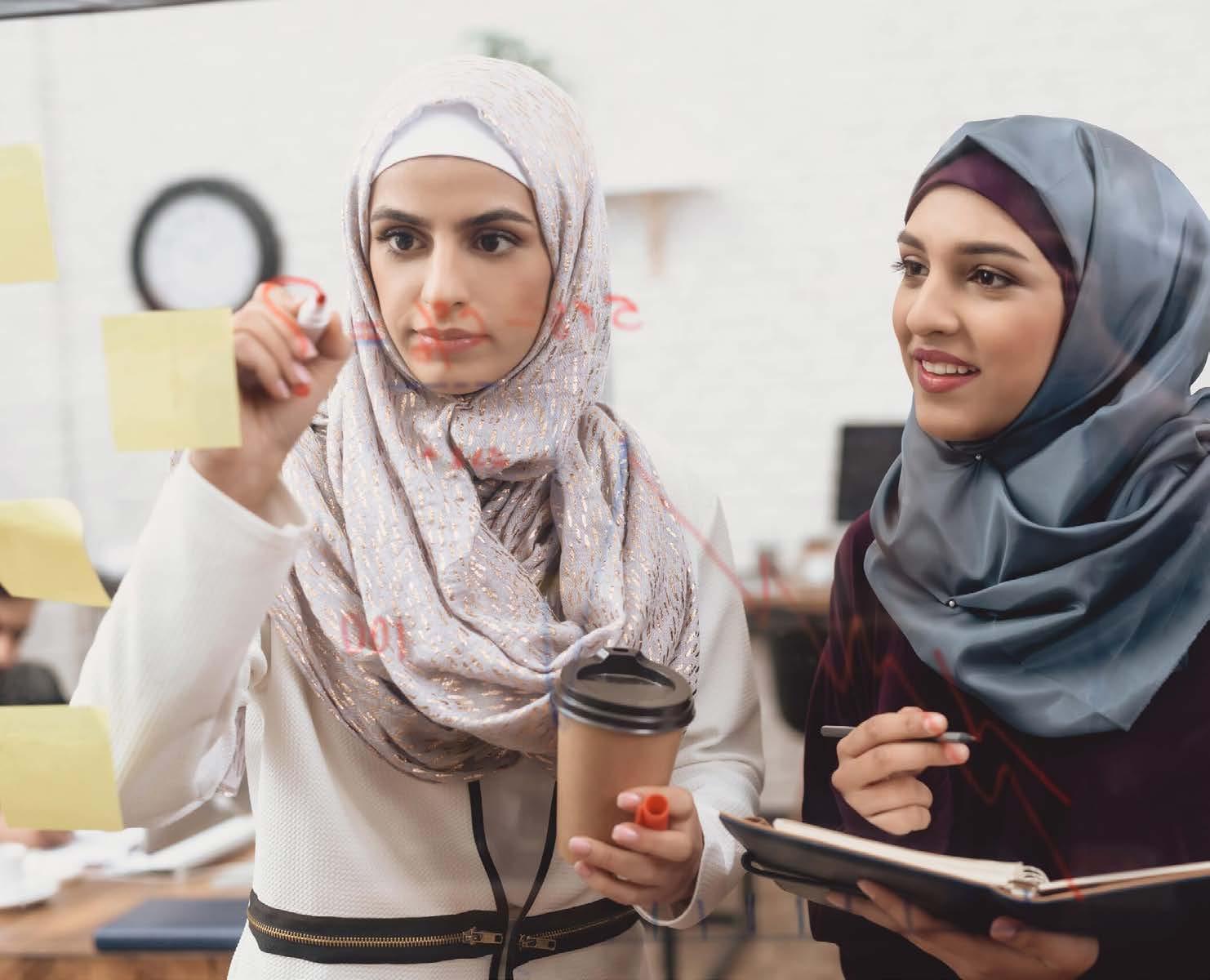
Thinking about starting your own business as a woman in Dubai? You’re not alone! Dubai has emerged as a beacon for female entrepreneurs, offering a variety of opportunities and support systems. In this article, we’ll delve into seven compelling reasons why women should consider Dubai as their launchpad for entrepreneurial success.
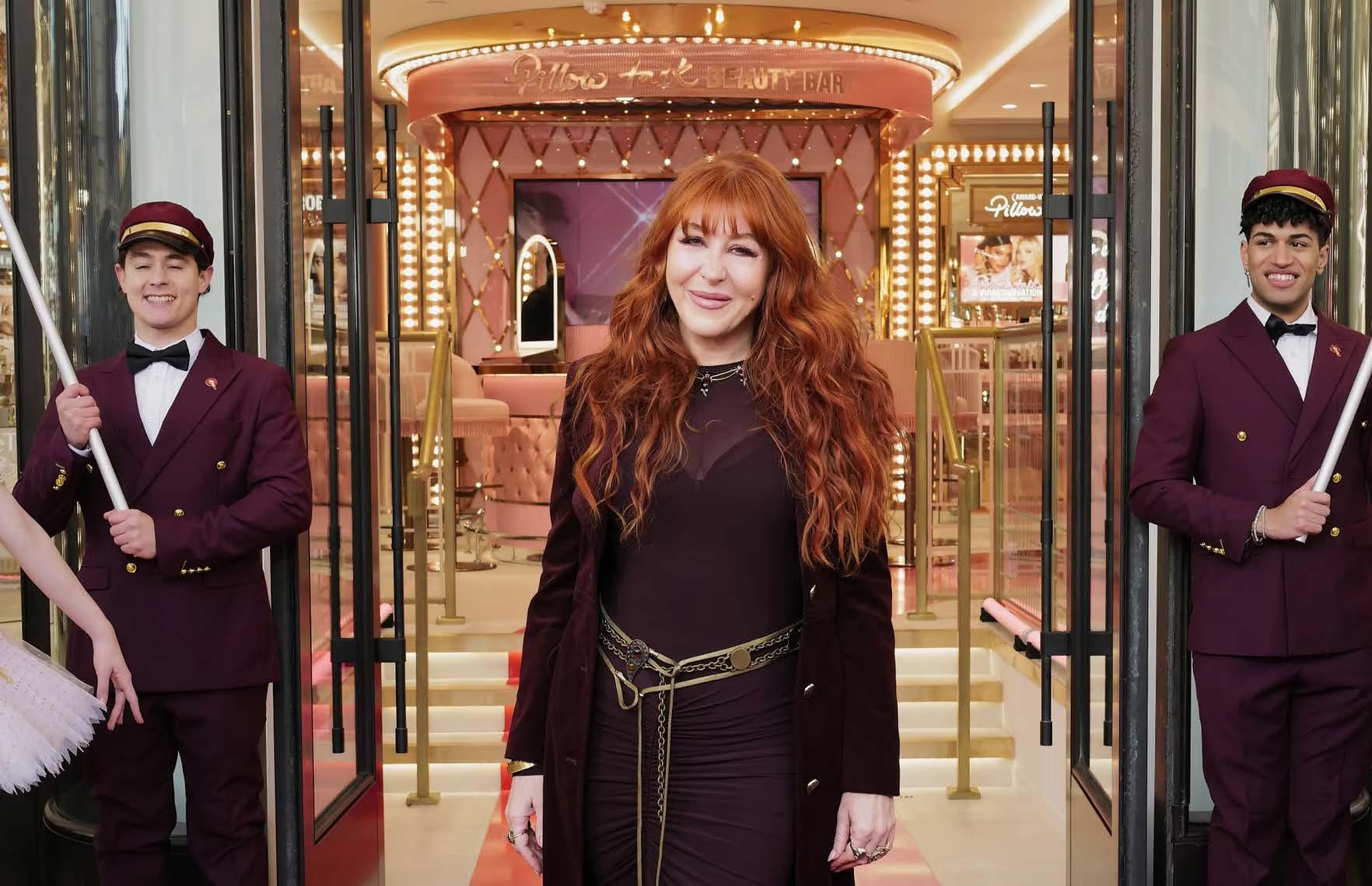
CHARLOTTE TILBURY tops list of UK’s richest beauty entrepreneurs
Charlotte Tilbury has topped a list of the top 30 richest beauty entrepreneurs in the UK.
The entries on the Sunday Times’s inaugural Beauty Rich List have built their wealth from a range of products and services including skincare, hair care, makeup, bath bombs and tanning shops.
Tilbury, who has worked with supermodels including Bella Hadid, Kate Moss and Naomi Campbell, dominates the list with an estimated fortune of …
Read more: https://www.theguardian.com/fashion/2025/ mar/15/charlotte-tilbury-tops-list-of-uks-richestbeauty-entrepreneurs
By Jeannine Litmanowicz & Rudina Hoxha
Mrs. Nurit Levy, the Spouse of the exSpeaker of the Knesset, Mickey Levy, sat with TRAILBLAZING MAGAZINE/The Women Edition to talk about her project on the women who suffer violence.
*PRIDE AND HAPPINESS* “With you all the way” is the name of the project that she is carrying out in collaboration with the NGO “Woman to Woman” which provides physical haven, emotional support and general help for victims of domestic violence in Israel.
Levy, the president and the founder of the organization, explains how she created it and what is in the pipe.
She also have a special “thank you” to Mrs Ofra Geneo, Chaiman of the Woman to Woman organisation, to Mrs Revital Sharabi, Chairman of With you all the Way, and to Mrs Naomi Schneiderman, GM of Woman to Woman, and of course to all the wonderful women who are the working force in this project. “Without them, it wouldn’t be possible,” she stated.
Full interview follows:
Dear Mrs. Levy, Welcome aboard! You have been recognized and appreciated for your contribution to
fight the violence against women. Please can you tell us more about your project
“With You All the Way” in support of the women, subject to violence? What are your enterprise’s emblematic actions and supports?
“With you all the way” is related to helping women who were displaced in shelters. The group is actually a voluntary group that helps women who are up to 12 months in the shelters and the mentors help them start their new life after they leave those shelters.
The idea is to help these women who have experienced violence. The project is part of helping women to start their new life outside their proteges place, that its main idea is to make them understand and change their understanding and make women who stayed in the shelters comprehend their concept of new life and individual upgrade.
After Oct. 7th, violence has been exposed to post trauma, and this is in the uploading crisis. Part of their trauma comes from these unexpected situations at home that are new to some of them, due to the current situation in the country.
The project that started is “Woman to Woman” and has a shelter in Jerusalem and that is where it all started.
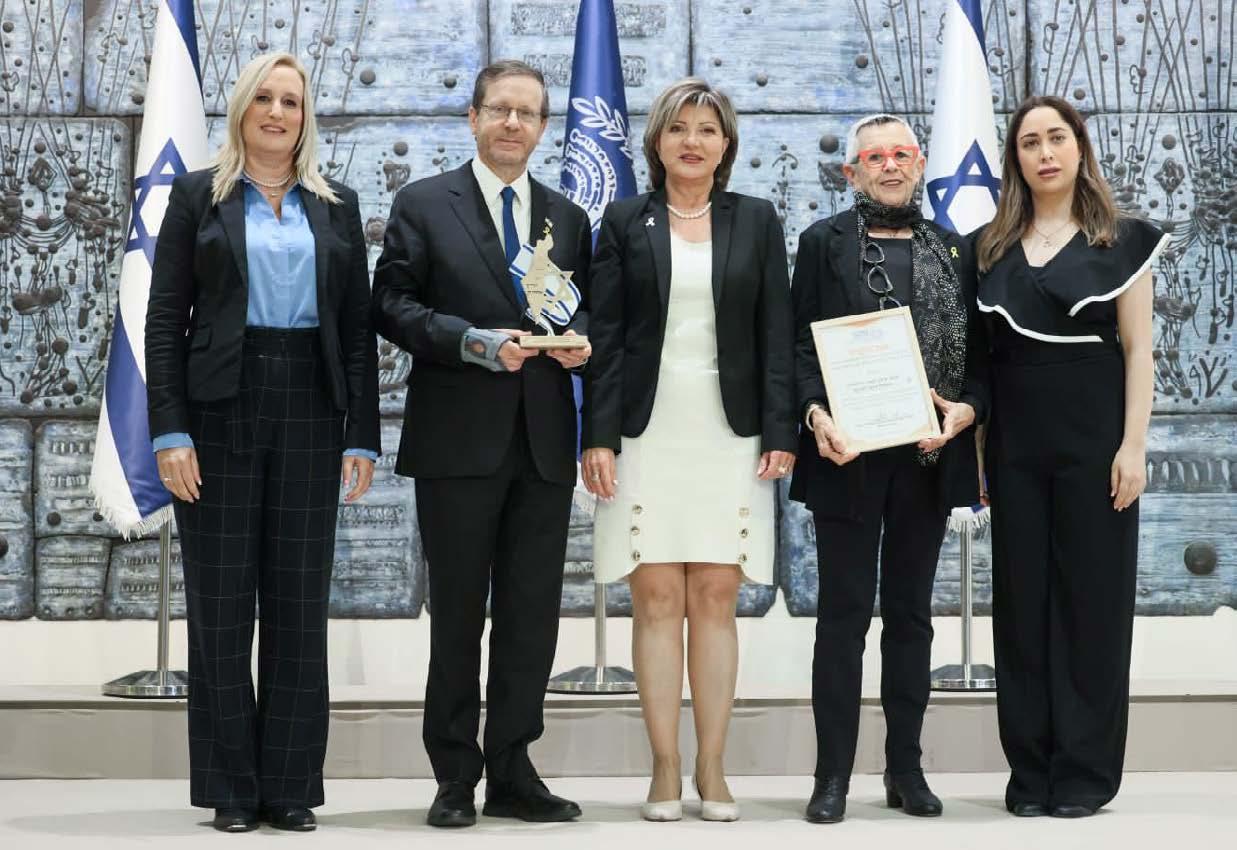
*PRIDE AND HAPPINESS* “With you all the way” is the name of the project that supports and mentors women that have suffered violence, in collaboration with the NGO “Woman to Woman”.
This month, we have proudly been awarded with the recognition by the Minister of Social Equality and Women’s Status, an honor received by the President of the State of Israel, His Excellency Mr Isaac Herzog.
This award has been granted as a recognition to our project and represents a driving force in order to continue with our efforts and to expand wherever needed.
I am grateful for the recognition, as we truly believe that it was created as a special
need to frail women who are in a position that needs to be helped out during this important phase in their lives. Together with “Woman to Woman”, we have created this opportunity that women mentor and help other women and become their strength. This is where we act, to restore their selfconfidence.
President Herzog mentioned that this award symbolizes the beginning of more opportunities of cooperation and volunteering from woman to woman suffering from violence.
Our aim is to continue helping women in distress and help them overcome this period in their lives in the best possible way.
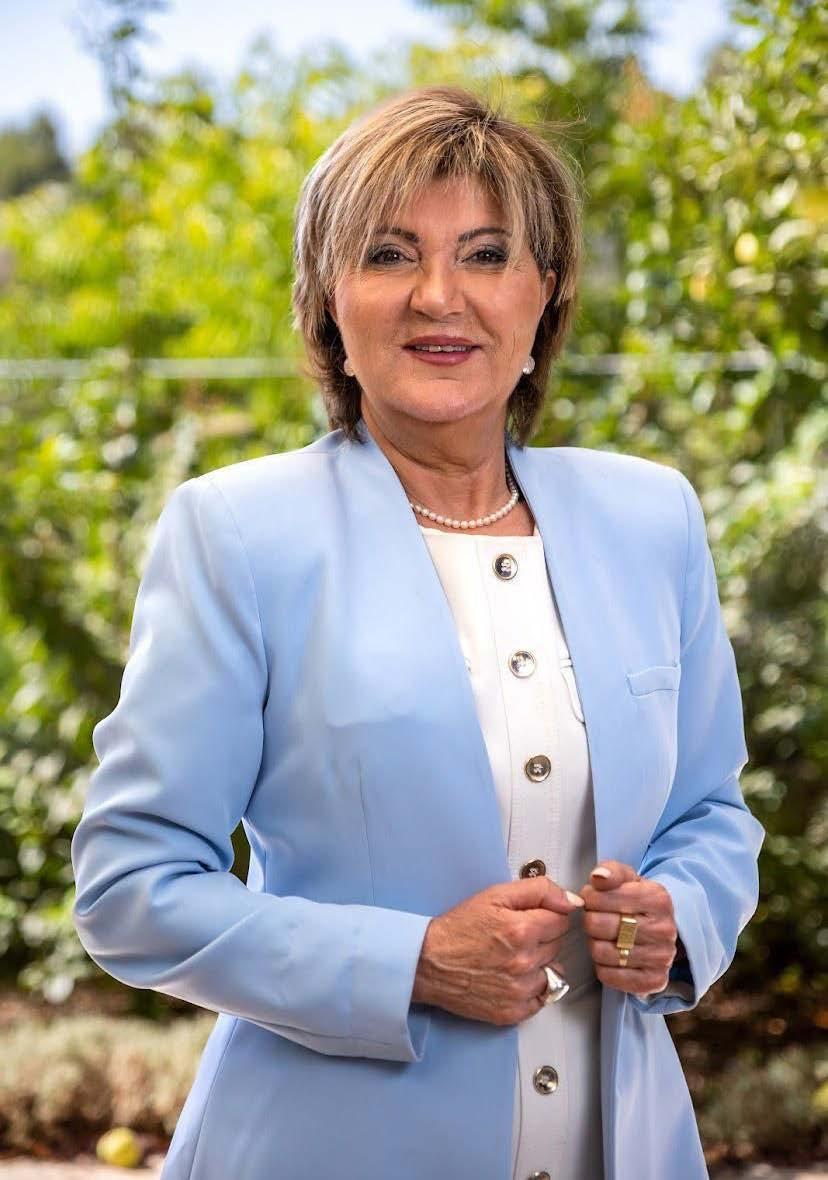
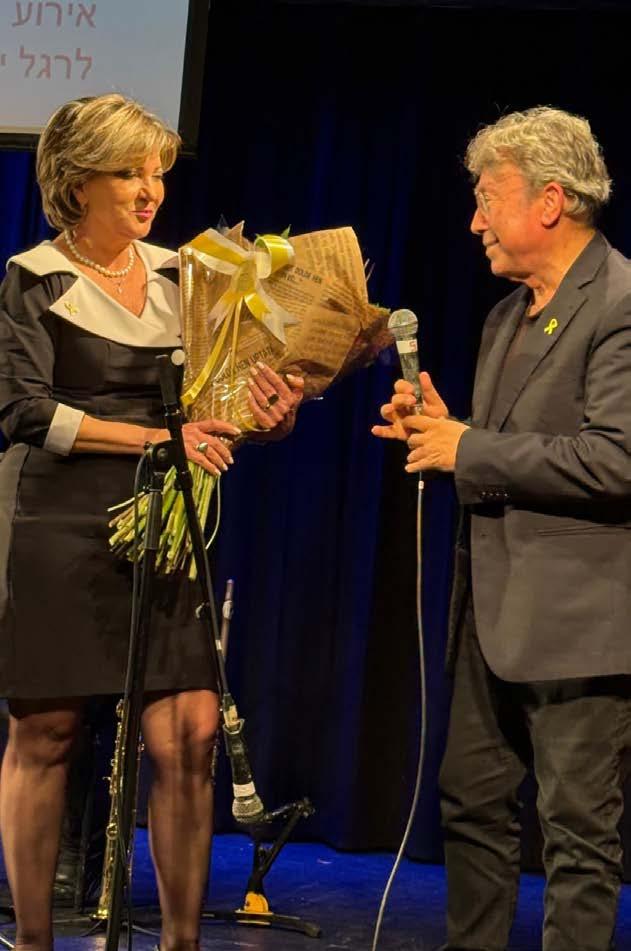
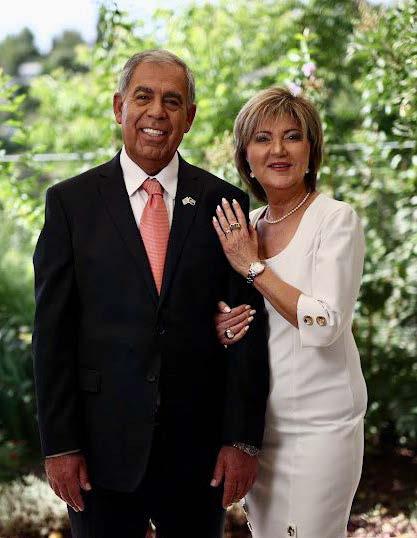
Recently you successfully organized a fundraising evening in support of the project “With You All the Way”. Can you tell us more about it please? What are some of the key partnerships that you aim for?
The group is a volunteering one. The volunteers spend their time and energy with these women. Women help as a group.
We are in constant need of economic aid so that we can hire experienced people who will help the mentors to train them professionally.
In order to raise money, the GM of Habima, the Main Theater in Israel, Mr. Noam Zemel, organized a beautiful event with the best actors and singers, honoring women who wrote the best poetry and later on were converted into classic songs which speak about women and their experiences.
It was a bursting, beautiful event. All tickets were sold out much earlier and was a real expected event, because of the idea, the concept, and the friends who helped out in order to fill the hall.
The participating women did all in their best cooperation and from now on, it will be held annually.
What was the moment that gave you the spark to expand activism and strengthen support for women in need?
Yes, there were some precise moments that gave me the idea to help these women in need. In my past, I was a High School teacher, and there were students who were telling us about violence in their homes. My main occupation in life is “performance in front of the public” (including a presentation). So, I started helping women who were in different processes in life and slowly, slowly, I began to understand and help realize that these women need some kind of help. Life showed me the path to start this project....
What are your messages for the women?
My message this month is that there is no recognition and equal rights to both genders, there is an urgent need to help women emphasize their power.
You come to this role with a wealth of experience and expertise on ending violence against women and girls. What are some of the pressing challenges that women’s rights and civil society organizations are facing in the current context, full of complex crises? There is an urgent need to increase budgets in order to raise interest in this matter so as to make people aware of domestic violence and generate cooperation since school, i.e. from an early age.
Global cooperation between organisations and governments in order to generate best results is a constant need.
There must be a continuity in collaboration between several governmental offices and the private sector, as well as international communities.
Can you elaborate on your other activities?
With our vision we want to expand nationally and internationally. So far, the project works in
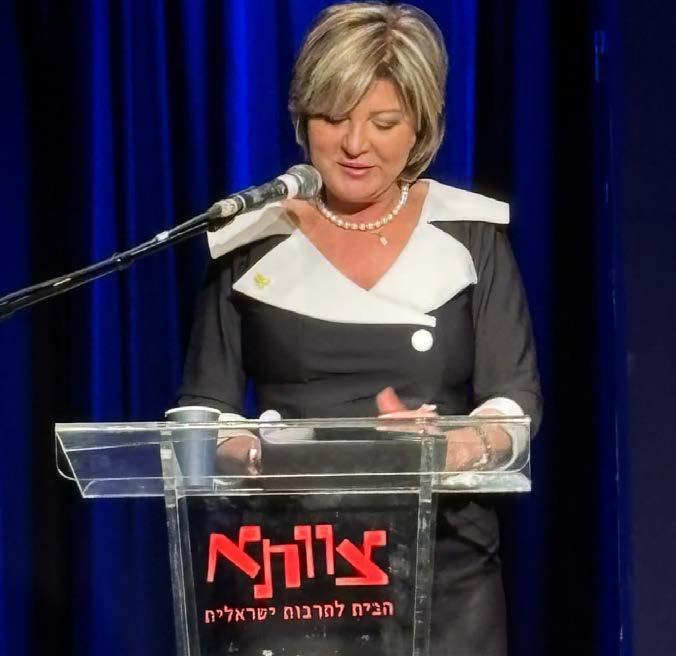
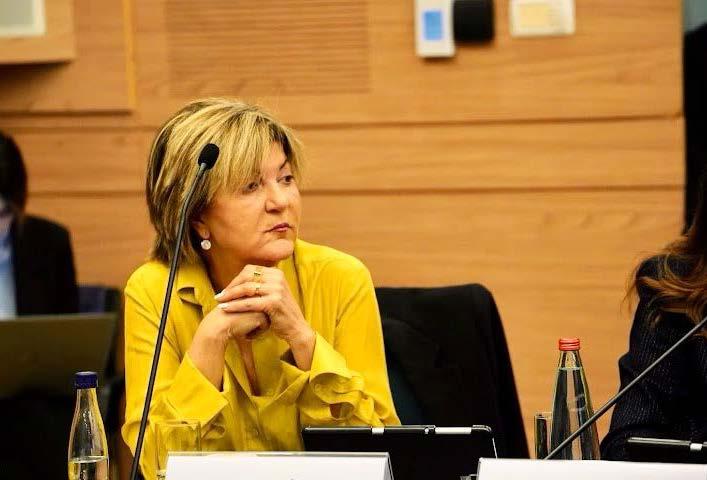
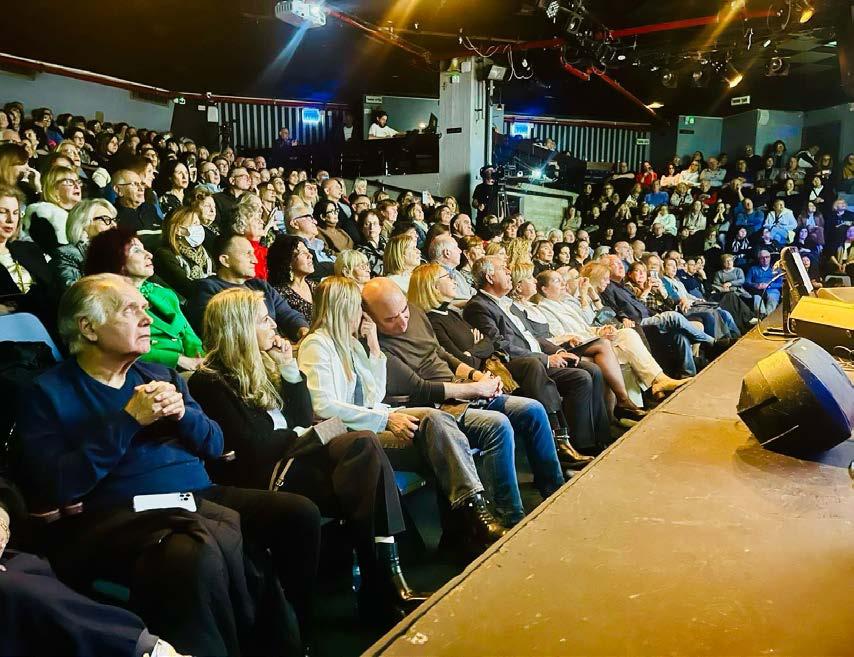
Jerusalem, with an NGO, in the center of Israel with another one, and in Haifa and Northern region, with a different one. By the end of this year, we plan to start collaboration with another NGO in the South of Israel.
The idea is that every woman, who is in such a situation and needs to leave the shelters after their time is over, will find a mentor that will help her during this transitional time.
The project is accompanied by Bar Ilan University and by Prof Einat Levy-Gigi and its purpose is to give to these women, once
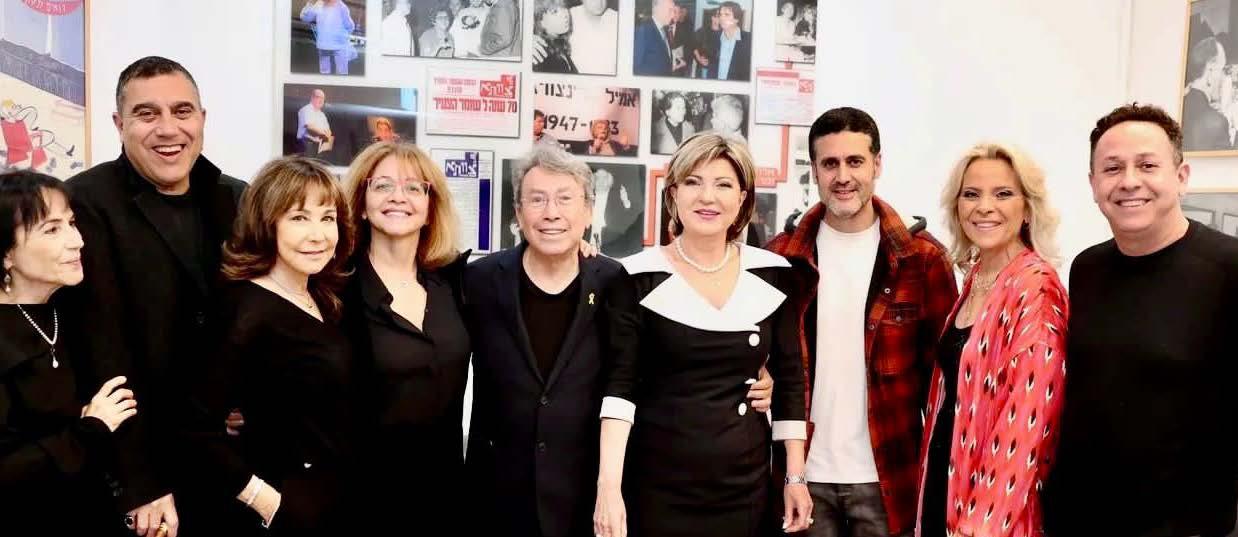
they leave the shelters, a possibility to put into practice what they have earned with their mentors.
How important has been and is your family in your work?
My family is my main help. My husband, MK Mickey Levy is helping and holding me from the beginning. I also need his cooperation,
Our goal is that all women leaving the shelters are strong enough and have the keys to start living their new lives in the best possible way.
Would you like to expand your expertise and collaborate abroad?
I would love to implement this idea and prepare more volunteers in order to help other organisations abroad and to become an internationally recognised organization.
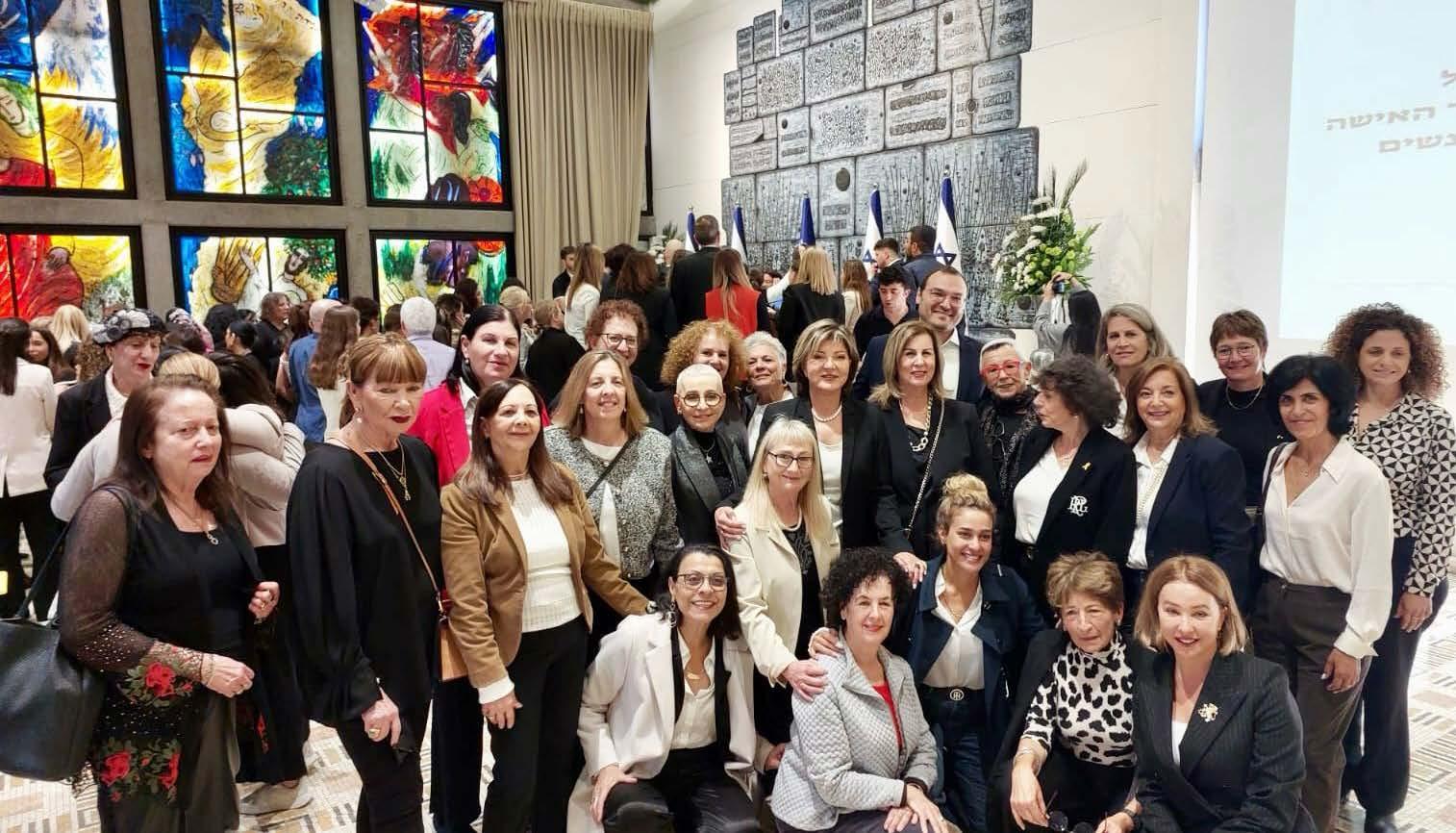
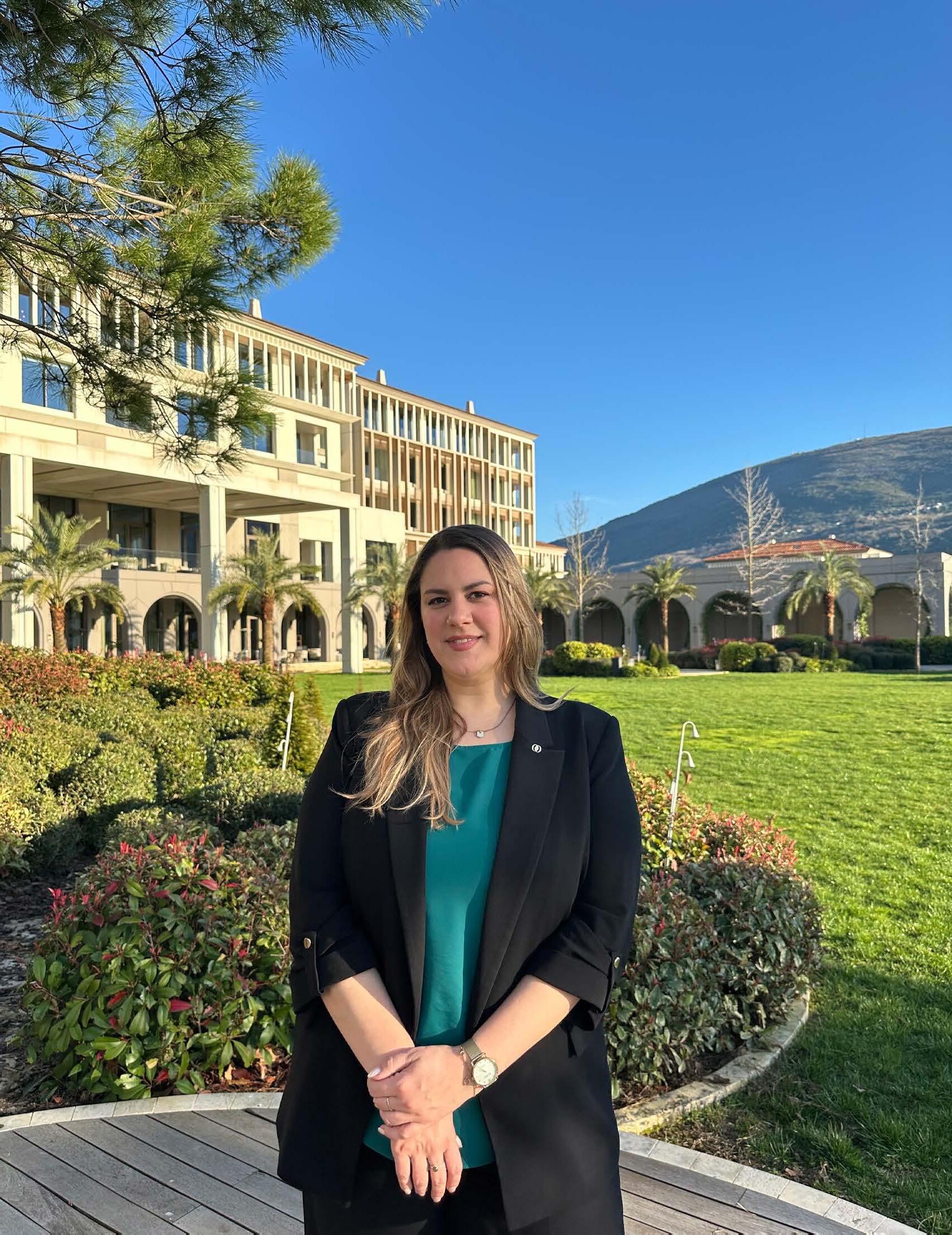
From promoting the incredible experiences that One&Only Portonovi offers, to actively shaping and creating them. This is the journey of Jelena Djurkovic who is in the role of the Quality Manager at One&Only Portonovi resort in Montenegro. She is such a charismatic figure as her story is typical of a lady that loves change to reach success. She climbed the ladder of career from a Social Media and Content Development Manager to Quality Manager at this prestigious resort.
“This move was significant. Now, I am directly involved in the decisions that define the core of what we deliver to our guests,” she told TRAILBLAZING MAGAZINE/The Women Edition.
Her career has taken a number of unexpected turns as if to confirm what she says “Fear of change should never hold us back.”
Full interview below:
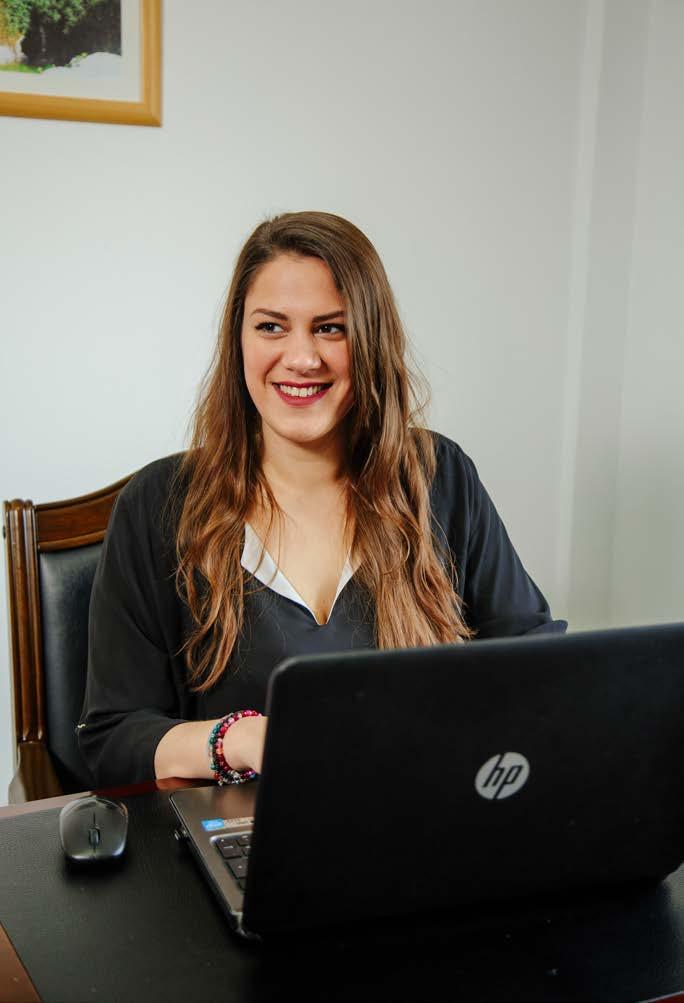
Living in the stunning Boka Bay and calling Herceg Novi my home has been a true privilege. Working in an ultra-luxury resort means more than just delivering exceptional service—it’s about creating moments of joy at the highest level and demonstrating an unwavering commitment to excellence every single day.
How has your career progressed, and what were the key milestones in your development and responsibilities?
How did you reach this position at such a fantastic five-star resort, and what does it mean to you?
Looking back on my career, I can honestly say it wasn’t a meticulously planned path but rather a series of opportunities that led me here. Joining One&Only Portonovi in 2020 was a defining moment, and I am incredibly grateful for the chance to be part of this extraordinary resort.
My career has taken many unexpected turns, even from my university days. I originally studied Biology, but my passion for community work and activism led me to pursue Political Science simultaneously. My first experiences and internships were in the political sphere, including the Parliament of Montenegro, where I discovered my love for marketing, communication, and working with people.
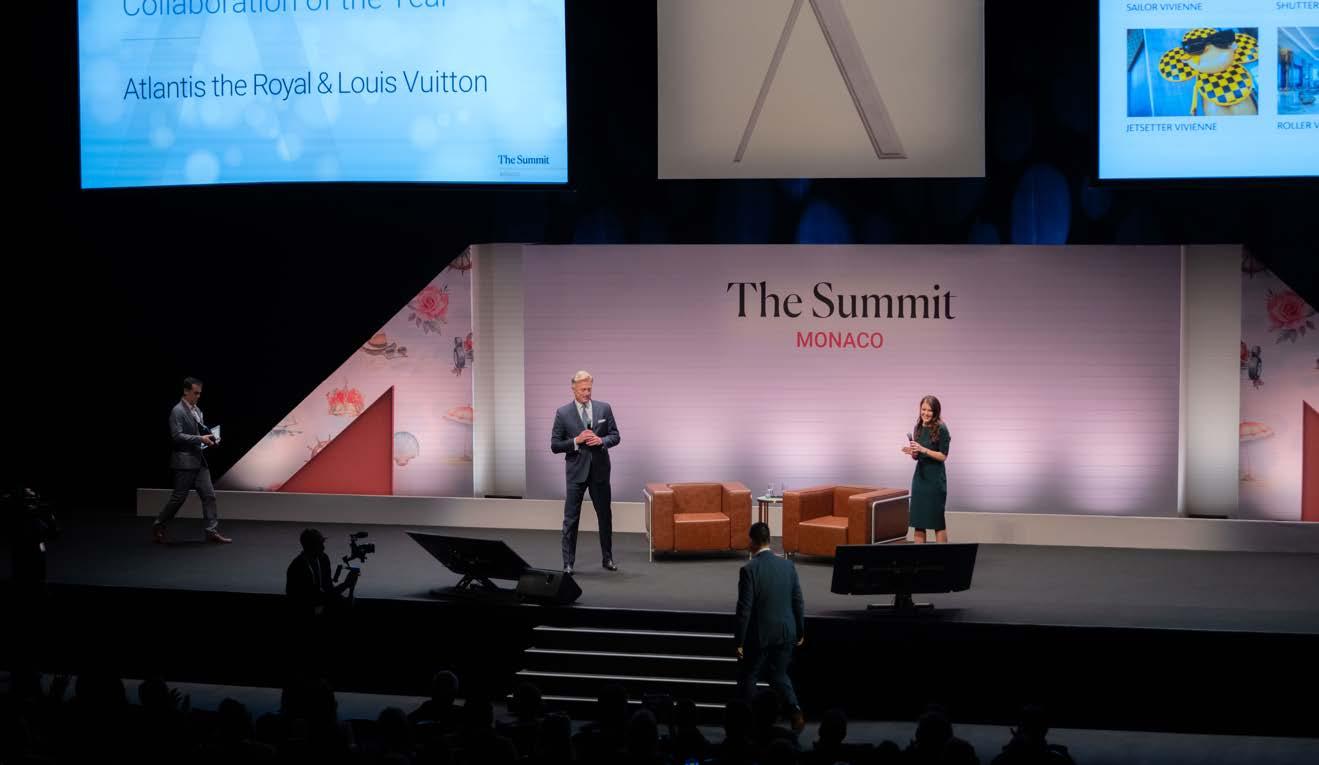
This realisation led me to further my studies in Communication and Public Relations, eventually landing my first job in the digital marketing industry, where I stayed for several years. Through entrepreneurship, seminars, and networking, I learned and grew, which ultimately led to an incredible opportunity—joining One&Only Resorts as they prepared to open their first European resort in Montenegro.
I started in the Sales & Marketing team as a Social Media and Content Development Manager. After three years in the role, working closely with different departments and immersing myself in the world of hospitality, I transitioned to the role of Quality Manager. This move was significant—it shifted me from promoting and talking about the incredible experiences we offer at One&Only Portonovi to actively shaping and creating those
experiences. Now, I am directly involved in the decisions that define the core of what we deliver to our guests.
I always tell young women around me that my career path is proof that staying true to yourself, being authentic and embracing change will lead to extraordinary opportunities. Fear of change should never hold us back—it is often the key to growth and unexpected success.
Can you provide an overview of your experience in quality assurance management at One&Only Portonovi and how you ensure that quality standards and processes are effectively implemented and maintained?
Quality assurance in hospitality is, in my opinion, a role that will become indispensable in the years to come, as it
ensures continuous improvement of the guest experience. While industry standards are constantly evolving, the foundation of maintaining them ultimately lies with our people—our team.
At One&Only Portonovi, training and ongoing development of our colleagues are at the heart of our quality efforts. A worldclass product is essential, but it is the people who bring it to life, delivering exceptional experiences and creating lasting memories for our guests. This human, emotional connection is what truly defines hospitality and elevates service to the level of five-star luxury.
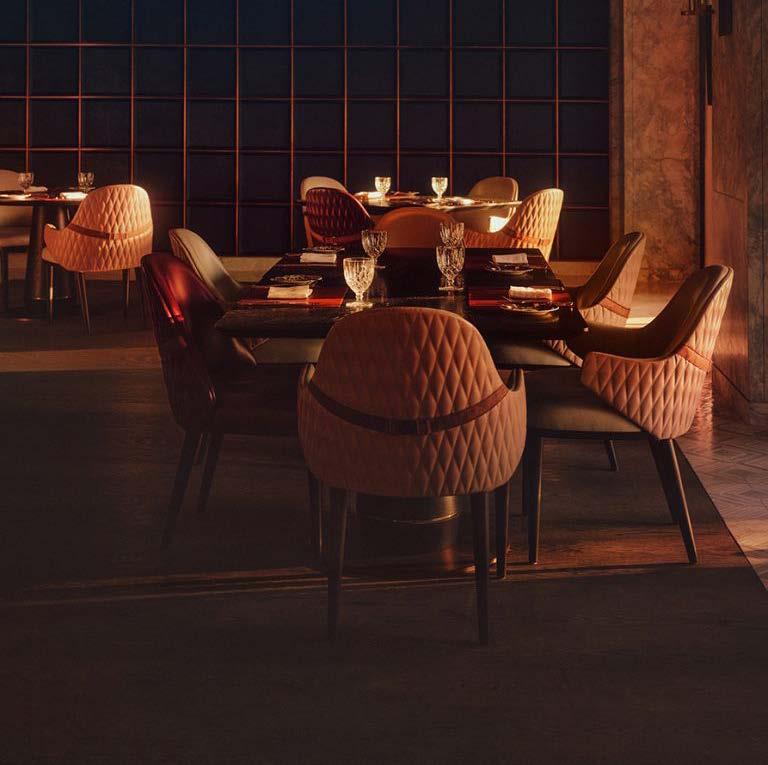
that every stay is memorable for all the right reasons.
The role of frequent quality assessments cannot be overlooked—we are fortunate to have strong support from Leading Quality Assurance (LQA) and Forbes Travel Guide, whose evaluations provide us with valuable insights and benchmarks for maintaining and enhancing our standards. Their rigorous assessments help us identify areas for improvement while reinforcing our commitment to delivering exceptional service.
By fostering a culture of excellence, continuous learning, and attention to detail, we ensure that quality standards are not only met but consistently exceeded.
You have been in the position of Quality Manager at One&Only for more than two years. Can you describe your approach to identifying, addressing, and prioritising quality opportunities?
To start, it’s important to note that quality management is not just about fixing issues but about proactively enhancing every
At the heart of this is listening to our guests. We actively seek feedback and closely track guest behaviour to identify opportunities for improvement. I’m fortunate to work with an incredible team and have access to advanced tools that help us collect and analyse data daily. By identifying root causes and implementing effective solutions, we continuously refine our services, creating a more seamless and exceptional experience for our guests.
The guest is always our priority. With genuine care for people—both our guests and our colleagues—we foster a culture of excellence.
Can you share an example of a successful quality improvement initiative or project you led at One&Only? What challenges did you face, and how did you overcome them?
At One&Only Portonovi, quality and guest experience are at the heart of everything we do. Over the past five years, we have
implemented countless initiatives across all departments to continuously enhance our standards. However, one initiative I am particularly proud of is our sustainability program.
While some may not immediately associate sustainability with quality, in today’s world— especially in luxury hospitality—caring for our environment is essential. Sustainability efforts not only enrich the guest experience but also contribute to the local community and the well-being of our planet. I had the privilege of leading this initiative for two years alongside our dedicated Green Team, working closely with EarthCheck, the world’s leading certification, consulting, and advisory group for sustainable tourism.
One of the biggest challenges was ensuring full engagement from all departments, as sustainability requires a collective effort. Through training, awareness campaigns, and collaboration with our ownership (Azmont Investments) and operators (Kerzner International), we successfully embedded sustainable practices into our daily operations. I am incredibly proud that our resort has been Silver Certified for two consecutive years, demonstrating our strong commitment to environmental responsibility.
Last year, our sustainability efforts reached a new milestone with the appointment of a dedicated Sustainability Manager, who is now overseeing and further advancing these initiatives. I am excited to continue supporting this journey as we strive for Gold Certification, further solidifying One&Only Portonovi’s position as a leader in sustainable luxury hospitality in Montenegro and beyond.
How do you foster a culture of quality within your organisation? How do you engage and train employees to uphold and contribute to quality objectives?
It all comes down to our service philosophy and the five pillars that form the foundation of everything we do—Warmth, Empathy, Anticipation, Precision, and Creativity. These principles guide our approach to hospitality and ensure that every interaction reflects the highest level of service excellence.
From the recruitment process to onboarding and daily operations, we integrate these pillars into every aspect of our work. New colleagues are introduced to our service culture from day one, and continuous training ensures that these values remain at the core of their development. Regular workshops, coaching sessions, and hands-on training help reinforce the importance of quality and empower our team to take ownership of the guest experience. We have an amazing Learning and Development team, and I am so thankful to be able to collaborate with them on these initiatives as a Trainer.
Beyond structured training, fostering a culture of quality also means recognising and celebrating excellence. We encourage colleagues to share their ideas, take initiative, and go above and beyond for our guests. By creating an environment where feedback is valued and collaboration is encouraged, we ensure that quality is not just a standard but a mindset embraced by every team member.
Ultimately, our goal is to create extraordinary experiences that feel effortless and authentic, and that starts with a team that is deeply committed to quality at every level.
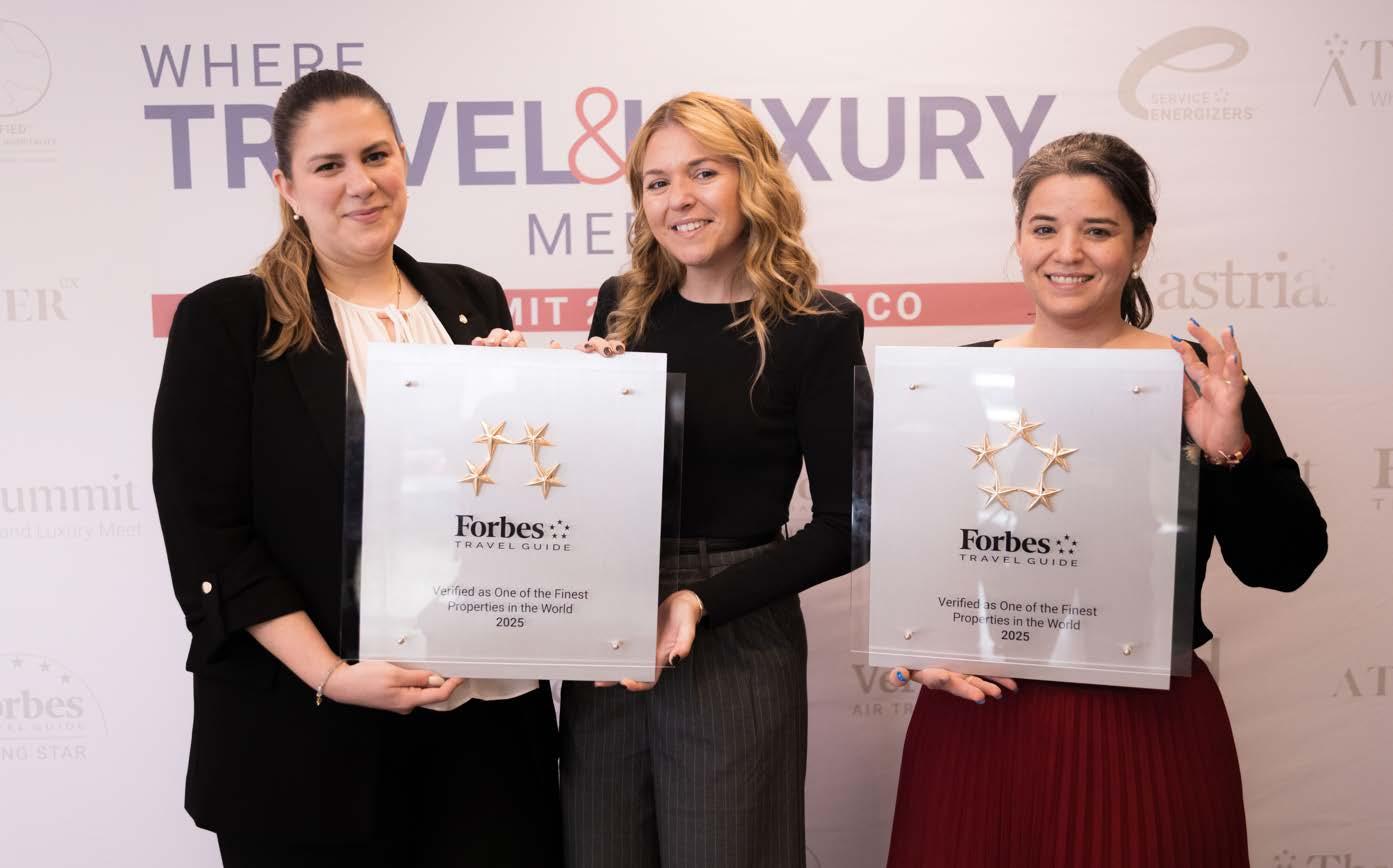
You recently attended the Forbes Travel Guide Summit in Monaco. Did you bring back any interesting observations, expertise, or inspiration?
Forbes Travel Guide is an invaluable partner on our path to service excellence, and I was incredibly honoured to be invited to their annual Summit in Monaco this year as an International Delegate representing Montenegro. It was an extraordinary gathering of some of the most influential minds in travel and luxury, offering a unique opportunity to engage with industry leaders and gain insight into the future of hospitality.
The event was both inspiring and thoughtprovoking, with powerful discussions and
expert-led sessions that highlighted key emerging trends. One of the biggest takeaways was the growing influence of Gen Z in shaping the future of luxury travel. The focus is shifting toward authenticity, unique and personalised experiences, timeless design, exclusivity, and—most importantly—the human side of business.
Another standout observation was the strong presence of women in leadership. Women were at the forefront—on stage as keynote speakers, receiving awards, and driving some of the most exciting innovations in hospitality. It was truly empowering to see how diversity and inclusivity are becoming central to the evolution of luxury travel.
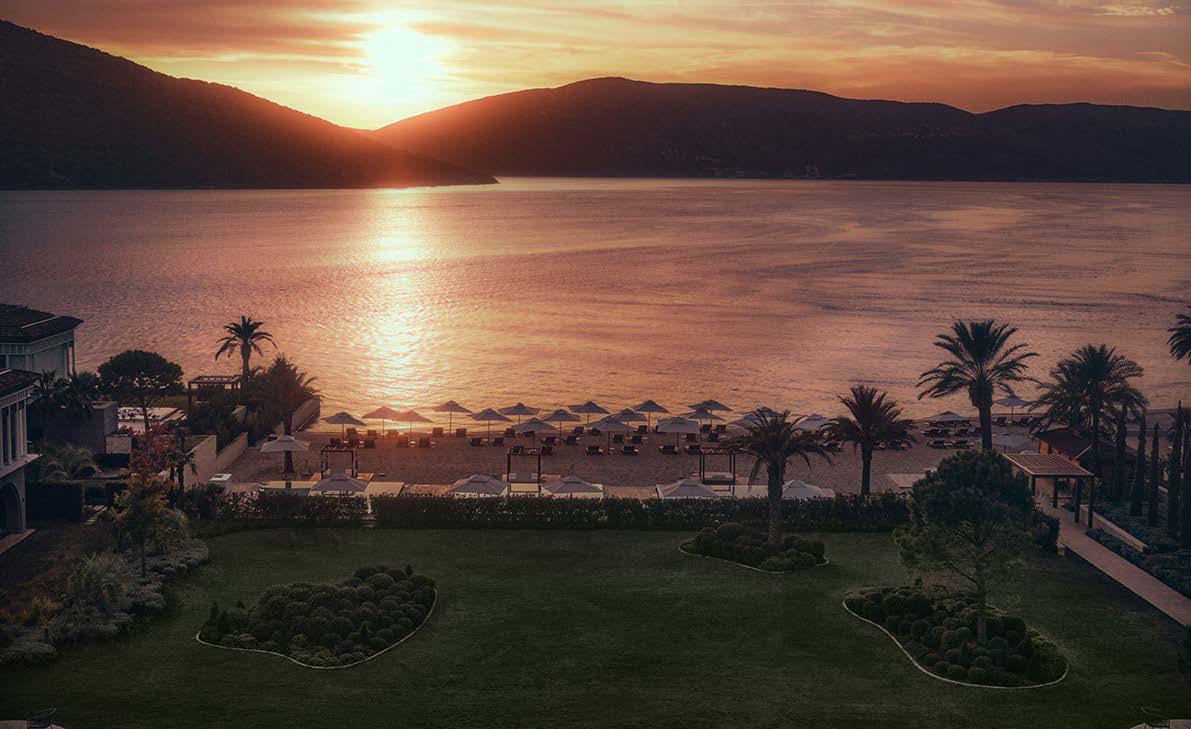
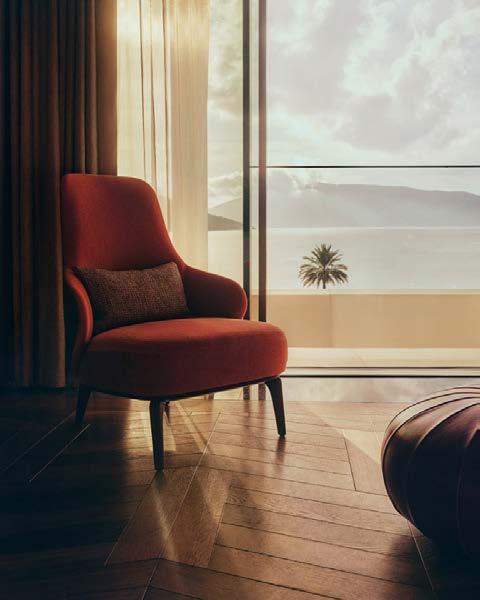
There were so many valuable insights from this summit that they could fill an entire interview, but the key message is clear: the future of hospitality lies in genuine, meaningful connections, a commitment to excellence, and a deeper understanding of evolving guest expectations. I left Monaco feeling incredibly inspired and eager to bring these ideas back to One&Only Portonovi.
Women enjoy a lot of attention at One&Only. They are present as staff members, in management, and as valued guests. What tips can you share with other women?
I am extremely proud to work for a company that fosters inclusivity, where women are represented at all levels and in all areas of our work. At One&Only, we recognise that diversity is a strength, and it is inspiring to see so many talented, passionate women shaping the future of hospitality.
For women looking to grow in their careers, my biggest advice would be:
1. Embrace challenges with confidence – Every challenge is an opportunity to grow. Don’t be afraid to take on new responsibilities or step outside of your comfort zone.
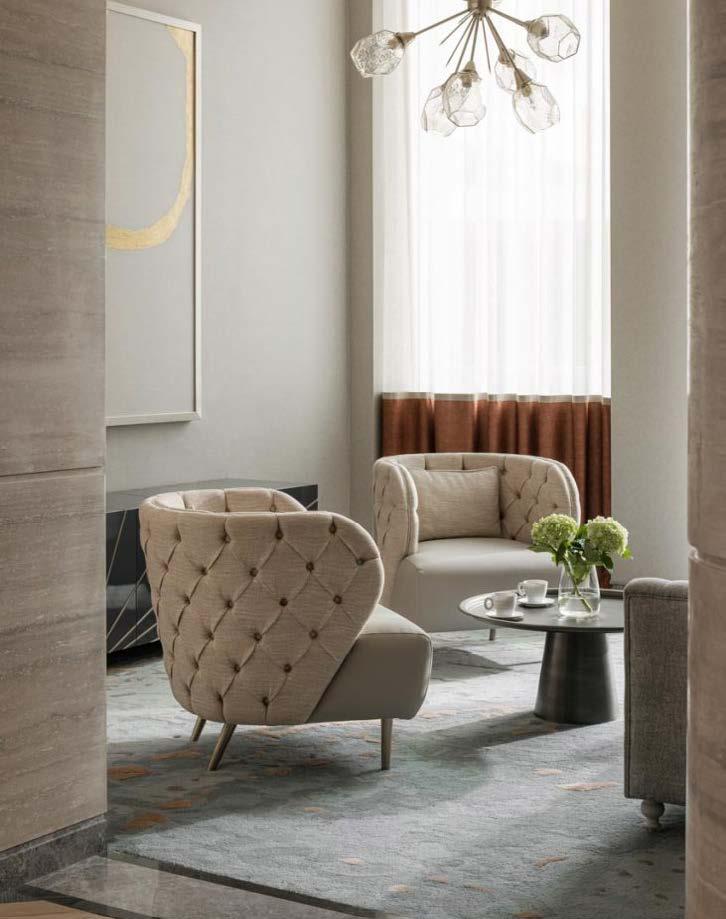
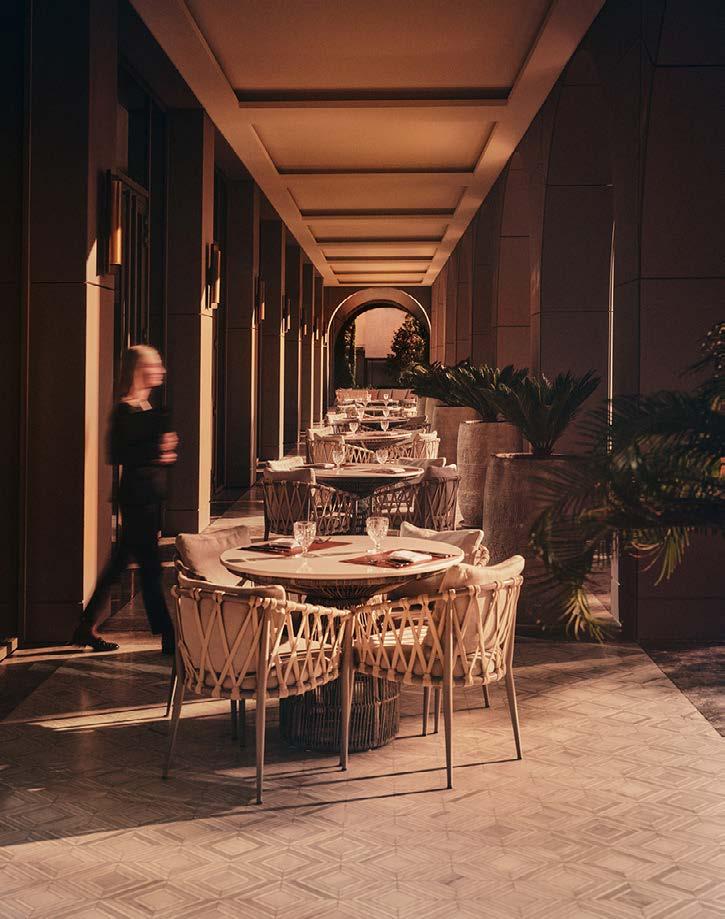
2. Invest in continuous learning –Whether through formal education, mentorship, or hands-on experience, never stop expanding your knowledge and skills.
3. Build strong connections –Surround yourself with people who inspire and support you. Networking and mentorship can open doors to incredible opportunities.
4. Believe in your unique perspective – Women bring valuable insights and creativity to the table. Your voice matters, so don’t hesitate to share your ideas and advocate for yourself.
5. Support and uplift other women – True success comes not just from personal achievements, but from helping others rise as well. By fostering a culture of support, we create more opportunities for future generations of women in leadership.
The world of hospitality—and business in general—is evolving, and it is exciting to see more women leading, innovating, and making a lasting impact. I encourage every woman to be bold, stay authentic, and never underestimate her potential.
lda Dyli, the principal of the non-public institution, “Kristaq Rama” School, which turns 20 years this year, made an interview with Trailblazing Magazine /The Women Edition to share the experience of the school in organizing educational trips abroad as a successful tradition of the school towards the expansion of the knowledge of the pupils/students as well as enrich their educational experiences. This interview comes ahead of a special trip the School has planned to London, England, in April 2025 where they will visit distinguished universities and a lot of breathtaking sightseeing.
Full interview below:
Please can you make an introduction of yourself and your School to the readers of Trailblazing Magazine?

Hello dear readers of “Trailblazing Magazine”!
I am Elda Dyli, the principal of “Kristaq Rama” School (AMU cycle). I have completed my higher education at the University of Tirana in the Physics Department. I have been part of “Kristaq Rama” School for five years, and this is my first year as principal.
On this occasion, Elda also shares her goals in the role of the principal of the school and on top of all, what it means to her to be a mother and a teacher.
“Kristaq Rama” School is a non-public institution, which this year marks its 20th anniversary since its opening. I am grateful to the General Director, Mrs. Albana Topalli, for her trust and continuous support. My goal as principal is to maintain and further
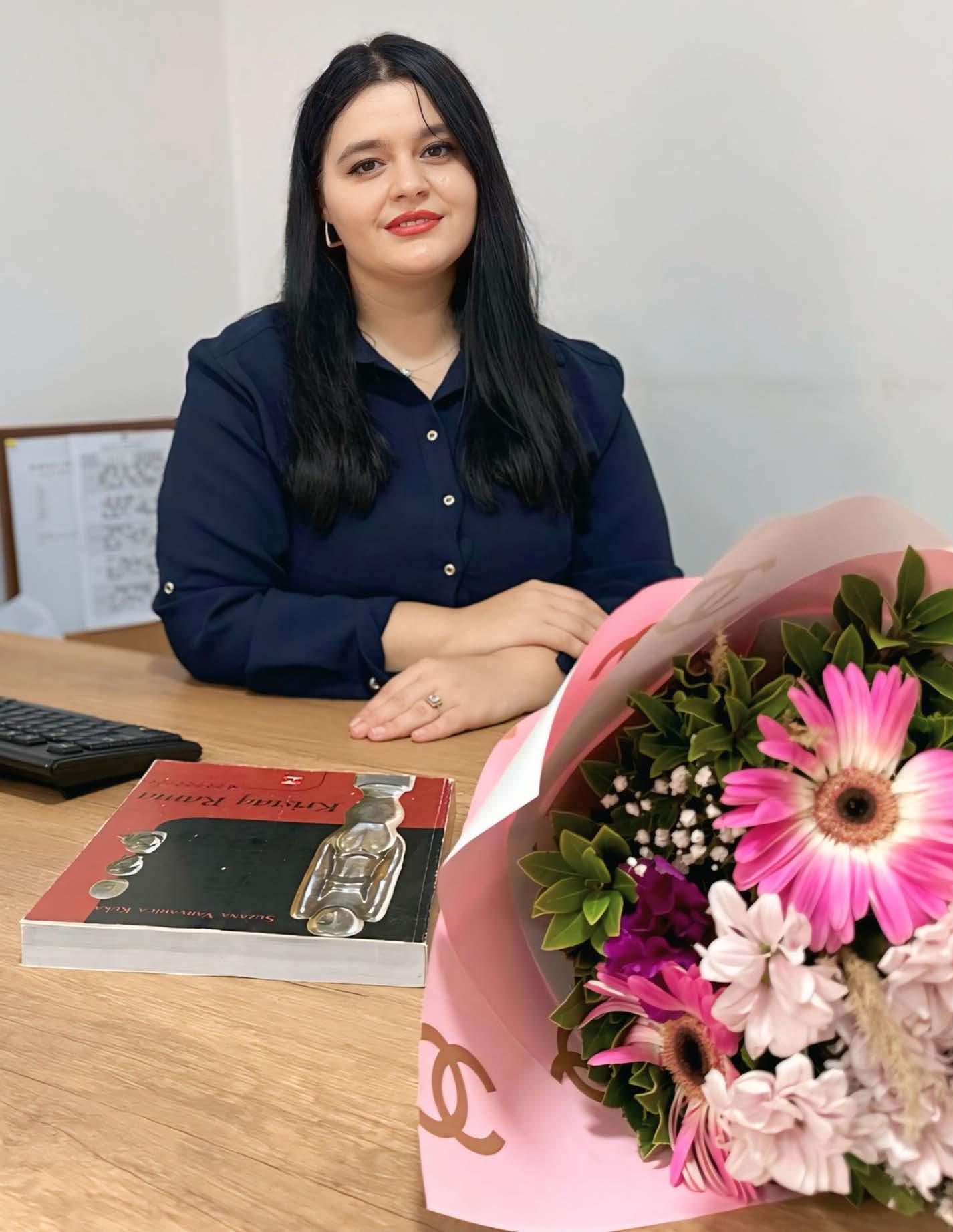
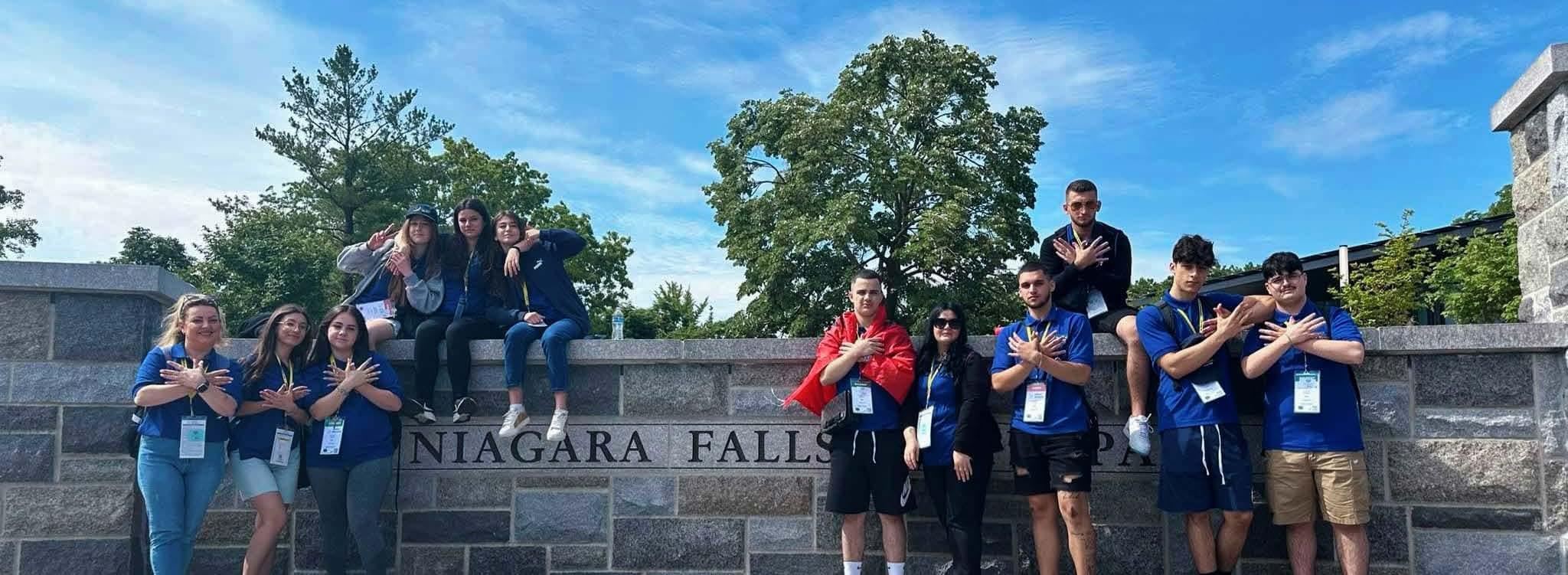
improve high educational standards by providing students with the opportunity to develop and reach their maximum potential.
Elda, your School has started the tradition of organising trips abroad as a way to expand the knowledge of pupils/students as well enrich their experiences.
Could you start by telling us what the key reasons are for taking a school trip?
School trips are an excellent opportunity to learn and gain new experiences. They allow students to expand their knowledge, create new experiences, explore different fields, and find inspiration. Additionally, they help in understanding and appreciating other cultures.
If you could give a check-list to help teachers plan their visits, what would it include in your opinion?
A successful school trip requires detailed organization.
• The purpose of the trip
• The selection of the destination
• Documentation and visas – Ensuring that all travel documents are ready on time.
• Planning transportation, accommodation, and safety measures for students.
• The activity program – A detailed agenda to include educational and cultural experiences.
• Communication with parents – Keeping them informed at every step and maintaining continuous communication.
Can you share previous school trips you have done in the past and what have been the results?
Our school has organized a series of extracurricular trips, and one of the most memorable was our participation in Genius 2024 in New York, USA. There, we presented three projects in the fields of science and
business. Our students also performed the Tropoja dance, a unique element of our tradition. With pride, we emerged as winners and received a Gold Medal. In addition to the competition and activities at the R.I.T. University in Rochester, we had the opportunity to explore the natural beauty of Niagara Falls and visit Washington D.C. and New York, enriching our experience.
Another international achievement was representing Albania at the Creative Business Cup in Copenhagen, Denmark, where our students ranked among the top five. Our school also marks a series of successes within the country, securing top positions in the best universities in Albania and winning national competitions.
Additionally, a special trip we have planned is to London, England, in April 2025. The purpose of this trip is to enjoy visits to the most beautiful destinations in London and
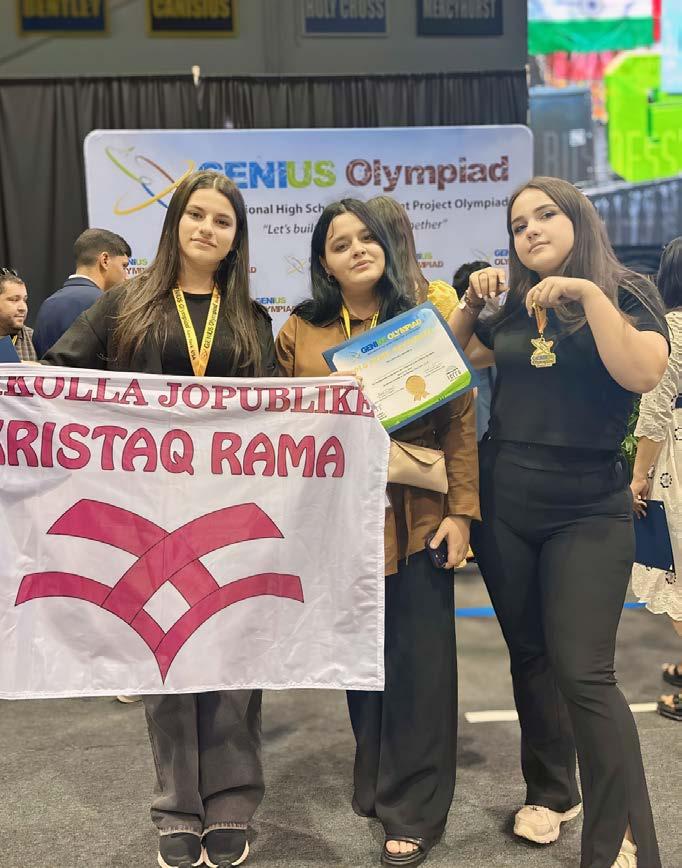
explore the most famous universities in the UK, such as the University of Cambridge, Regent University, University of Westminster, and University of Oxford. The visa and booking process has been completed, and we are now ready for this new adventure.
How would you define education outside the classroom and how important is this aspect in your view and the School’s view?
Education outside the classroom is a powerful way to help students learn in a tangible and meaningful way. Practical experiences, exposure to different cultures, and involvement in challenging activities make them more independent, motivated, and ready to face the challenges of life.
What is Kristaq Rama school doing to be always at the front of the progress?
Our success is based on three main pillars: renewal /innovation, engagement, and passion for education. We strive to bring
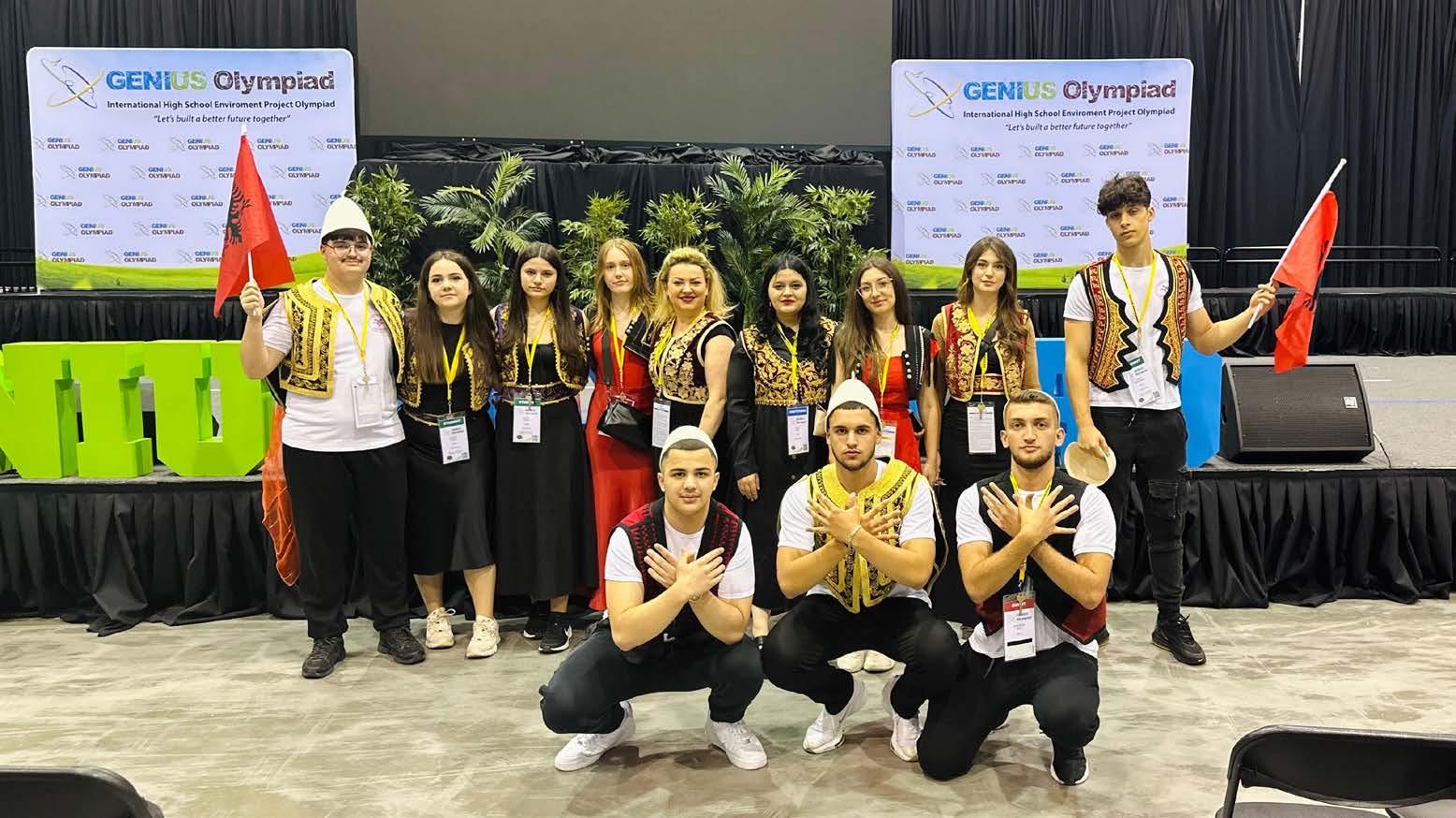
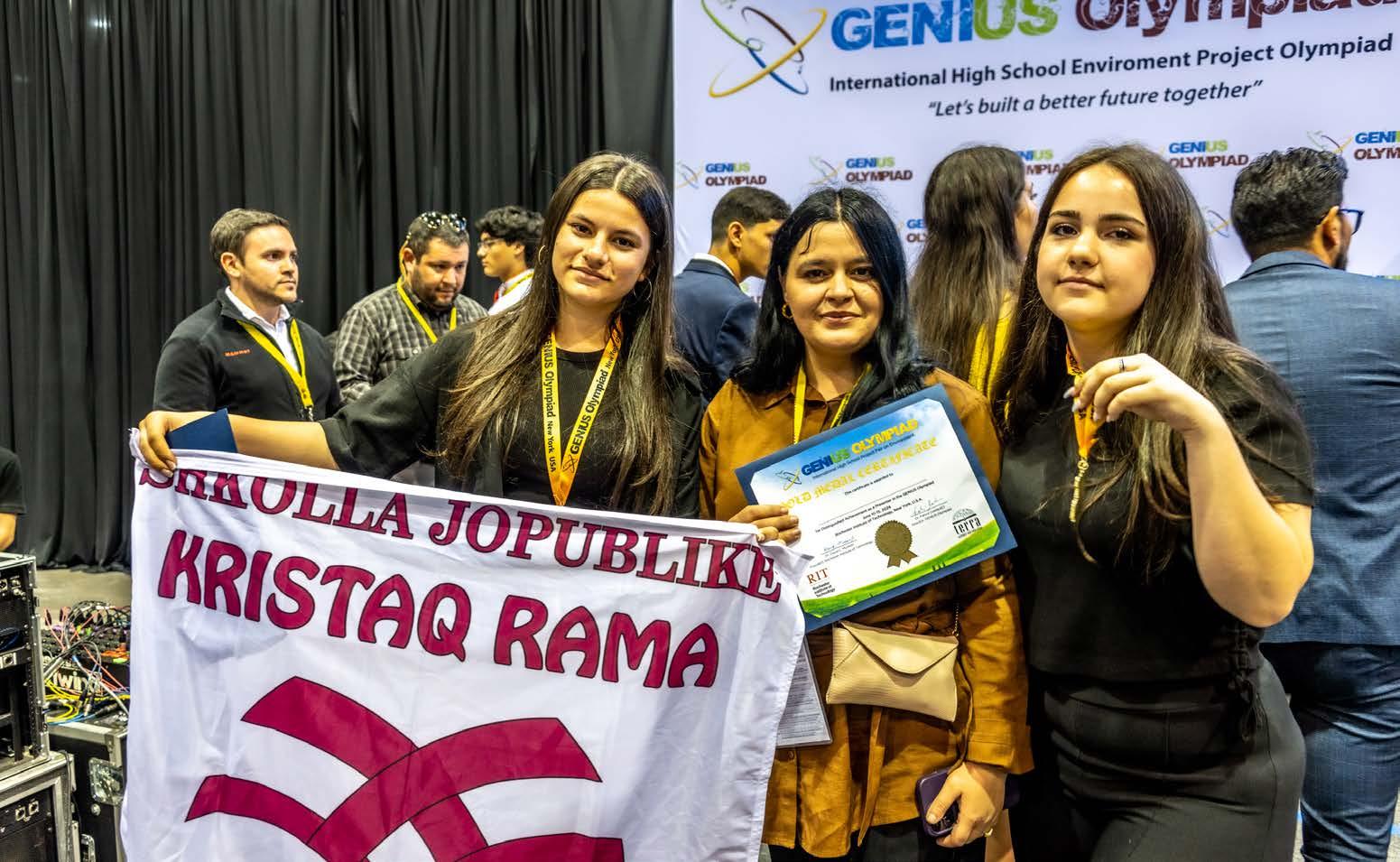
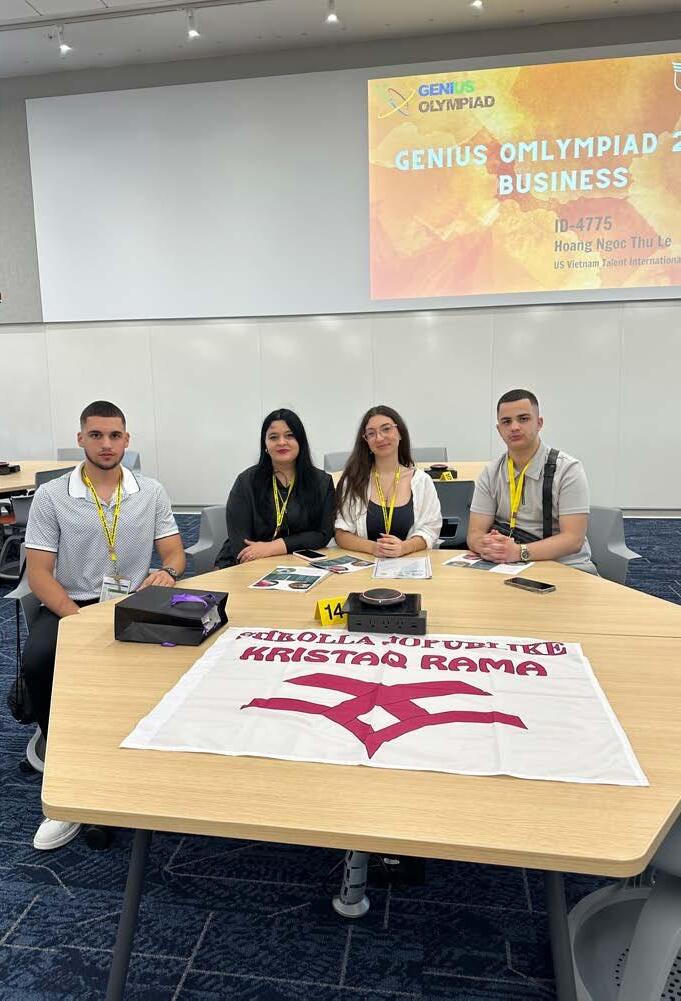
innovation to teaching methodology, create new opportunities for students, and foster a culture of success and continuous development.
As a mom who is at work most of her time, how do you find time to fit all the moving parts of work, and more into your busy life? Balancing work and the role of a mother is a challenge, but it is possible by creating a well-organized routine and planning time carefully. For me, it is important to spend quality time with my family and ensure that every moment spent with my daughter is meaningful. A big support for me is my husband, who is my greatest supporter and helper in everything I do.
Why Being Both a Mom and a Teacher is Important to you?
Teaching and motherhood are two roles that complement each other. As a teacher, I often become a parental figure for my students, guiding and inspiring them. On the other hand, as a mother, I strive to bring the same care and patience I have for my students into my relationship with my daughter. Teachers influence not only the academic education of a child but also their development as an individual. This is why being both a mother and a teacher is an extraordinary and important experience. For me, these two roles are a driving force that inspires me every day to give my
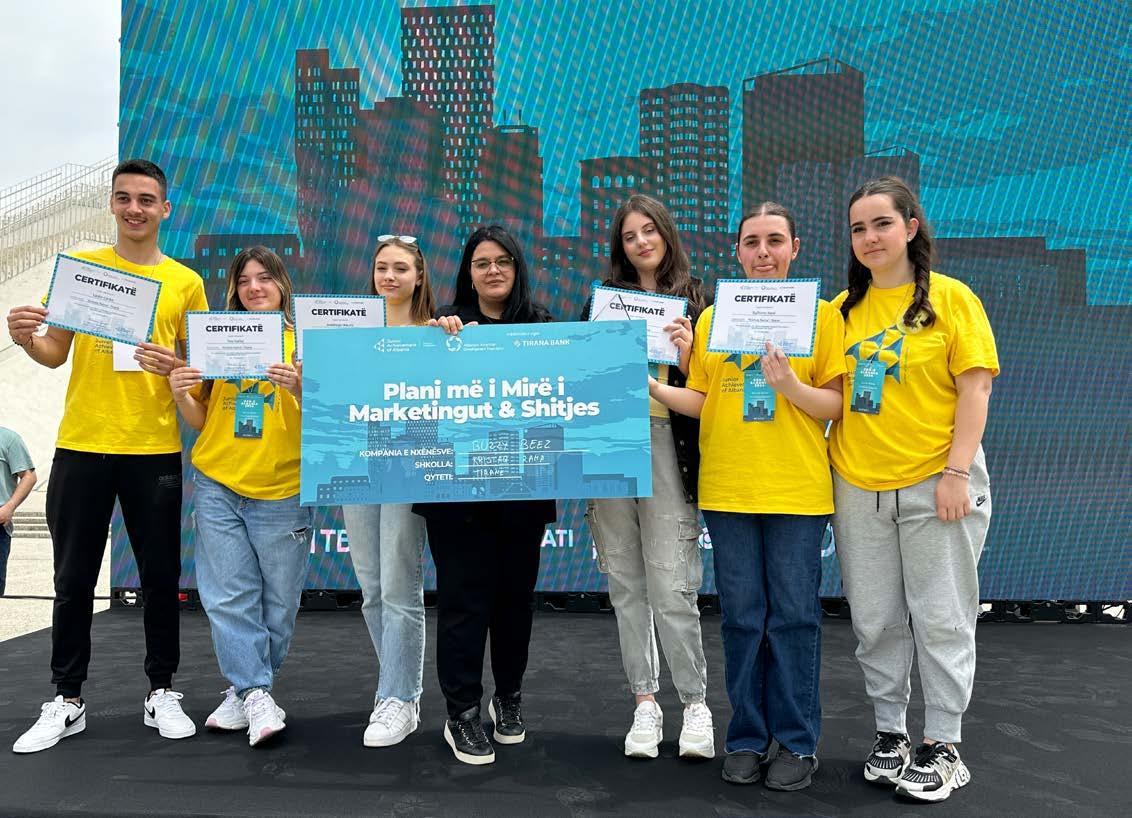



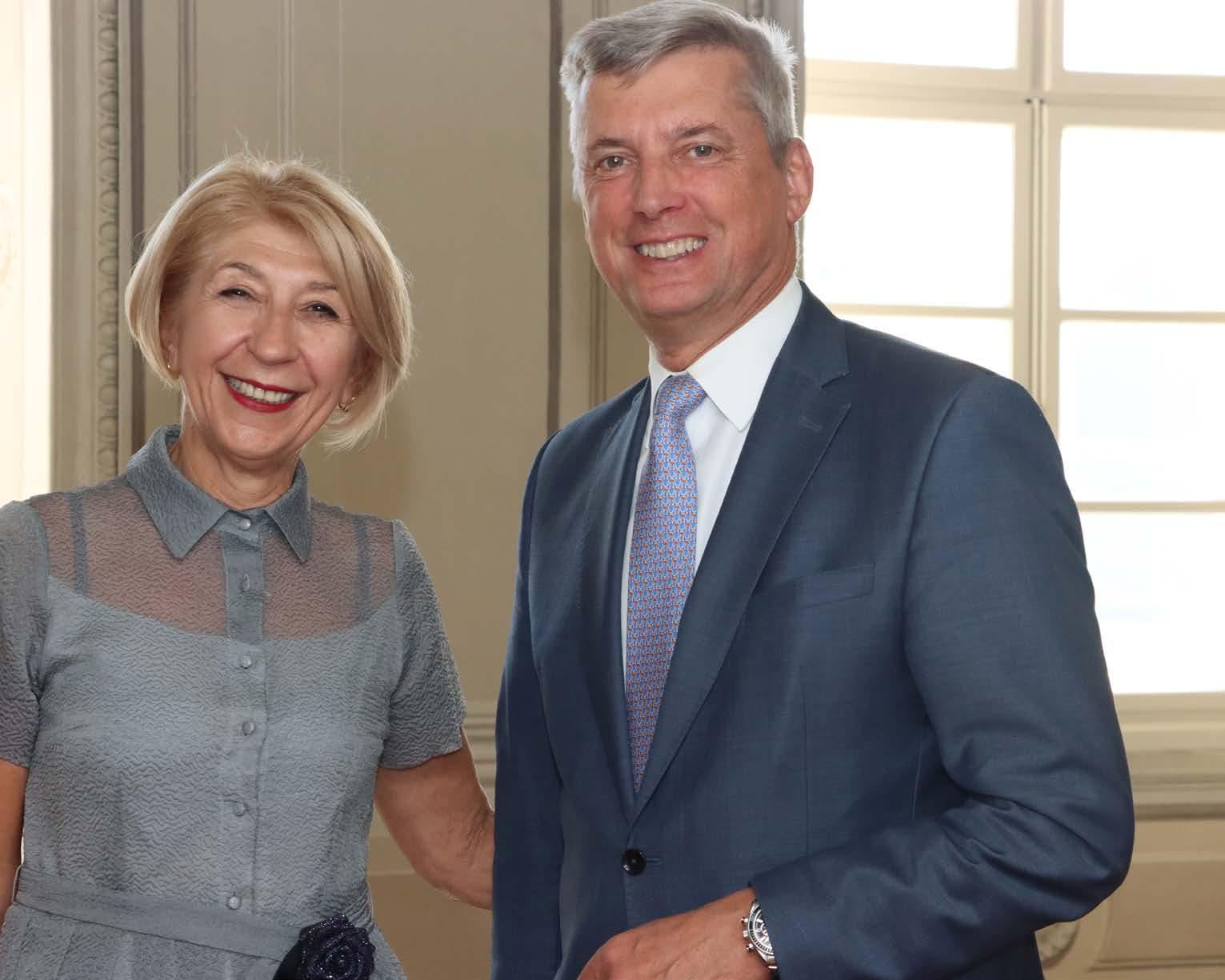
IACA’s Theme Spirit: Let’s Unify the Diversity
By Rudina Hoxha & Jose Pinto

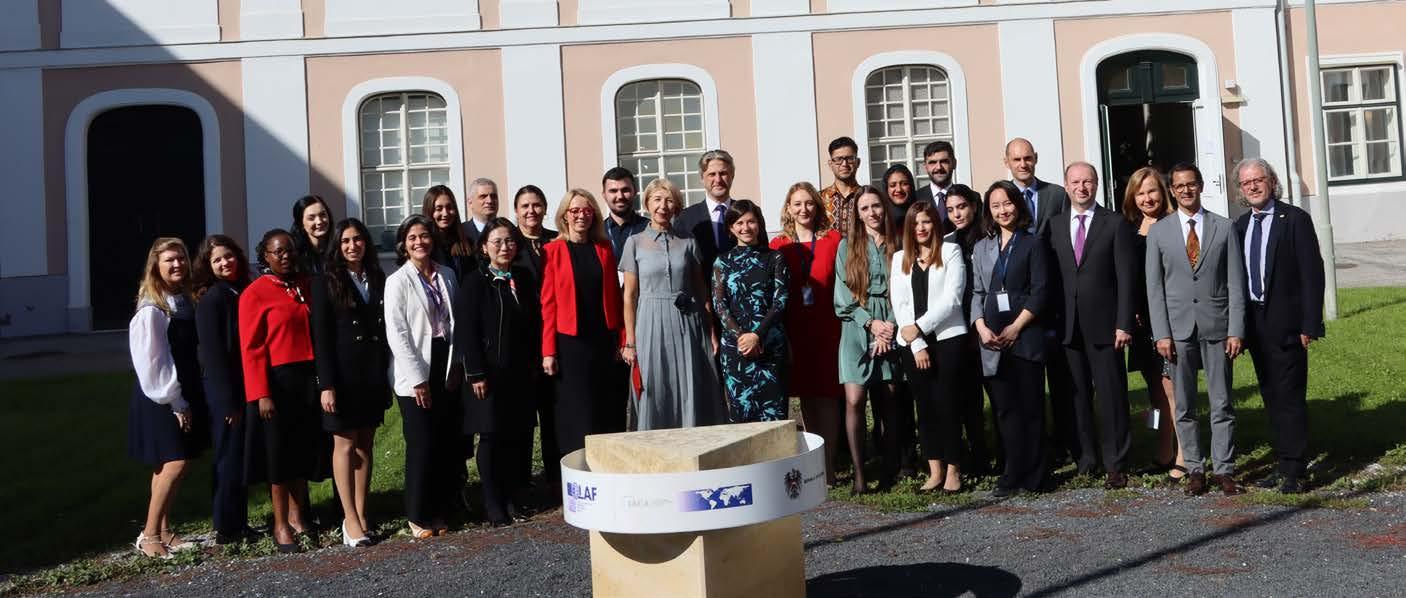
TRAILBLAZING MAGAZINE/The Women Edition made an elegant stop in Vienna, Austria to interview Ms. Slagjana Taseva, Dean and Executive Secretary of International AntiCorruption Academy (IACA) who is the first female dean who holds such a key position in the 13 years of IACA’s history.
Professor Taseva, a national of the Republic of North Macedonia, is specialised in money laundering, financial crime, corruption, and organised crime. She holds a Ph.D. in law from Sts. Cyril and Methodius University in Skopje while she has published several books in the field of criminology and criminal law such as (Dark Figures of Criminality - 1996; Money Laundering – 2003 and new edition in 2007; and Macedonian Criminal Law - 2010 – Handbook for students).
In this exclusive interview, she underlined the long journey that led her to this important appointment while pinpointed her love for IACA. “I am a true believer in the mandate and the role of IACA. I can also say that I love this organization. At that time, we (the group that worked on the agreement) knew that IACA would add a lot to the capacity in the international community to
fight corruption. Education is crucial in this respect,” Taseva says in this interview.
She aims IACA’s growth. “IACA has alumni from 168 countries. Every communication, every work, every training is an added value to the fight against corruption. Since my appointment, we have been talking about opening IACA even more,” Taseva states, adding that call for lectures in French and Arabic will be opened besides the English ones.
Currently IACA has 77 member states parties. According to Taseva, it is time to welcome big countries such as Canada, USA and the European countries like Germany, France, Netherlands, Switzerland, Norway, Poland and others to join IACA.
The idea of an international anti-corruption academy arose out of INTERPOL’s International Group of Experts on Corruption, which at the time included Martin Kreutner, who became IACA’s first Dean (see the main photo), Michael Hershman, Chairperson of IACA’s International Senior Advisory Board, and the late Franz-Hermann Brüner, Director-General of OLAF (European Anti-Fraud Office) at the time. The
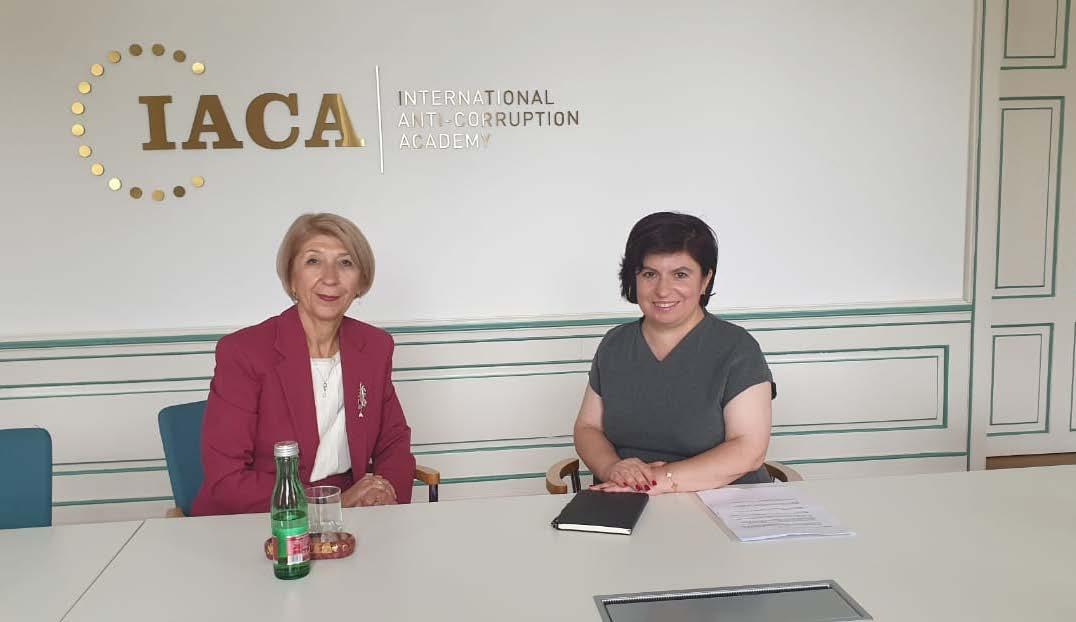
adoption of the United Nations Convention against Corruption (UNCAC) in 2003 and its subsequent implementation in many countries also played an influential role in IACA’s creation.
Full interview follows:
Dean Mrs. Taseva, could you briefly tell us about your professional background that led you to your role as the Dean of the International Anti-Corruption Academy?
This might be a long story (laughing) but I will try to summarize it. I always had an interest in working in the field of fighting against evil, against crime. It all started in my youth when I studied in the Faculty of Security. In the former Yugoslavia, there was only one such faculty located in Skopje, and it was established in 1977. It accepted
a limited number of students, and I was the second generation in this Faculty. In my class, there were 70 students; of them, 15 were women. We were lucky to have the best professors from all over Yugoslavia.
When one is exposed to a top-notch program, like we do here at IACA, this is how you become even more interested in and involved. At that time, I never knew that this would be my path. Later, I started to work in the Ministry of Interior in the analytical department where one can study various kinds of crimes from all the points of view. This department collects all the information needed. Then the master’s thesis followed. My theme was about the dark figures of crime. I was curious to know “Why people don’t report crimes? and “Why the country’s crime statistics were low when in reality, criminality levels were higher?”. I am talking about the 1990s. I realized that people

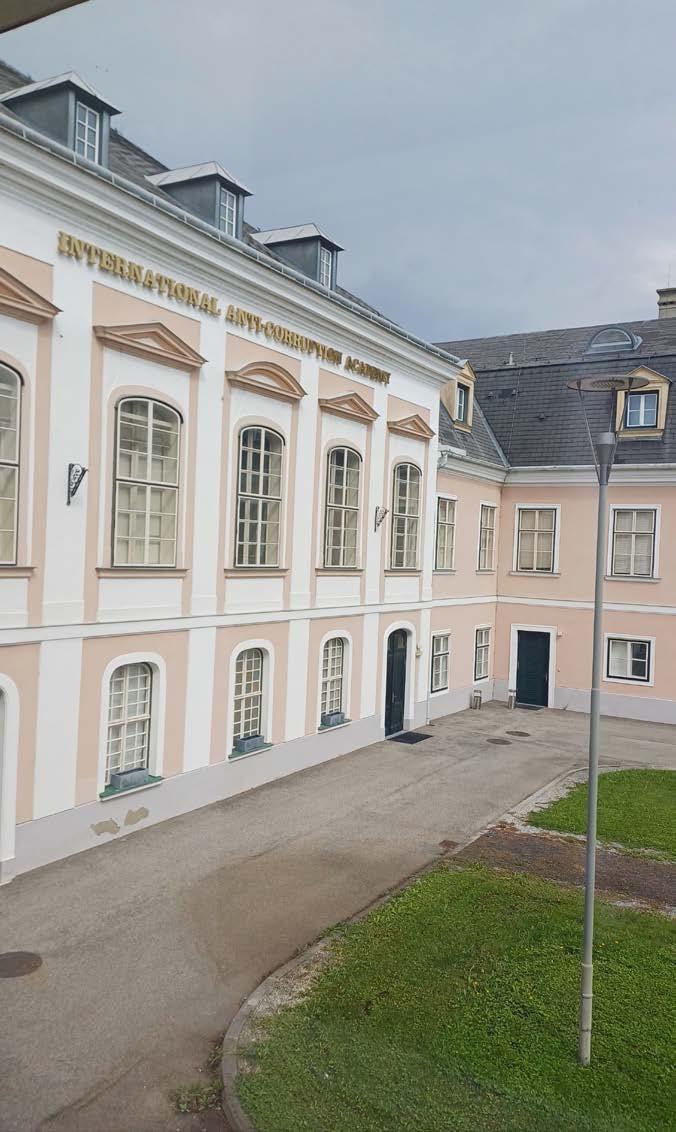
don’t report because they don’t trust the institutions. From this point of view, I started to develop my interest in this area. I also dedicated one chapter of my first book, entitled “Dark figures of crime,” to corruption in the state institutions. In my research, I tried to understand why the institutions, which are supposed to fight crime and corruption, don’t do that.
I presented part of the research at a big conference where the Minister of Interior was present. And latter people asked me how could dare to speak like this in front of the minister!? But this is that kind of professional curiosity which leads you to this area. You must be committed and curious
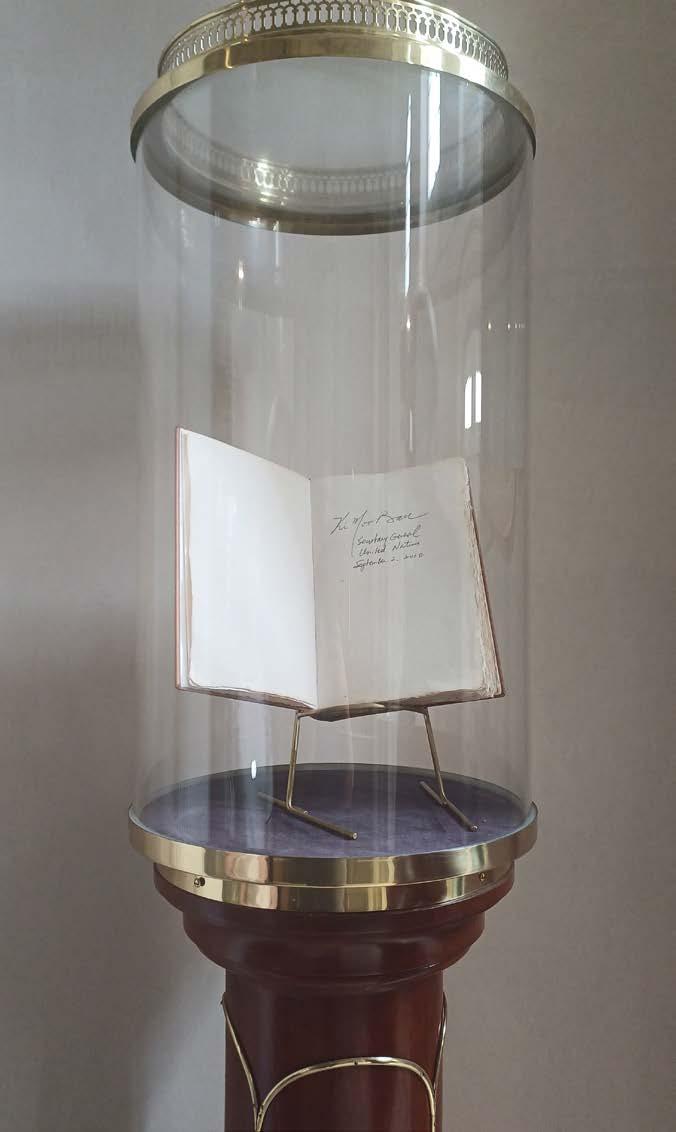
to look behind the wall and think out of the box. When you are well-educated and speak based on research, you can do it. Because you look broader, you look beyond, and you are brave to speak up.
In 1996, my country adopted a new Criminal Code which introduced criminal offenses of organized crime and moneylaundering. The minister, who was present at that conference, said that I was the one to understand such matters and I could establish an analytical department on organized crime at the ministry. At that time, I was working in the eastern part of Macedonia, and I was the only one who was offered to be transferred
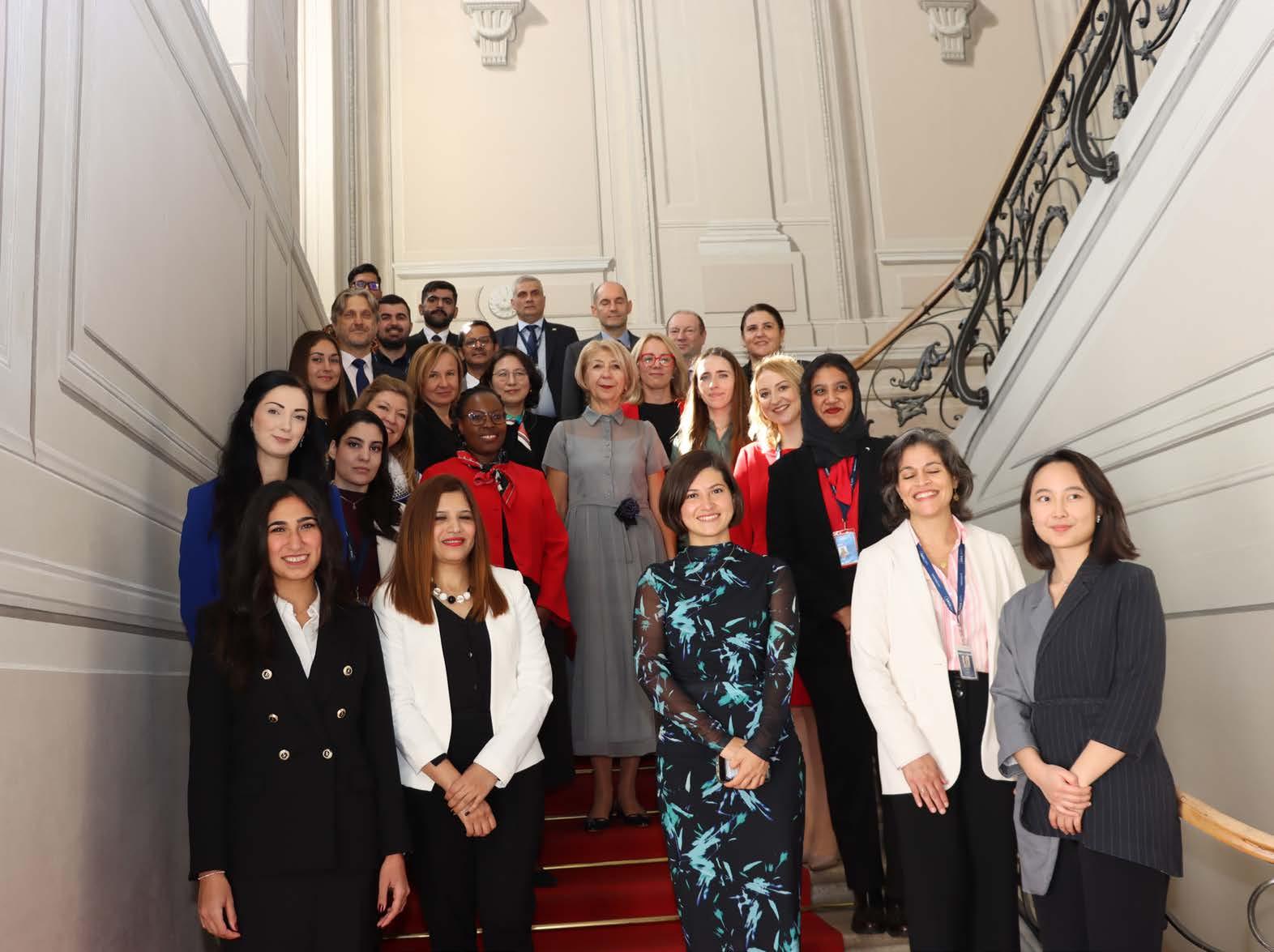
to the Ministry of Interior in the capital without requesting that. In addition, I was among a few public servants who spoke English. This gave me the chance to take part in various international conferences, to get international exposure and learn more about how crime and corruption is tackled in various countries.
In 1996, I became the main analyst of organized crime, corruption, and money laundering in the MoI. I was also working on my Ph.D. on money laundering. This topic was very new in general, both for practitioners and scholars. In the nineties there was limited access to the internet, few people had computers, and there was no
literature on the topic of money laundering in general, both in the region and globally. So, I asked the British Embassy to support me in this endeavor. They offered me a one-month study visit to the UK to learn more about money laundering. I learned from their expertise and knowledge and came back with a suitcase full of books which helped me to complete my thesis successfully.
Participation to the international bodies such as MONEYVAL and GRECO in the Council of Europe gave me the opportunity to meet colleagues and experts from different countries. This enabled me to learn about their activities aimed at
fighting organized crime and corruption. In the GRECO committee, I participated for seven years in the capacity of the head of the delegation of my country. As a money laundering and GRECO evaluator, I participated in the evaluation of Poland, Belarus, and Latvia. Thanks to this, I built my knowledge of international standards and practices, and I understood how important is for people to interact and exchange experiences. This was an important lesson, which I have always been trying to capitalize on. In this context, I wish to underline the role of IACA in bringing people together, so they can learn from one another.
In 2000, I stopped working for the Ministry of Interior and I established Transparency International Macedonia. It took several months for me to shift my way of thinking and adopt the perspective of a civil society member. Today, I am Honorary President of Transparency International Macedonia.
In all these years, I also became the head of the Police Academy and head of the Anti-C orruption Commission of Macedonia. They are all important milestones in my career.
Upon the completion of my Ph.D. studies, I have been working for ten years as a university professor of criminal law and organized crime. I lost interest in universities as they were going private and becoming more interested in maximizing the number of students rather than in ensuring the highest possible level of their academic activities. Instead, I focused on consultancy work which sent me to various corners of the World. I worked in Belgrade, Moldova, Afghanistan, Albania, and Papua New Guinea. All these experiences were highly
enriching. Then, the vacancy call for the position of IACA’s Dean was published in summer 2023. I have known IACA from the beginning as I participated in anticorruption summer schools here in 2007 and 2008 when the idea to create this academy was developed. I was invited by Austria and my esteemed colleague Marin Kreutner to work on the draft of the agreement for the IACA establishment. In 2010, I participated in the ceremony to launch the Academy, which was organized in the Hofburg Palace with the involvement of MR. Ban Ki-moon, the eighth Secretary General of the United Nations. The IACA Agreement was signed during this ceremony and entered into force on 8 March 2011. More than 1000 delegates took part in that meeting. At IACA, we cherish a book signed by the participants.
I am a true believer in the mandate and the role of IACA. I can also say that I love this organization. At that time, we (the group that worked on the agreement) knew that IACA would add a lot to the capacity in the international community to fight corruption. Education is crucial in this respect. So, we wanted IACA to become a center of excellence for education, training, and academic research in the field of anti-corruption, an institution helping anticorruption professionals to upgrade their knowledge and capacities.
Thus, I have been involved in IACA activities since or even prior to its inception. As a member of the International Academic Advisory Board (IAAB) I worked on the development of its academic programs, and I remained a member of the (IAAB) until the moment I got appointed as Dean of IACA and the Executive Secretary of the
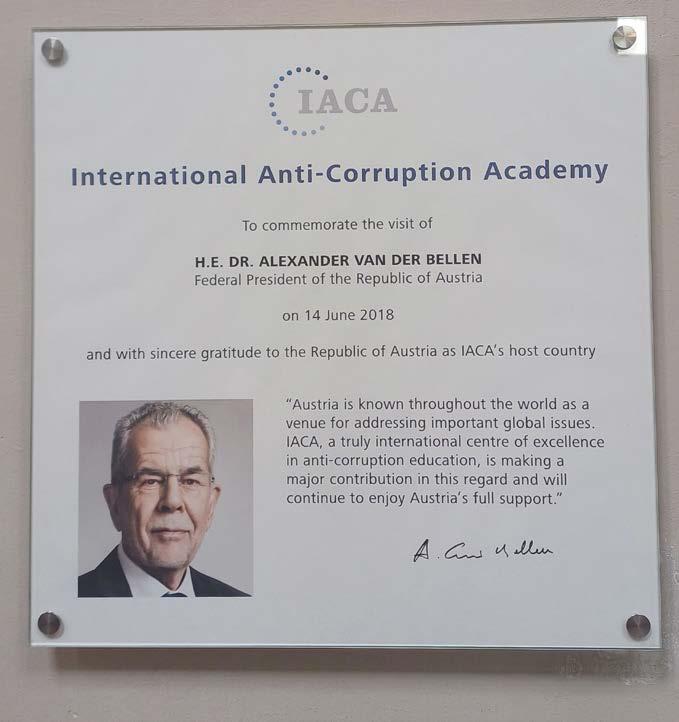
Assembly of Parties of the organization. This is the journey that brought me here, and I must say there is nothing I want to do more at this period of my life. This is what I want to do.
What is the focus of IACA’s work? Do you think there are strong grounds for optimism?
IACA is an educational institution based on cooperation. We cooperate with universities and international organizations, invite the best experts to work with professionals from different countries. IACA has alumni from 168 countries. Every communication, every work, every training is an added value to the fight against corruption. Since my appointment, we have been talking about opening IACA even more. So far, we have always worked with professionals who are proficient in English language. My position is that there are many skilled professionals who do not speak English. So, we have opened the calls for lectures in French and Arabic.
For example, the African countries speak French. To bring the African professionals to IACA to give their expertise and hold lectures or make research, we need to offer this possibility. This is a good start. We have received the Board of Governors’ support and support of the member states about this idea. I have discussed the idea bilaterally with some ambassadors.
At this moment IACA has 77 member states parties. There are countries which are not yet in our list including the big countries such as Canada, USA and the European countries like Germany, France, Netherlands, Switzerland, Norway, Poland, and others. This is something we need to focus on, to go back and talk about it with every respective government. May be, back at that time when IACA was established, the developed countries could not see the value of being one of the IACA state parties. Therefore, we need to address this issue again and emphasize the need to provide the highest quality education on various aspects of corruption. If the developed countries do not see the need to educate their own personnel or professionals, they will always be able to support the developing countries to train their professionals.
We need to address this issue to work together and to cooperate and bring on board developed countries. On one hand, in all aspects of the IACA’s activities, such as master programs, tailored trainings or research we cooperate with professionals and lecturers from developed countries and their institutions, but again, it is good to have states to be members and to show their support for enhancing the capacity for fight against corruption in developing countries. Also, if you look where the
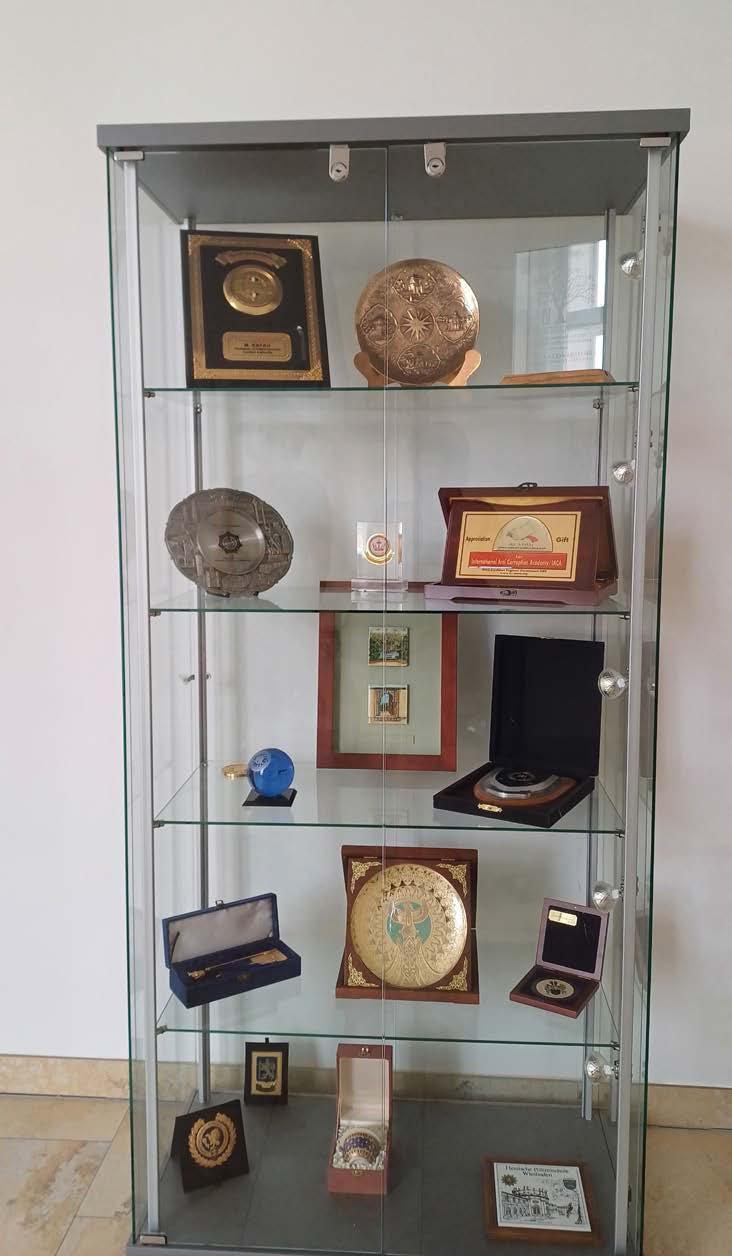
corrupt or criminal assets are placed, you will find them in the developed countries. Asset recovery is based on knowledge of international standards and cooperation. So, our task is now to reach all these EU member countries and explain to them what the role of IACA in this fight is and make them think again that there is a need to develop education.
Allow me to underline that the member states do not have the obligation to pay contributions to the Academy though they have ratified the agreement. This way, we tell them that it is fine if you do not pay
contributions, instead it is better if they support the students and send them to IACA.
In our communication with developed countries, we promote the possibility to support developing countries by paying scholarships for their students as they cannot afford their studies. This is another way for the developed countries to support the developing countries in increasing their capacity for the fight against corruption.
On the other hand, we are focusing on working with the universities to integrate corruption topics in the syllabi. We work based on the European Credit Transfer System (ECTS), which is recognized by most of the EU member states. IACA is recognized as the higher education institution in Austria. So, IACA’s diplomas are Austrian diplomas. We have initiated activity to check with the state parties whether they recognize our degrees and diplomas as this is particularly important to attract more students and to say that this diploma is relevant or can be connected to your studies in your university for advanced studies like PhD or others. We are also working on preparation to open PhD studies next year.
Can you speak about the importance of female leadership in this institution, and how your own experience as a woman in this field has influenced the results? As the only female dean of IACA, how do you feel about this experience so far?
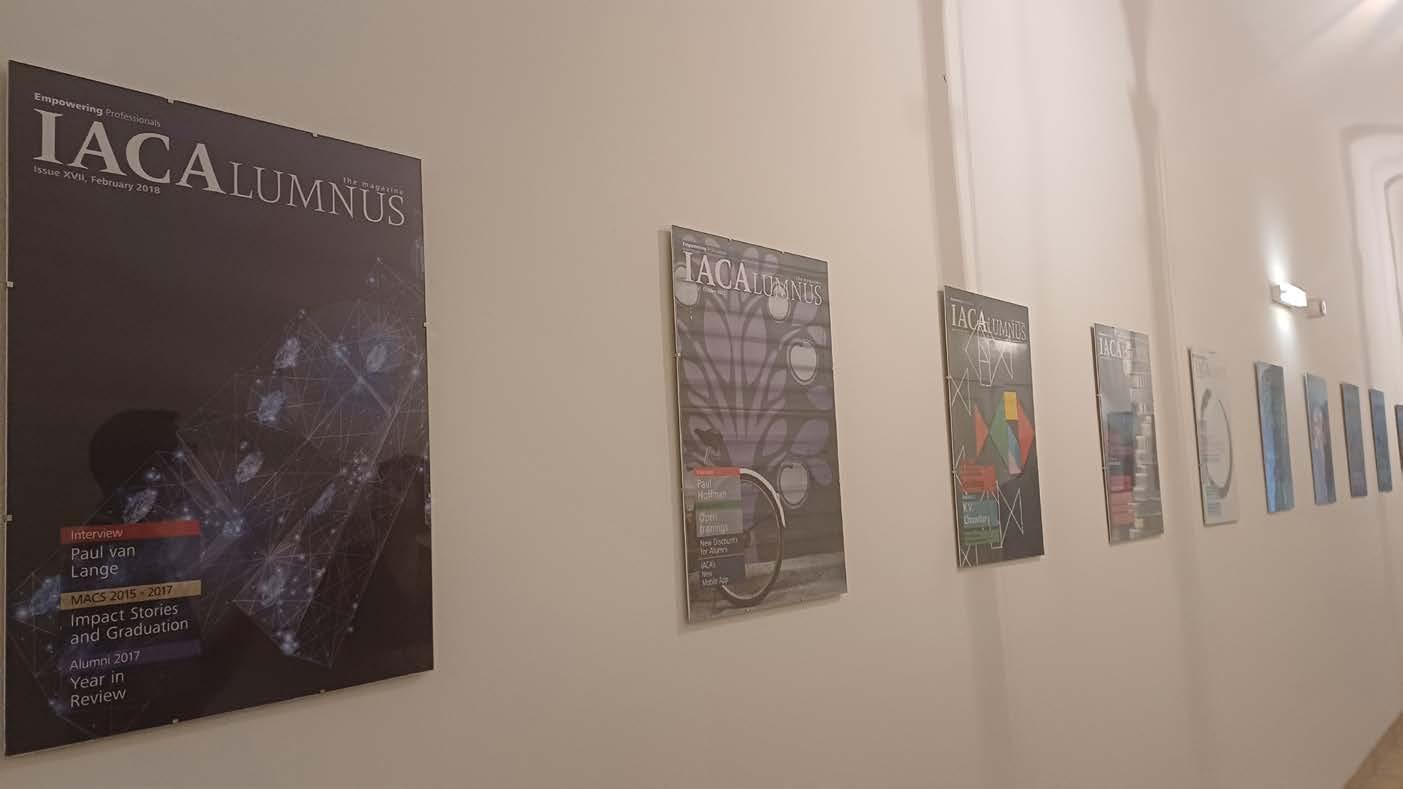
I am the third, but first female Dean of the IACA. From my own experience, I would say that my own female leadership is proven to be good for such types of institutions. I was the first president of the anti-corruption commission established in my own country in 2002. This small agency dealt with difficult matters, such as privatization and asset declarations and I succeeded in making it a milestone in the institutional response to corruption. After that I was Director of the police academy, and it had 51 % female students. I was dean of the faculty for the detectives, and now I am Dean of the IACA. I cannot confirm by scientific evidence, that a women perform better, but I can say that the women are committed leaders, dedicated and brave to take the step, to take the lead, to make decision and give an example. To be a leader, you need to show how to do it. I have seen in many institutions that female leaders make satisfactory results and
substantial progress. They are decisive to make changes, to speak and do things. As a woman, I use my intuition. I do things that I believe are right. Intuition is a characteristic of the woman, I think.
What motivates you and the IACA to continue to work toward training and streamlining the people to combat corruption word wide?
Motivation comes from all sides. First, IACA is an educational institution, and at the same time an International Organization.
This is my first and biggest motivation. To be aware how important education is for progress, and to contribute to the changes we want to achieve by providing education based on the best academic knowledge, research, and best experts’ lecturers that provide training and education based on the ambitious standards and new
methodologies for students from every corner of the World. We believe in education and how education can contribute to changing our reality to be better.
The IACA, as an educational institution and international organization, understands the diversity of the global situation. First, all IACA employees come from different countries, we have professions and students coming from various countries. Also, our students are from different countries. At the last graduation ceremony on 4th December, we had 34 graduates from 24 countries! We understand that we have a great amount of diversity that needs to be unified in the fight against corruption. We are different but we have the same problem to solve. This is why the motivation of IACA, and my motivation too, is to bring everything together. This diversity is a challenge, and uniting different professions and cultures in working together is satisfaction and additional motivation.
In my view, there is not enough understanding about the need to have a good education in this field. Institutions dealing with corruption, organized crime and money-laundering need to cooperate. Therefore, part of the IACA’s role is to bring all of them on board to work together. This is the place where we can invite everybody and collect their expertise. This is our team spirit. That is what people at IACA advocate and try to make it happen. We see that this is possible because we see more positive responses.
What are the challenges the Academy is currently facing, and what is needed to upgrade and enlarge the scope?
The biggest challenge IACA has been
facing in the past years is financial stability. Because it is an international organization which has 77 member states and 4 international organizations. However, the member states have no obligation to pay any fees to be a member of IACA. The idea to make IACA an independent educational institution was based on the vision that it would become self-sustainable by offering training. But it was not very much taken into consideration that IACA is an educational institution and center of excellence for active professionals who are already working and who need to spare some money and time for education. At that time, those who created the Academy thought that every state could bring one or two professionals for education in the IACA.
Therefore, our aim is to encourage the member states to support their own professionals. If it would be so, IACA would be self-sustainable enough, but not every country is sending professionals, and IACA’s work has mainly been based on the scholarship provided for our students, training fees and different projects and programs. For example, Siemens Integrity Programs, founded around 10 years ago, was one of the main providers of scholarships. Right now, we are raising awareness of the countries to support the students. Also, I am trying to spread the word among the international community that is funding anti-corruption programs in different countries. This is my main challenge right now while working harder to bring more students in IACA. This is the best way; instead of asking for money from different countries, I ask for bringing more students to IACA as this is a win-win situation. All sides will benefit from this.
Also, I am calling on the developed countries to advise their embassies who have scholarship programs in the developed countries to support these students who will apply for IACA.
I have made many speeches and lectures about IACA and its programs and vision. Recently I received particularly good advice – to open the IACA to the public. Nothing has been decided yet. But as you saw this is a beautiful historical palace.
Why Laxenburg is chosen as the location of the Academy? As we understand the place is rich in history and served as a summer getaway for the aristocracy and high society during the times of the Habsburg dynasty.
Austria as the host country provided the capacity for establishing the IACA in general. Austrian Government bought this building from the previous owners and while we were working on the agreement on the IACA’s establishment, we witnessed the progress of the reconstruction works. Austria invested a lot in this building and Laxenburg is established as the seat of the IACA with a separate annex to the agreement between the IACA and the Republic of Austria. For me personally, this palace symbolizes the IACA. It is our symbol. We have it in all our certificates.
The building, located near to Vienna, is in perfect condition. As I showed you, the classroom, the dining area, library, cafeteria, the garden, they are simply great. It helps you to stay focused in this historical environment.
Laxenburg is a historical place. The
IACA campus is set in Palais KaunitzWittgenstein, which dates to the 17th century and is rich in history, having served as a nobility residence and a prominent women’s educational facility. In 2010, it was renovated by the province of Lower Austria and transformed into a modern campus, with its ancient charm preserved. The Habsburg Dynasty was spending the summer here. They also built a direct railway from Schönbrunn Palace to Laxenburg. A fairytale style Schloss Laxenburg Castle is close to here. Many houses are built around the castle while a lot of tourists visit Laxenburg every year.
Beyond your academic and diplomatic costume, who is Mr. Slagjana Taseva? How do you spend your free time?
I’m a person who loves spending time with family and friends. I have two children and four grandchildren. I’m glad Vienna is not far from Skopje and the Hague, and we can visit each other. My friends say that besides my challenging profession, I am a normal person. I like talking to people,
I like walking in the park, in the mountains and by the Ohrid Lake in North Macedonia. I love swimming, skiing, reading books, watching good movies and listening to good music. I used to play violin at some time in my life. I travel a lot, mostly for work. I like to visit historical places and exquisite natural resorts such as the Bande-Amer and the buddhas in Bamiyan (Afghanistan), but I also love exotic island of Papua New Guinea, and my friends who are my family in Port Moresby and in Bougainville.
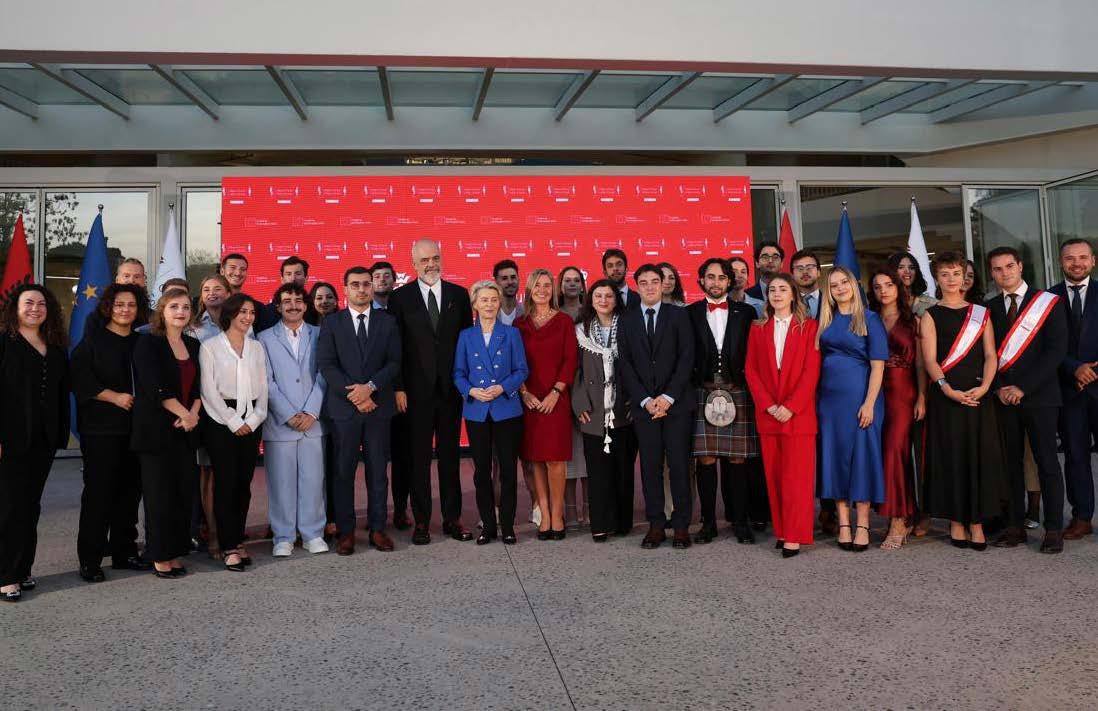
Odeta Barbullushi, resident professor of the newest international educational project in the region, tells us about her experience at the College of Europe and how the College can contribute to europeanizing the Balkans.
The CoE has trained generations of European diplomats, civil servants and even leaders for over 75 years. The first campus in Bruges was built just a few years after the end of the WWII with the aim of preparing a new generation of Europeans who would strive for peace.
By Rudina HOXHA
A special talk with Ms. Odeta Barbullushi, who is the Resident Professor in the Department of European Transformation and Integration Studies in the College of Europe (CoE) in Tirana, comes in this issue. Odeta never quite stopped being an academic even during her term in government, as Adviser of the Prime Minister, Mr. Edi Rama.
To her, joining the CoE “has been quite an exciting journey so far” while she is looking forward to the graduation of the first cohort of students of the Tirana Campus. “They will always be the pioneers of the College of Europe in Tirana,” she told TRAILBLAZING MAGAZINE/The Women Edition.
Among other points, Odeta underlines the CoE’s significant mission nowadays.
“I believe that in the current political context, when there is so much disenchantment with the European project, in general, and the EU enlargement, in particular, inside the EU, the mission of the College of Europe is more important and relevant than ever,” she says.
The CoE campus in Tirana was inaugurated on October 2023 and it was a result of the
Agreement, between the Rector of the College of Europe, the Albanian Government and the European Commission in the sidelines of the Berlin Process.
Full interview follows:
After serving as Advisor to the Prime Minister on EU Integration and Regional Cooperation, you recently joined the College of Europe in Tirana in the role of the Resident Professor in the Department of European Transformation and Integration Studies. What was the transition like for you?
It has been quite an exciting journey so far. Admittedly, I never severed ties with academia, teaching and research during my tenure at the cabinet of the Prime Minister. Quite on the contrary, I taught an MA course at the Institute for European Studies at the Tirana University, I continued to publish and I maintained my relations with the academic community. Of course, time was always limited to do more and for obvious and ethical reasons, I could not explore scientifically various processes
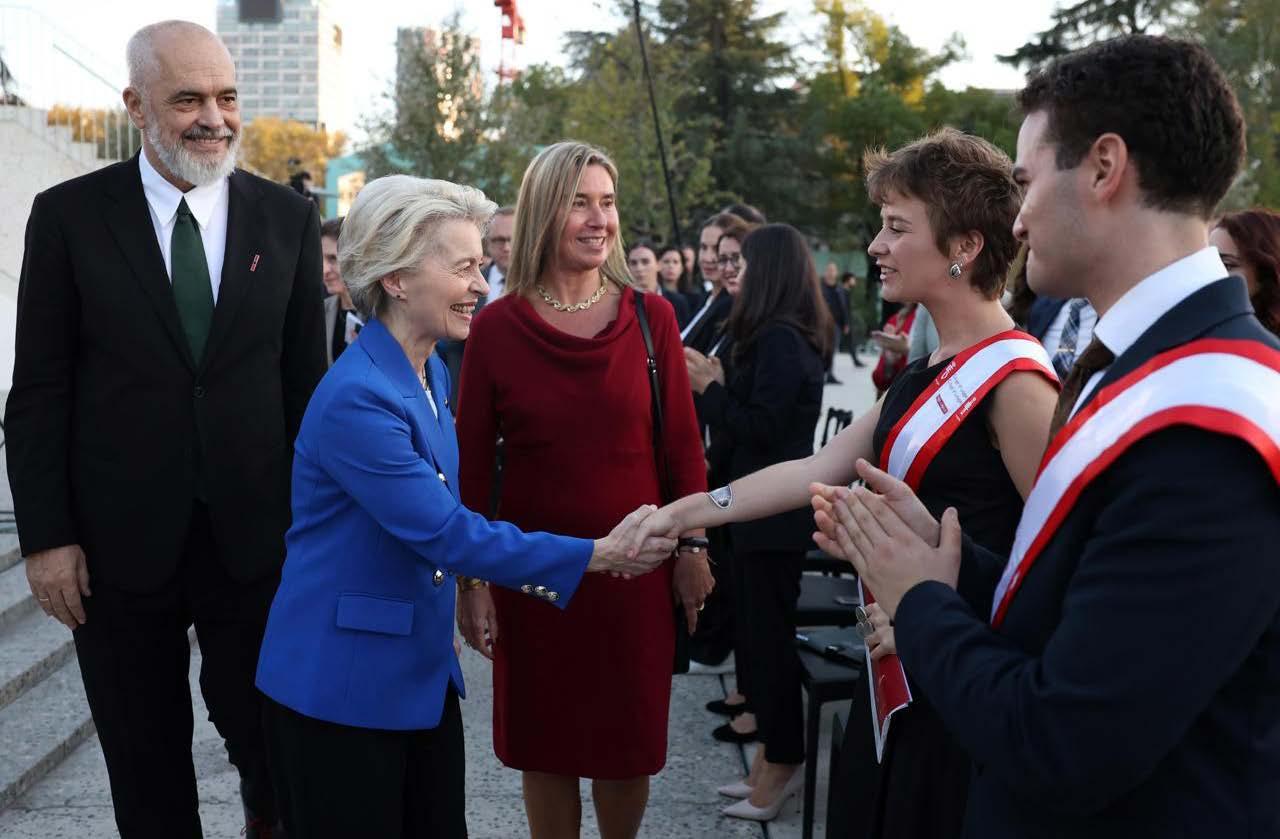

for which I was responsible in my role in government. Yet, I never quite stopped being an academic even during my term in government. Therefore, joining the College full-time was in many ways an invigorating re-start.
What does it mean to you to teach in a prestigious institution like the College of Europe in Tirana? What sparked your interest in College of Europe (CoE) in Tirana?
The CoE has trained generations of European diplomats, civil servants and even leaders for over 75 years. The first campus in Bruges was built just a few years after the end of the WWII with the aim of preparing a new generation of Europeans who would strive for peace. The College, therefore, builds on quite an honorable tradition and creed. I believe that in the current political context, when there is so much disenchantment with the European project, in general, and the EU enlargement,
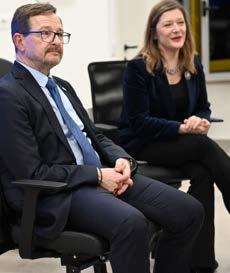
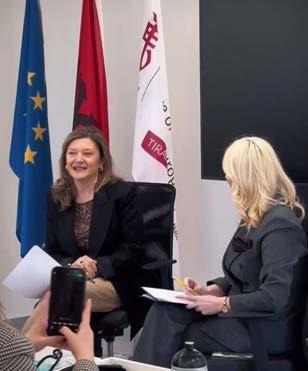
“It is important to underline that 100% of students from Western Balkans get scholarships. The college offers the unique opportunity to exchange with top decision-makers from the EU and the region. Also, it provides access to EU institutions/traineeships/job market and interaction between policy makers and student community.”
in particular, inside the EU, the mission of the College of Europe is more important and relevant than ever.
What are you most looking forward to during your time as Resident Professor in College of Europe in Tirana?
I am looking forward to the first conference of the program European Transformation and Integration, which will take place next week, as well as to a number of high-level talks and open lectures we will be hosting at the College in the next couple of months. But in particular, I am looking forward to the graduation of the first cohort of students of
the Tirana Campus; they will always be the pioneers of the College of Europe in Tirana.
It is important to underline that 100% of students from Western Balkans get scholarships. The college offers the unique opportunity to exchange with top decisionmakers from the EU and the region. Also, it provides access to EU institutions/traineeships/ job market and interaction between policy makers and student community.
What do you consider as the most challenging aspect of your work? And the most rewarding?
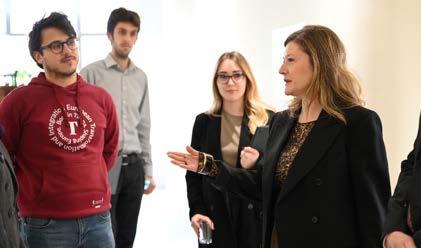
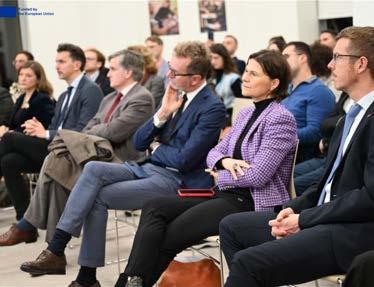
The most rewarding aspect is teaching a class of 21 different nationalities across Europe. They may have different academic backgrounds and levels of knowledge of the EU institution, EU Law and the region of Southeast Europe. The challenges are similar to those of any new and pioneering project, and I believe that they will be addressed as the College grows both physically as well as in expertise, research and programs. One must remember that the entire project took off in less than one year, from the signing of the Agreement between the Rector of the College, the Albanian Government and the European Commission in the sidelines of the Berlin Process to the start date of the academic year. Hence it is remarkable what was achieved in the course of such a short time.
In your view, how important is the launch of a new Campus of the College of Europe in Tirana? Can you define the College of Europe’s most significant contributions to Albania and to the next generation of European citizens?
I think it is a fantastic opportunity for Tirana and the country as a whole. First of all, it
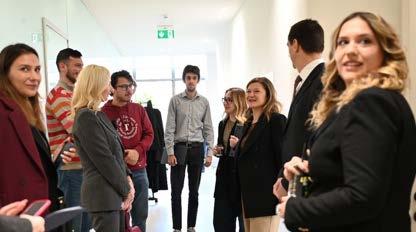
will make the country known even more than it is already. Family and friends of our students will visit and that attracts attention and interest for the country. Secondly, it contributes to making the city an international city. Universities, the arts and the financial institutions have been historically the strongest internationalizing influences on cities and countries (if we leave Vatican aside) As it grows, I hope the College will project the image of Tirana as an import node in Southeast Europe. Thirdly, I think the College is a good influence on the Albanian and regional education system; being part of the regional ecosystem of higher education and research, the College of Europe will definitely contribute to stronger competitiveness and better standards of the system as a whole.
Fourthly, the College is not just a teaching institution but also a laboratory of ideas and policy initiatives on the accession processes of Albania and the region. It, therefore, contributes directly to a much needed debate on Europe, European security, as well as the region’s role in it.
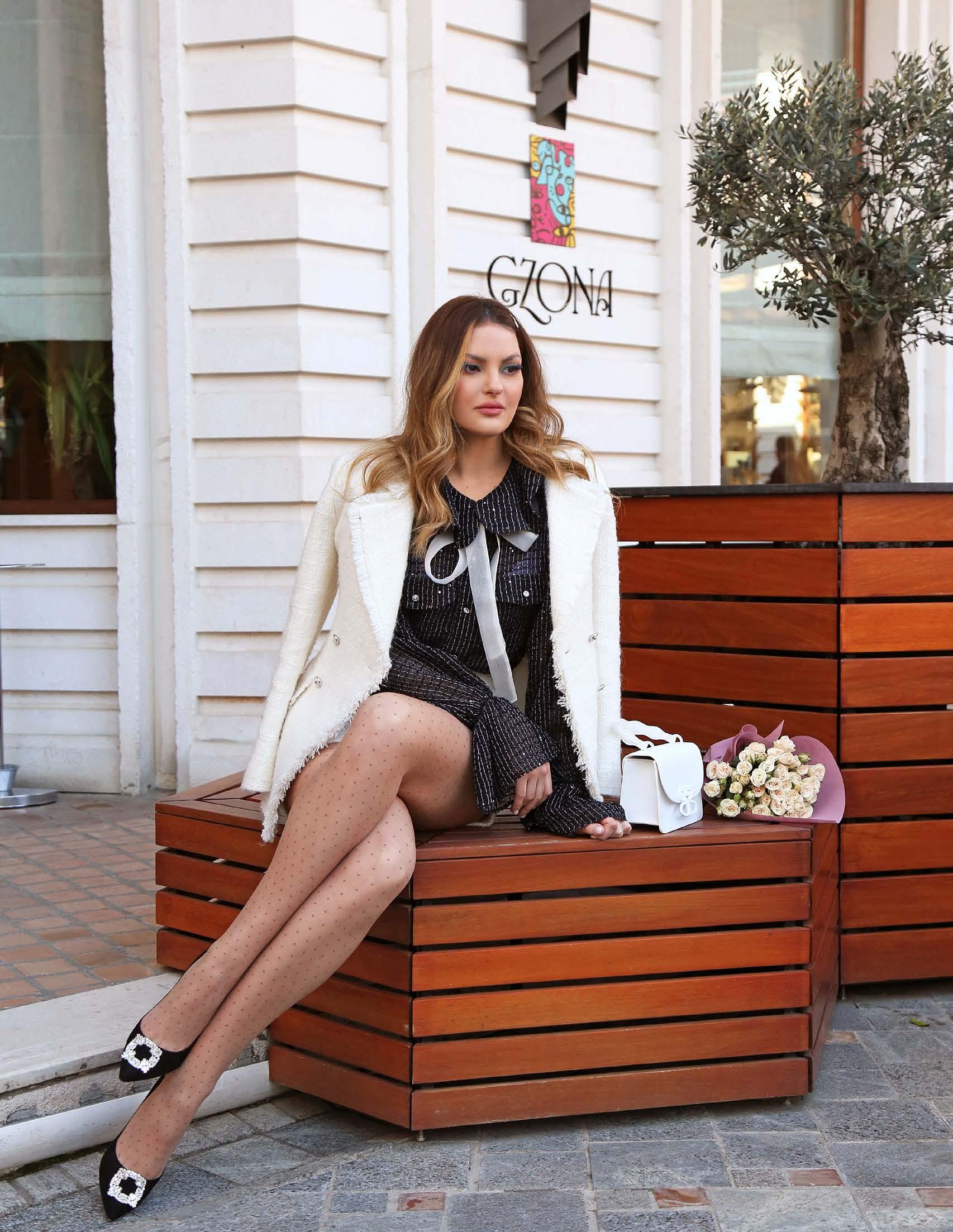
“Happy

jonamuca_atelier
Frensi Muça, the manager and the fashion director of Jona Muça Atelier, talks about the story of the company and its principal core values.
Young and full of passion and talent, Frensi, a mother of a 4-year-old daughter, is doomed to continue the tradition. Her mother, Jona, is her best model of inspiration, constant learning and life lessons while her father symbolizes quality. Surrounded by the best models, Frensi is in her habitat where she is blooming day by day.
Frensi does not prefer to make plans but her dream is that one day, Jona Muça Atelier gets its own place on the international market while 2025 will give more space to the collections.
Full interview below:
Dear Frensi, thank you for being with TRAILBLAZING Magazine today! Please can you tell us a it more about yourself, your role in the company and the experience you hold in this family business so far. Jona Muça Atelier has been operating for more than 15 years. Initially the company was called Stil Moda Atelier and was located in Lignano Sabbiadoro, close to Venecia, Italy.
Jona is the name of my mother who is a self-taught seamstress, originally coming from a family with a long artisanal tradition. We have inherited this tradition from our grandmother who used to be one of the best tailors in the city of Vlora. She was from Kosovo but was transferred to Vlora after she got married with my grandfather.
Even my great-grandparents from my mother’s side were artisans in Gjakova. They used to produce traditional fezzes.

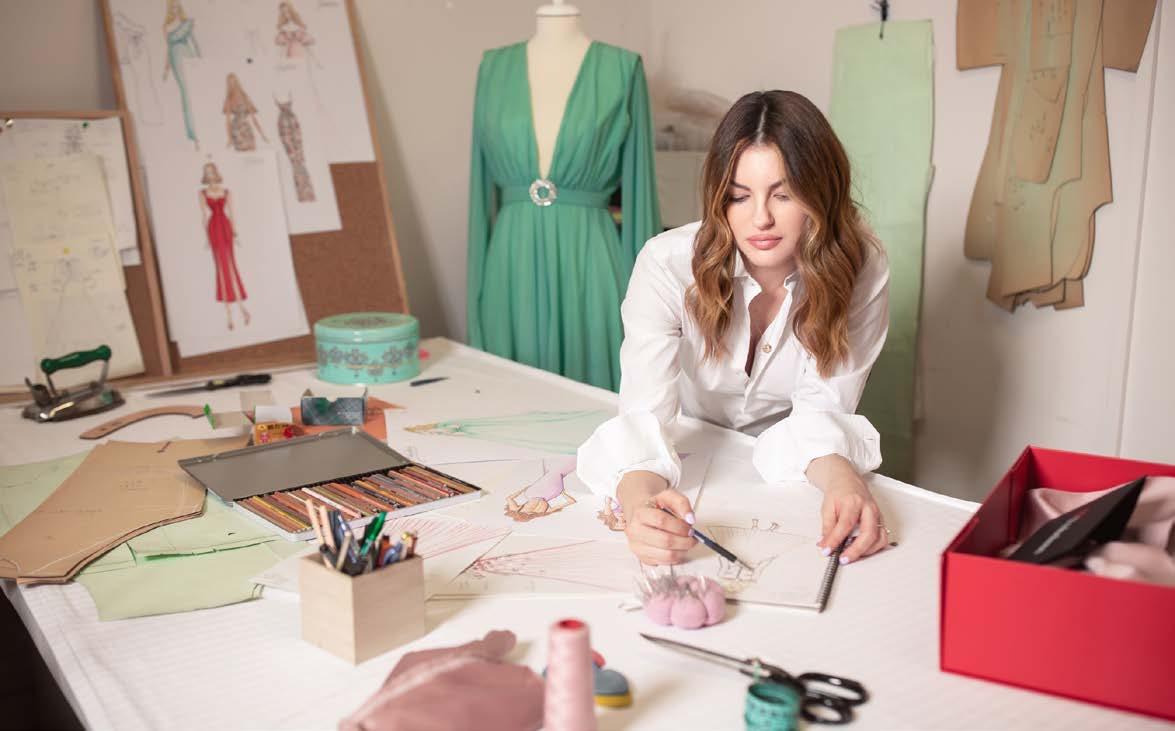
On the other hand, the mother from my father’s side was fond of fabrics. She sewed for some times. Apparently, it was meant for me to continue the tradition. Though I have studied law in Tirana and completed even my master’s studies in law as well. Soon I realized that my passion was elsewhere given my sharp and creative soul. Since I was a child, I made sketches which served to my mother’s job. Though I was small, my mother always respected my creativity. All the sketches she found nice and useful, she would give them life.
When we organized the first fashion runaway, I was a teen and I remember that most of the clothes used were based on my sketches. Soon I realized that I could turn this passion into a profession.
Actually, I act as fashion designer and the manager of the company. I am in charge of everything that needs my help and support to be resolved. All those people who run family businesses know that you need to be 360 degrees available for anything that comes up. In a word, I am a jack of all trades in the company.
My parents left for Italy when I was 15 months. They lived there for long. I was raised there, my brother too who was 6 or 7 years old at that time. We were both educated with the Italian culture and norms. We were taught to assess people for their values, their education, and for what they say. This has helped us a lot even in the way we treat our clients.
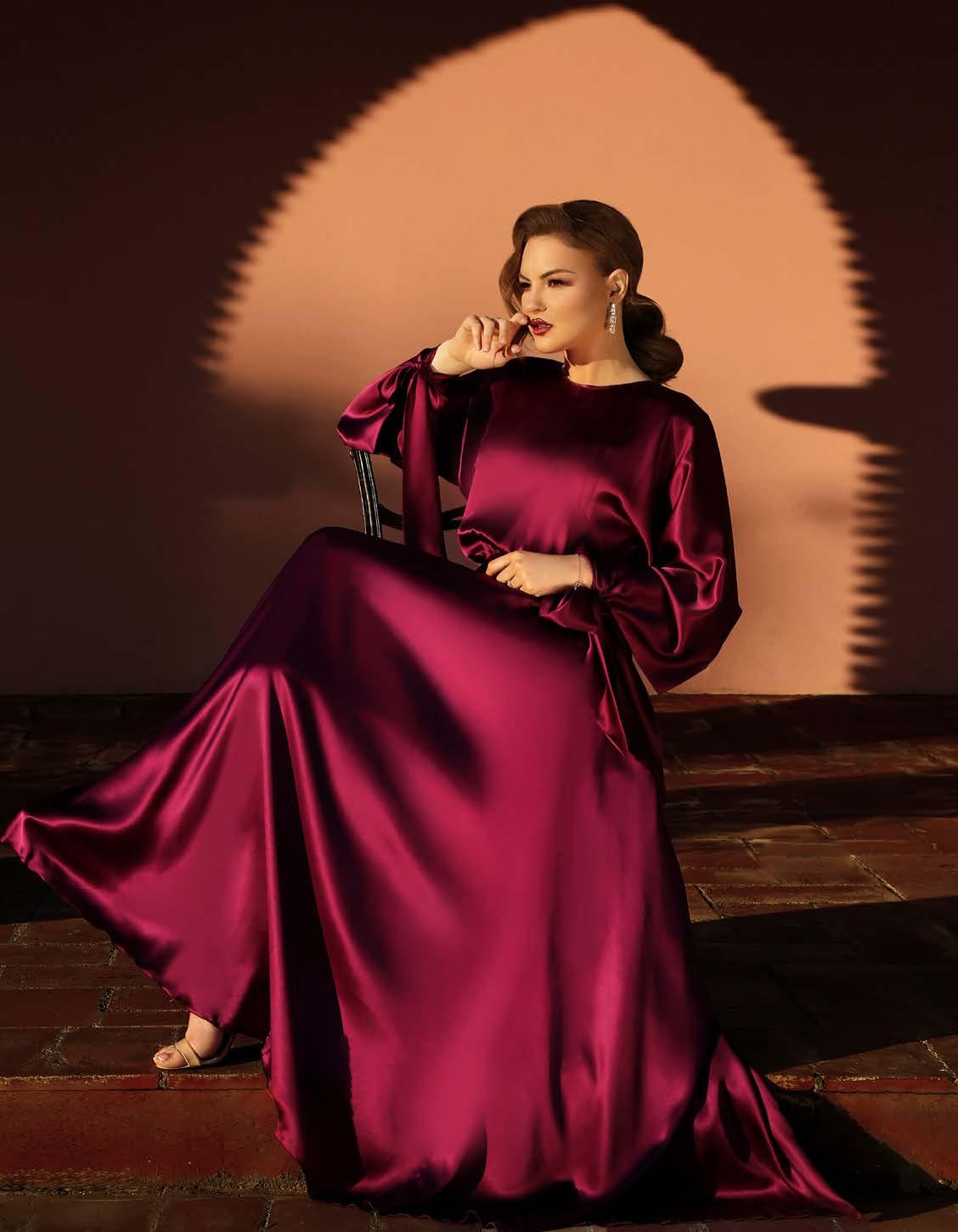
What have you inherited from your mother when it comes to design?
There are two features I have surely inherited from my mother – first the elegance – the wish to create outfits full of femininity and grace.
Both we are crazy about quality. We take attention in details. If we can add a third feature, I may say that both of us love
flowers, pearls and everything else that is part of the feminine world, to be to part of our outfits.
Though we belong to two different generations, our creative vision for the beauty and the nice outfits goes in parallel.
How would you define the design and do you think design is taught or is inborn?
I think design is art. It is the art of creating.
I think a creative mind views the design in many aspects. If you are fond of designing, you are fond of architecture too as well as the beauty in dressing nicely or the ‘architecture’ of nature. When you have a creative mind, you constantly find the beauty in a 360 degrees way. Having a creative mind is inborn, it is personal and you keep nurturing it.
In Albania, there is a “landscape” of competitors in this field. What are the aspects that Jona Muca Atelier wins over?
The key to our success is that we don’t pay attention to competition because what we do, we don’t consider a business. There are many business people in this field but very few are artists. Whoever see the beauty as pure art, they don’t experience competition. Nowadays we see many fashion businesses or selfdeclared stylists who see the fashion as a source of incomes. For them, the market is important while we remain stoic to our ideas and creativity despite the market trends. We have historically stood loyal to our principles.
What strikes about the Jona Muça Atelier is the top quality of the fabrics. Can we talk more about this aspect?
This is a merit of my father. Our fabrics come from Italy. We have kept the same contacts with Italy since we created the company. When Lombardi Tessuti was opened in Tirana, there were many other fashion shops which exist to date but we had the conviction that thanks to our taste and our loyal to quality, we would write our story of success. We are cooperating for more than 5 years with Lombardi Tessuti and this confirms our conviction.
We realized that there was space for something new, so we entered in.
We can make happy a woman or a lady, or a child because we create outfits for people aging between 1 to infinite. Only the idea of making someone happy means everything to me.
Meeting my clients is a process that goes through two scenarios: when I create small collections – in this case, I have more space to create concept ideas with my mother. Second, when I am on the site, with the clients on the occasions of celebrations or events, or when we design work outfits. Always my main goal is to make the person happy. To achieve this, doing the right sewing is not all. The right cut or model and the right color you choose for that person are essential too. Unless you try a dress and check how it fits and how right the colors are, you cannot decide whether the outfit is proper for you. A certain color fits to some people but to some others not. The same for the models chosen. Such details are crucial. Over the last year, I have been studying the harmocromy of colors. This is a discipline which, by analysing the combination of eye, hair and skin colour, defines the ideal colour palette for each person. All these elements must be well combined to have the best result ever.
We are very happy that our clients leave our shop with their highest assessments.
Can you describe the clients of Jona Muca Atelier?
Our clients are mostly Albanian but foreigners lately as well. We treat our clients equally. We don’t work with the concept of a VIP client. Our client might be Mrs. Liza, let’s say from Saranda and she wants to make a dress because her son will get married. But our client can be even a minister who wants to sew a suit. At Jona Muça Atelier, you will be treated equally. We do not make this difference among our clients.
We make them feel good, confident and
speak through our outfits more than they can say in words. This is our final goal. We are not making clothes, so the clients can impress the others.
How much important has been for you to be surrounded by two wonderful parents in life and in business?
I think it has been essential because by nature I am very sensitive. No matter how much I love one profession, it is very difficult for me to give my best in an environment which is not supportive or lacks the proper energy. Working in an environment where they appreciate you and your skills is crucial. In my case, working while you are surrounded by your parents is the best habitat. I believe it is very important for the people to give their best in their work especially in the artistic field where the inspiration and the mood is key to a well course of work. In other words, the energy or the vibe in the work environment is vital.
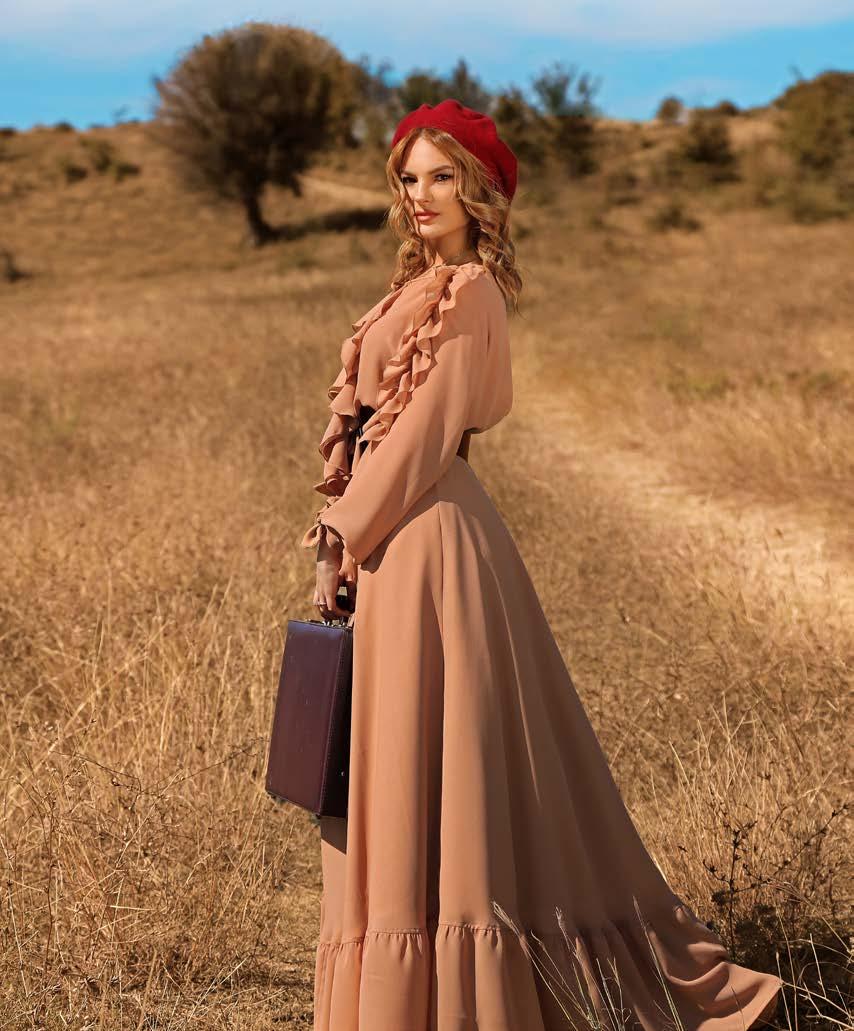
And being a mother, what impact had in your life?
This has influenced me in a very good way. Of course, on the other hand many professional projects were sabotaged. I feel very good when I hear that many women, despite being mothers, manage to continue their businesses without fluctuations due to help and support they get. In my case, being a mother has fulfilled me in such a way I had never imagined. My daughter is above all. Though I love what I do, my daughter always stands above.
The fact is that I have not yet found a balance between my motherhood and my work. When I am at work, I often start thinking about my daughter, regretting how come I am not patient enough with her, or how come I can not find more time to stay with her. But when I am with her, my mind goes to work and the new ideas I can explore and put into life. This dualism between possibility and the work is indispensable and finding the best equilibrium, at least for me, has been and continues to be challenging.
I think that the time I spent for my daughter is the only time which will never come back to me. Especially her first years which are essential for the formation of her character. I think it would be a second moment when I will have more time to dedicate myself to work.

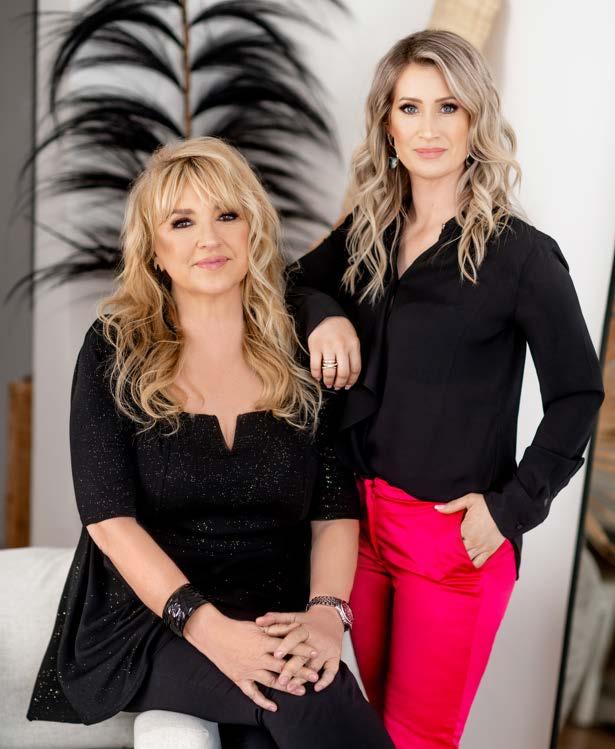
“Bringing readers closer to the fascinating region of the UAE”
By Rudina Hoxha
PETRA DIETZ & SARAH SCHMITT, both Germans, are the publishers of THE finest EMIRATES MAGAZINE, a printed magazine showing to the world what you can experience in the United Emirates of Arabia.
The magazine, published three times per year, is an elegant coffee-table magazine that can be left on the table as decoration. Visitors like to pick it up.
“Those who visit the Emirates experience much more than luxury - it is the rich culture, warm hospitality and service at the highest level that characterise the UAE,” they say in this exclusive interview with TRAILBLAZING MAGAZINE/The WOMEN EDITION.
Around 4 years ago, both female entrepreneurs also launched their own cosmetics label, FRAUSCHMITZ Beauty, offering high-quality sheet masksespecially for the face, décolleté and eye area.
They think that “women, are capable of great things and together we can create a supportive and equal future.”
Photo Credits:
Read more about
I want to start off with, what drove you two to create THE finest EMIRATES MAGAZINE and make it famous?
More than ten years ago, my business partner Sarah Schmitt and I launched the magazine, inspired by our enthusiasm for the Emirates. As the UAE has become increasingly attractive to travellers from around the world. And with good reason. The Emirates are a fascinating blend of opulence and sophistication, modernity and glamour, tradition and openness. They combine contrasts with a luxurious lifestyle. But those who visit the Emirates experience much more than luxury - it is the rich culture, warm hospitality and service at the highest level that characterise the UAE.
What inspired you both to start your own magazine? Did you face challenges in the very beginning?
We have set ourselves the wonderful task of bringing readers closer to this fascinating region of the UAE, while integrating a global
© The finest Emirates, DietzSchmitt Media GbR pictures of the sheet masks: © FRAUSCHMITZ Beauty, DietzSchmitt Cosmetics GmbH & Co.KG
lifestyle. As with any business, our start was not easy. It took time to build trust and a solid reputation. As in many other countries, this is a challenge - and we had to overcome this hurdle in the UAE as well. But in the end, we overcame it successfully. The Finest Emirates is an exciting magazine concept that has been and continues to be very well received.
Can you describe THE finest EMIRATES MAGAZINE in a nutshell?
THE FINEST EMIRATES magazine presents exciting locations and popular hotspots in the Emirates and around the world. We report on exciting events and cover topics such as business, culture and sport. We also meet fascinating personalities and offer insights into high-end fashion, beauty, lifestyle and indulgence.
In your view, what has kept your magazine going? Is there an issue of one of your magazines that you’ve been particularly proud of?
We love what we do and are passionate about what we do. We are always open to new topics and trends. Our readers have high expectations, and we meet them with a solid journalistic approach - be it through high-quality reports, portraits or the latest news. And we present it all in an elegant design. Interesting content in an attractive layout is our strength. We also pride ourselves on being a unisex magazine. We choose our topics carefully to appeal to people of all genders. We place great emphasis on providing content that is of universal interest and fascinates both men and women. We cover a wide
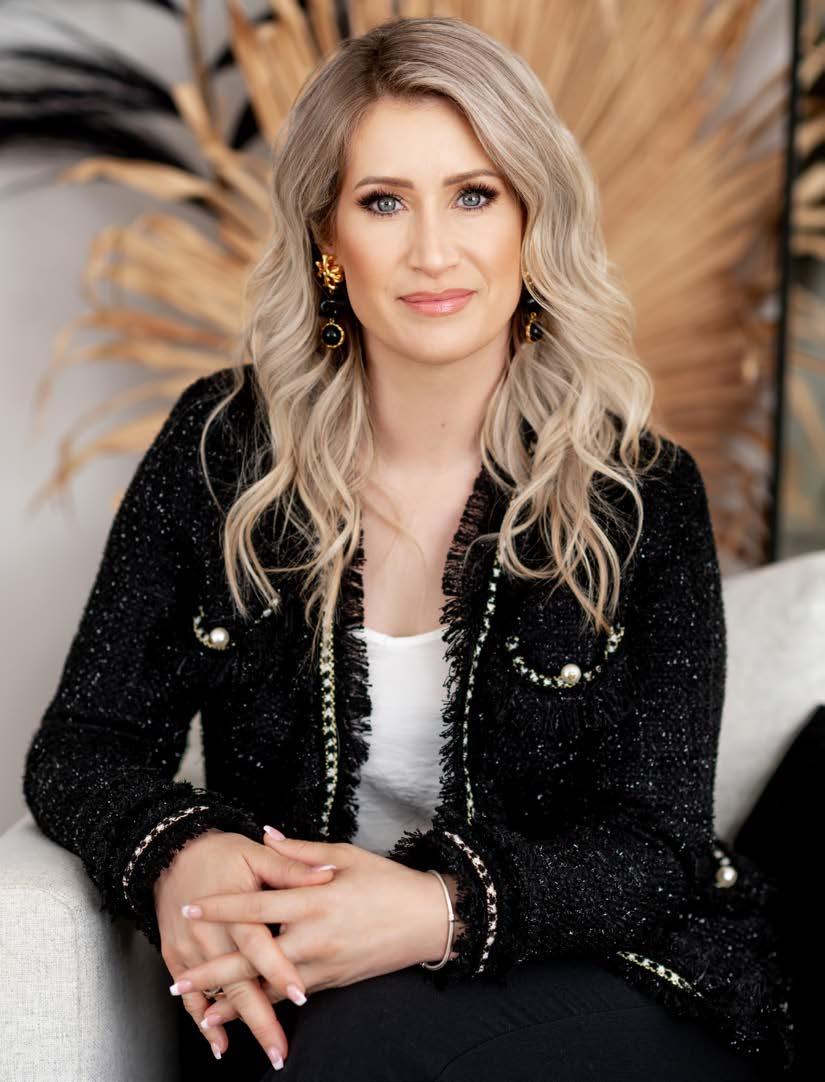
range of topics - from lifestyle and culture to business and innovation - in a way that is equally relevant and exciting to all readers. Our aim is to create an inclusive platform where everyone can relate to and be inspired by the content.
Where do you see the printed page going in the next ten years? According to you, what people like most when it comes to magazines, digital or other various formats. Is it really all just about great photos and well-crafted words? Or they prefer the human thread?
Print magazines have always been pronounced dead. But here we arelike many other magazines. As a niche magazine, we pride ourselves on what makes us special and on our premium look and feel. Our magazine is an elegant
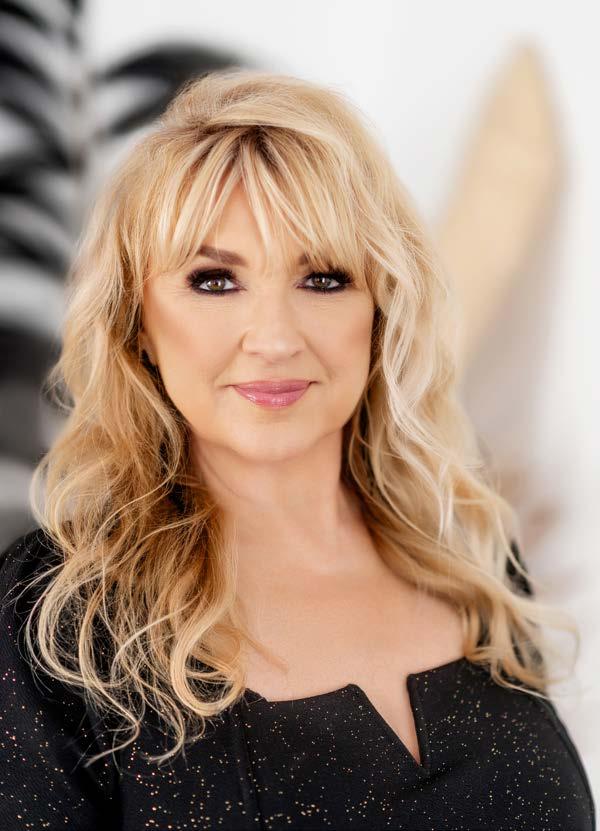
coffee-table magazine that can be left on the table as decoration. Visitors like to pick it up. This is how our magazine reaches a wide readership. It invites you to browse and read. Although we don’t have a crystal ball to predict the future, we are convinced that print magazines will continue to have a loyal readership. The look and feel of a printed magazine cannot be replaced by digital media.
How do you spend the free moments between meetings, writing stories, editing texts, etc.?
We enjoy spending time with our families. Not to forget: 3.5 years ago, we launched our own cosmetics label with great enthusiasm: FRAUSCHMITZ Beauty. With this step, we dedicated ourselves to the world of beauty and have since been offering high-quality sheet masks - especially for the face, décolleté and eye area. Our slogan ‘Bye-bye wrinkles’ speaks for itself: our products plump up wrinkles and give you a fresh, radiant complexion. As you can see, there’s never a dull moment with us.
As two females from the media world, what is your message for the women on their international day?
We want to send a message of strength, courage and inspiration to all women around the world. It is important to value yourself and recognise your own talents, no matter what field you are in. We, women, are capable of great things and together we can create a supportive and equal future. Let’s continue to stand up for each other, empower each other and be proud of what we have achieved and what we are yet to achieve.

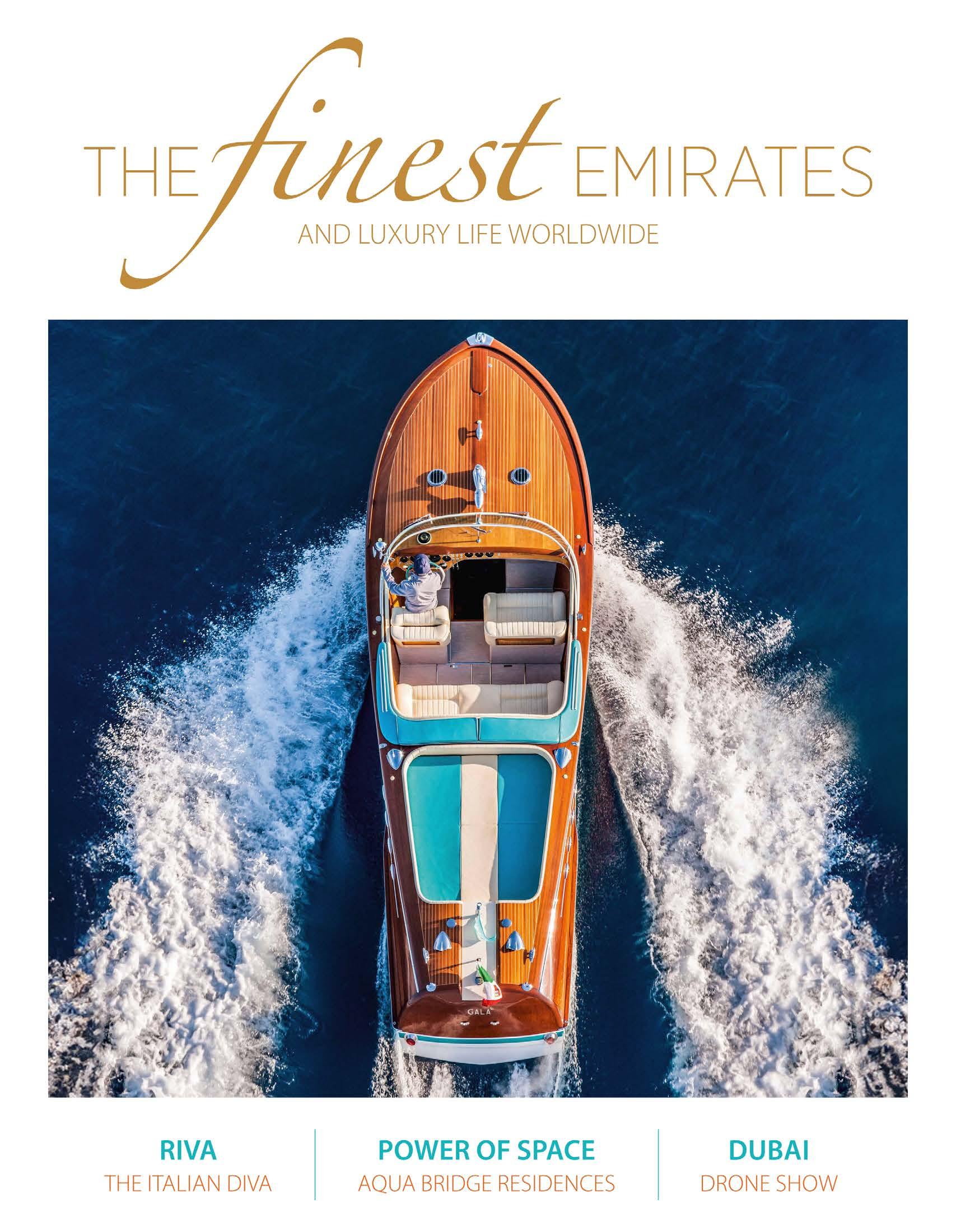
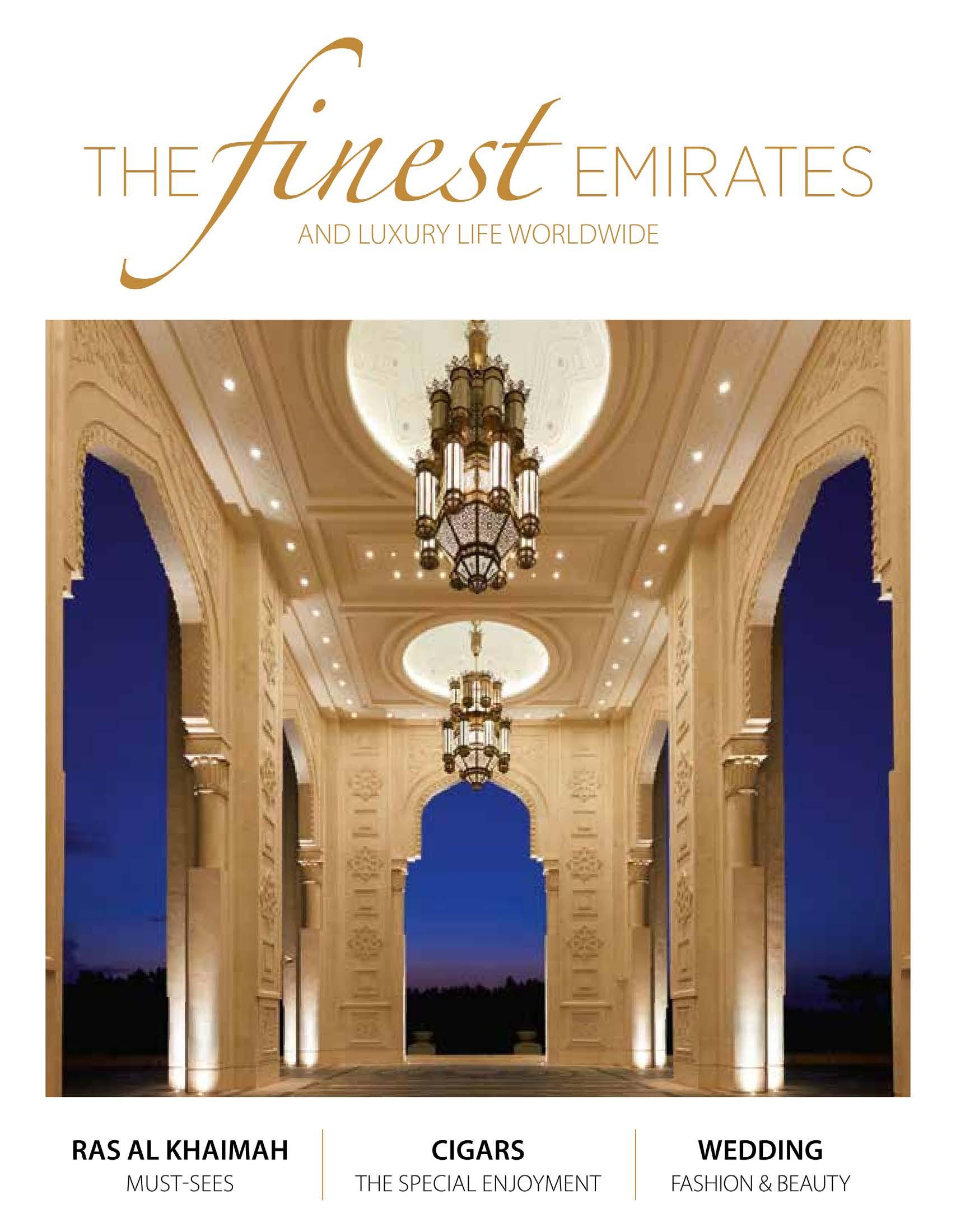
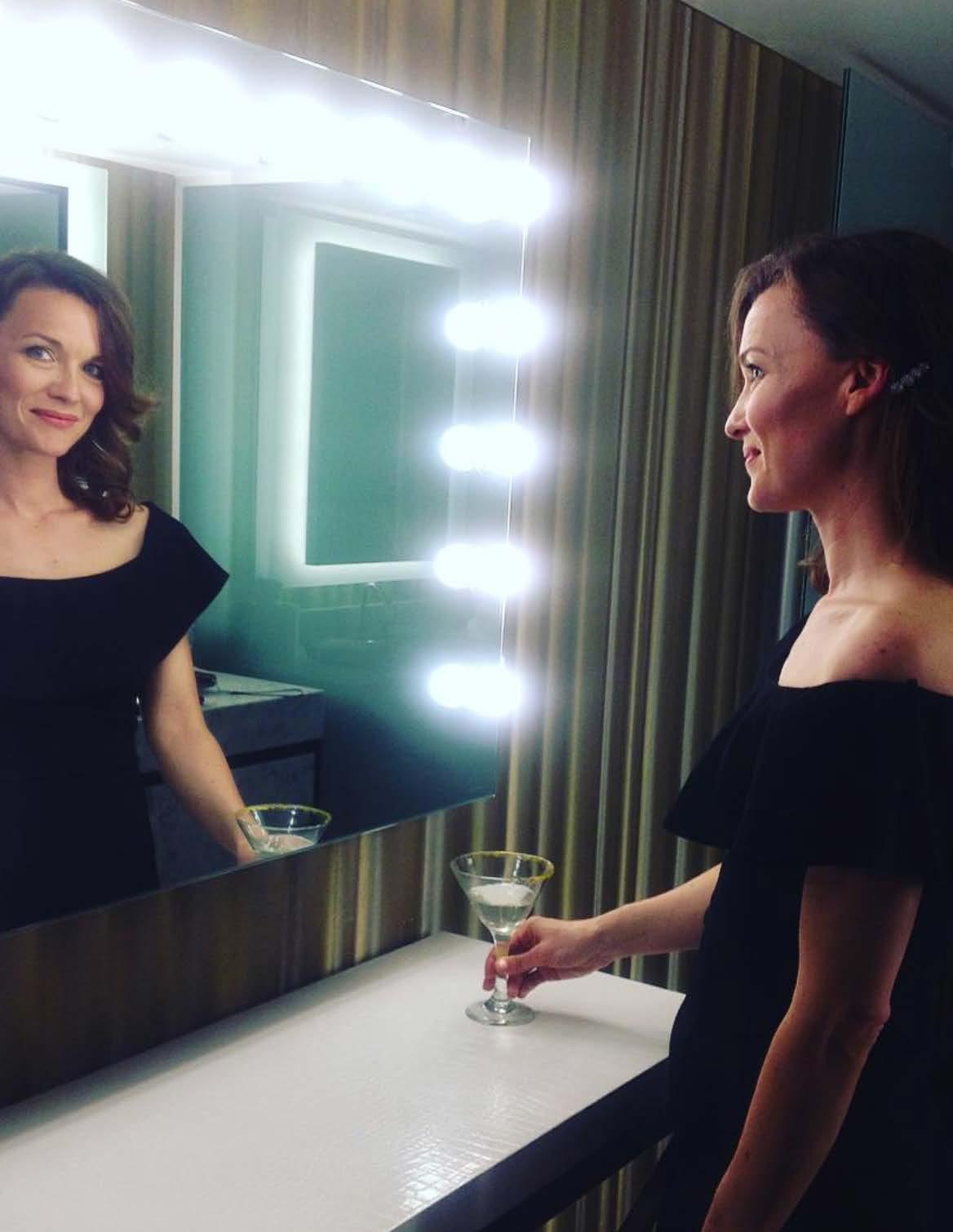
a British Journalist & World Traveller
“People in Albania are incredibly warm and hospitable—especially the women!”
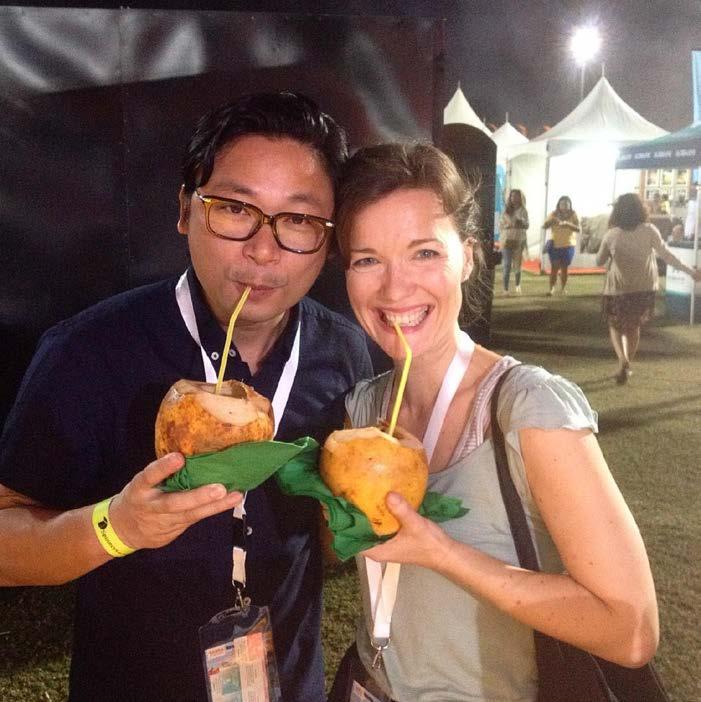
“I would also add Albania to that list because I’ve always felt very safe and comfortable here, and the people are incredibly warm and hospitable—especially the women! Albania has a very special place in my heart. This is my fourth visit, and I plan to keep returning. The country is in a very exciting phase of development, and I’m eager to see how it evolves over the next decade.”
This is what Katie Monk, a seasoned UK journalist of more than two decades told TRAILBLAZING MAGAZINE/The Women Edition among others while narrating her experience and impressions from her travels through Southeast Asia and India, across the USA and South America. These adventures ended up in articles in publications such as The Independent, Metro, The Guardian, Harpers Bazaar, The Telegraph and Conde Nast Traveller, among many others, while she also worked as a freelance sub-editor for many years.
Here, she also shares her advice for anyone wishing to write professionally, plus she now runs online courses in these topics.
Full interview below:
Dear Katie, how did you embrace journalism and how did you grow up with travelling?
I didn’t really grow up travelling, to be honest. That came later in life and required a lot of effort and personal growth because I used to be quite scared of it. I embraced journalism because it’s a great way to learn about the world, meet interesting people, and hear new stories and ideas. It keeps me on my toes.
What was the moment you left the UK? What were the first challenges of being a solo female traveller?
I’ve lived abroad multiple times—in Paris, Cape Town, and Australia—and spent long periods of time travelling. I used to work in London, then take extended trips of three to six months before returning, resuming my freelance career, and saving for the next adventure.
The current phase of my travels and work abroad was sparked by the pandemic in 2020, something I never could have predicted. In November 2019, I published There She Goes a book about solo female travel, not knowing I’d be living that life for the next five years. Life has a funny way of surprising us sometimes.
There are always challenges with solo female travel, but they change and evolve as you get older, and vary by destination. When I was younger, it was more about navigating the world as an inexperienced traveler. I was also more
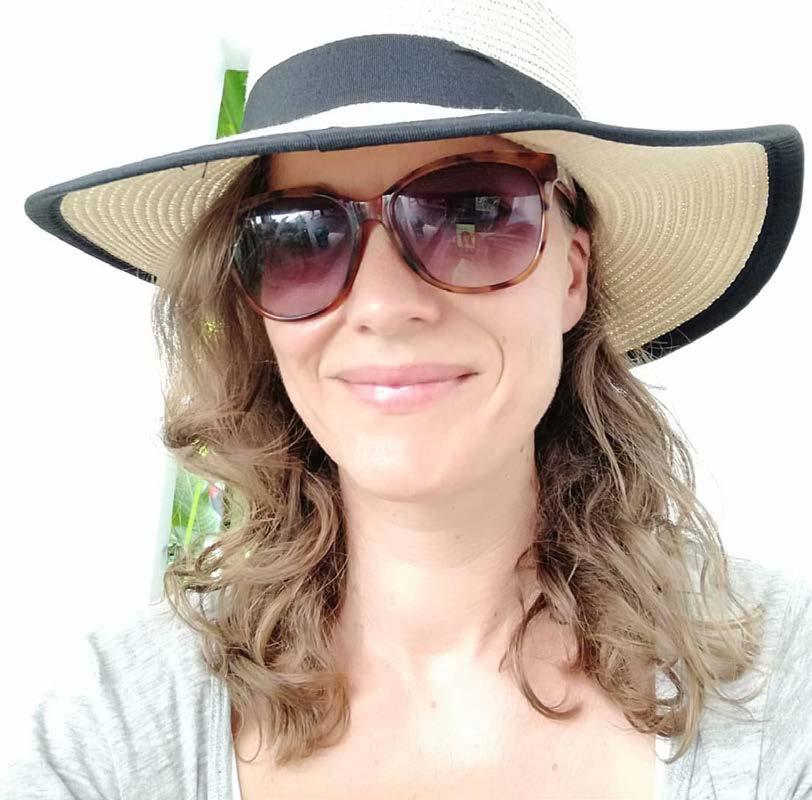
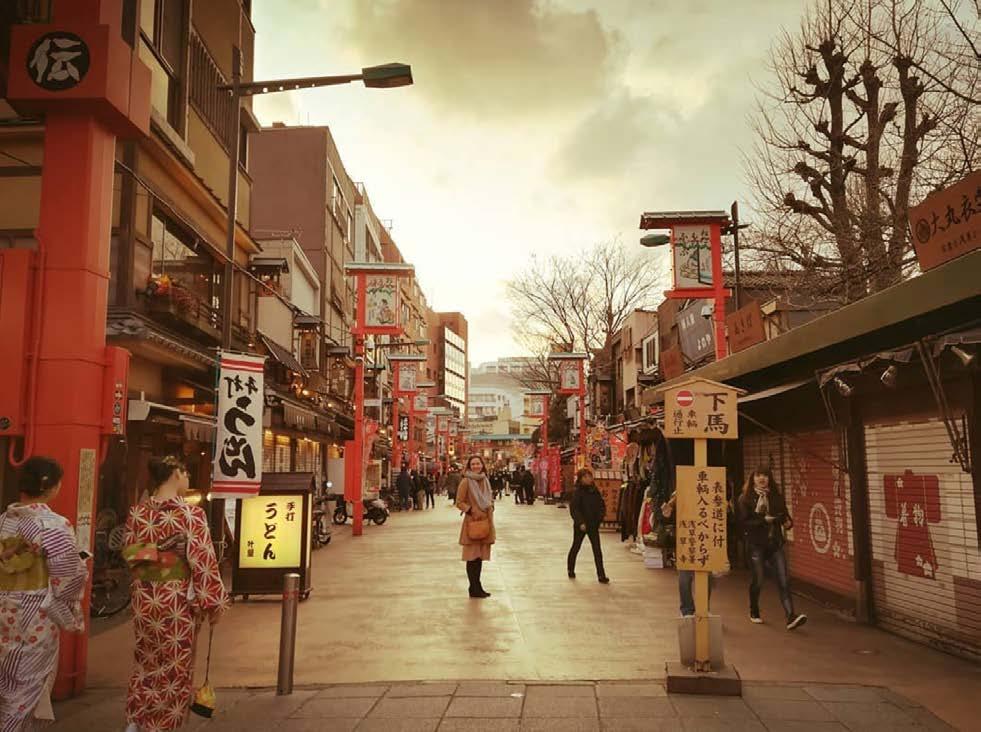
fearless and took more risks. At that age, you often seek companionship— sometimes for the better, sometimes not. You also make mistakes, push your body too far, and are generally naiver.
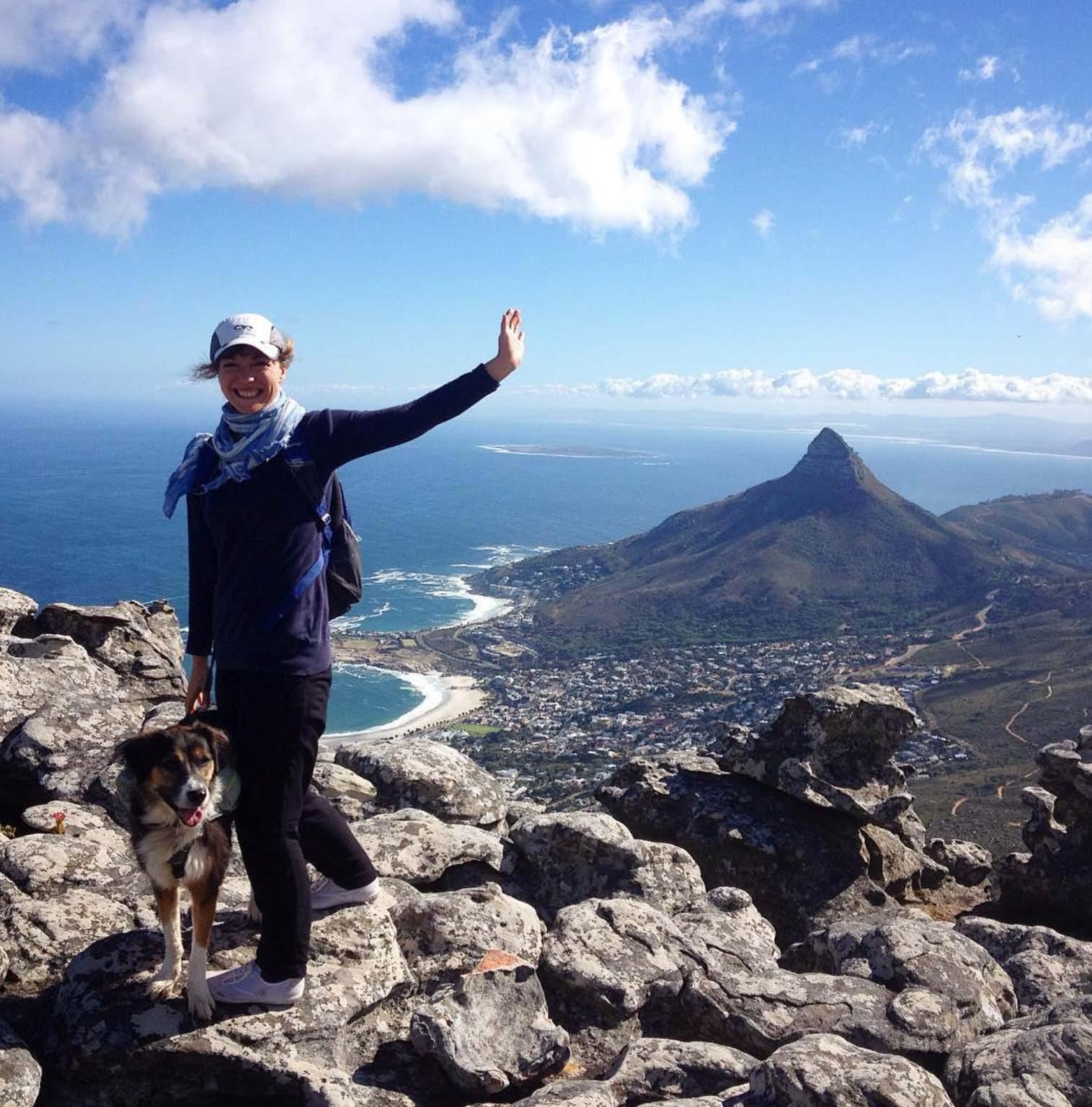
As you get a bit older, you become more confident. You learn to be alone without feeling lonely and to trust your instincts more. I’ve also become much more aware of how men and women move through the world differently— how they’re perceived and treated, what’s easier or harder, what’s possible for one and not the other. I think I’ve become a lot more cautious now. So, paradoxically, I’m both more confident and more careful now.
You have built a fantastic career of more than two decades as a freelance journalist. How did this come about? Any tips for those wanting to write professionally?
It sorts of happened by accident really. My degree was in English Literature, and after graduating, I took a TEFL course. I started as an English teacher in Paris, but I really wanted to write – creative writing mainly –poetry, plays, stories, etc. So, I moved back to the UK and took a job at Brighton University. While I was there, I saw that the college was offering the NCTJ magazine journalism diploma and decided it would be a good career move so I applied. Initially, I wanted to do broadcast journalism, but my tutor suggested I start in print and transition later.
After getting my qualification, I moved up to London and did various work experience placements—mostly in travel magazines but also in glossies and supplements like The Guardian’s G2 section. From there, I landed subbing shifts, which gave me a really good grounding and invaluable insight into how publications operate. It also helped me pay off my student loans.
I worked as a freelance sub-editor for many years, for publications such as The Times, Sunday Times Wallpaper, New Statesman Condé Nast Traveller and many others. I spent my twenties in London but regularly took breaks to travel and volunteer abroad.
When I turned 30, I decided to focus on writing again. I threw myself in at the deep end and took a solo trip to Africa, starting in Ethiopia and ending in Cape Town. It was life-changing, and very hard to go back to London after that. I fell in love with Africa, particularly South Africa, and have returned many times since. From there, I went to Nepal to cover the first democratic elections
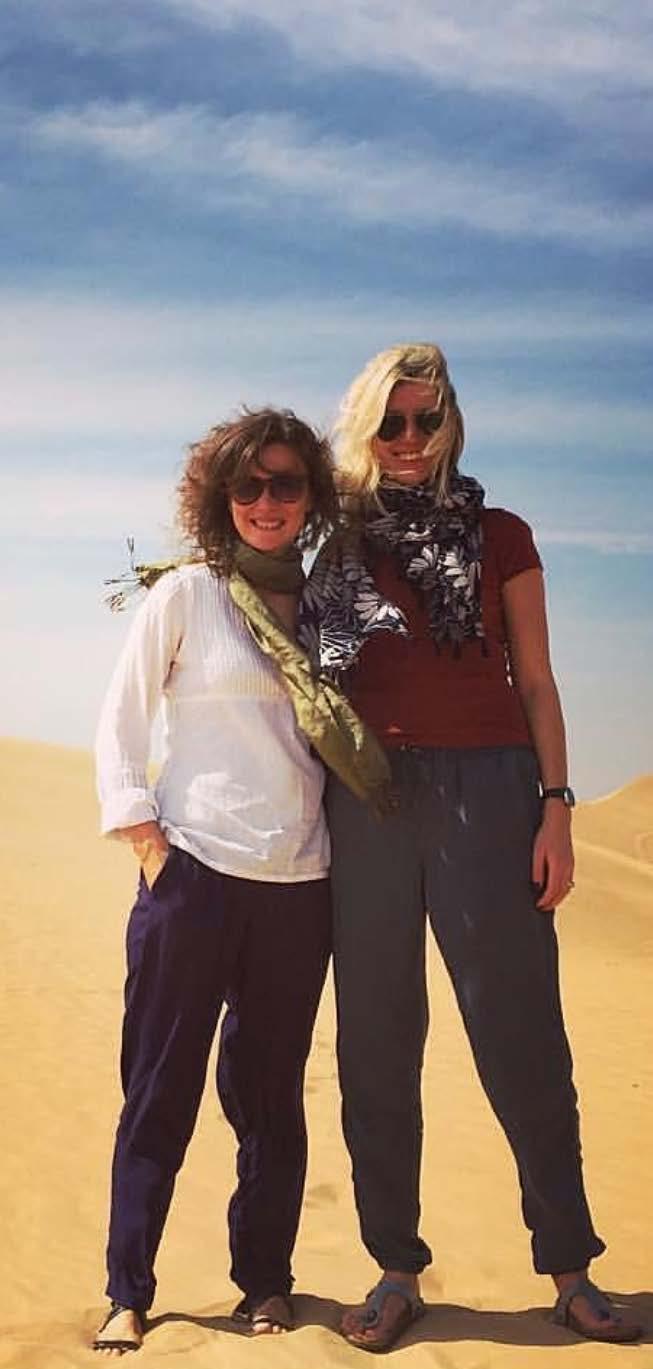
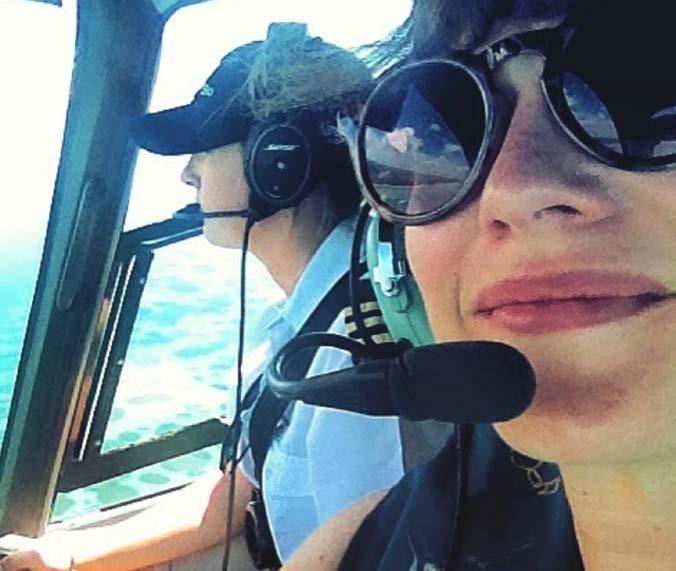
in Kathmandu and volunteer at a children’s home. I traveled through Southeast Asia and India, then across the USA and South America, all the while writing as I went. As you can see, once you start, it’s very hard to stop!
Pretty early on in my career I started getting invited on group press trips—travel assignments to cover specific destinations— which I still occasionally do, though I mostly travel independently now. Meanwhile, I also pursued acting—training in London, and performing comedy sketches, plays, and poetry. So that scratched the creative writing and performing itch.
I feel very lucky that I started inside the newsroom on the production desk, because I saw first-hand how stories are shaped, edited, and published. Most people only see the finished article, but behind the scenes, it’s a massive collaborative effort. What you read on the page is just the tip of a very large iceberg. That experience gave me a deep respect for the process. I have great admiration for you, Rudina, for publishing your own magazine because I know how much work goes into it!
Journalism, and the world in general, has changed significantly, but my advice to
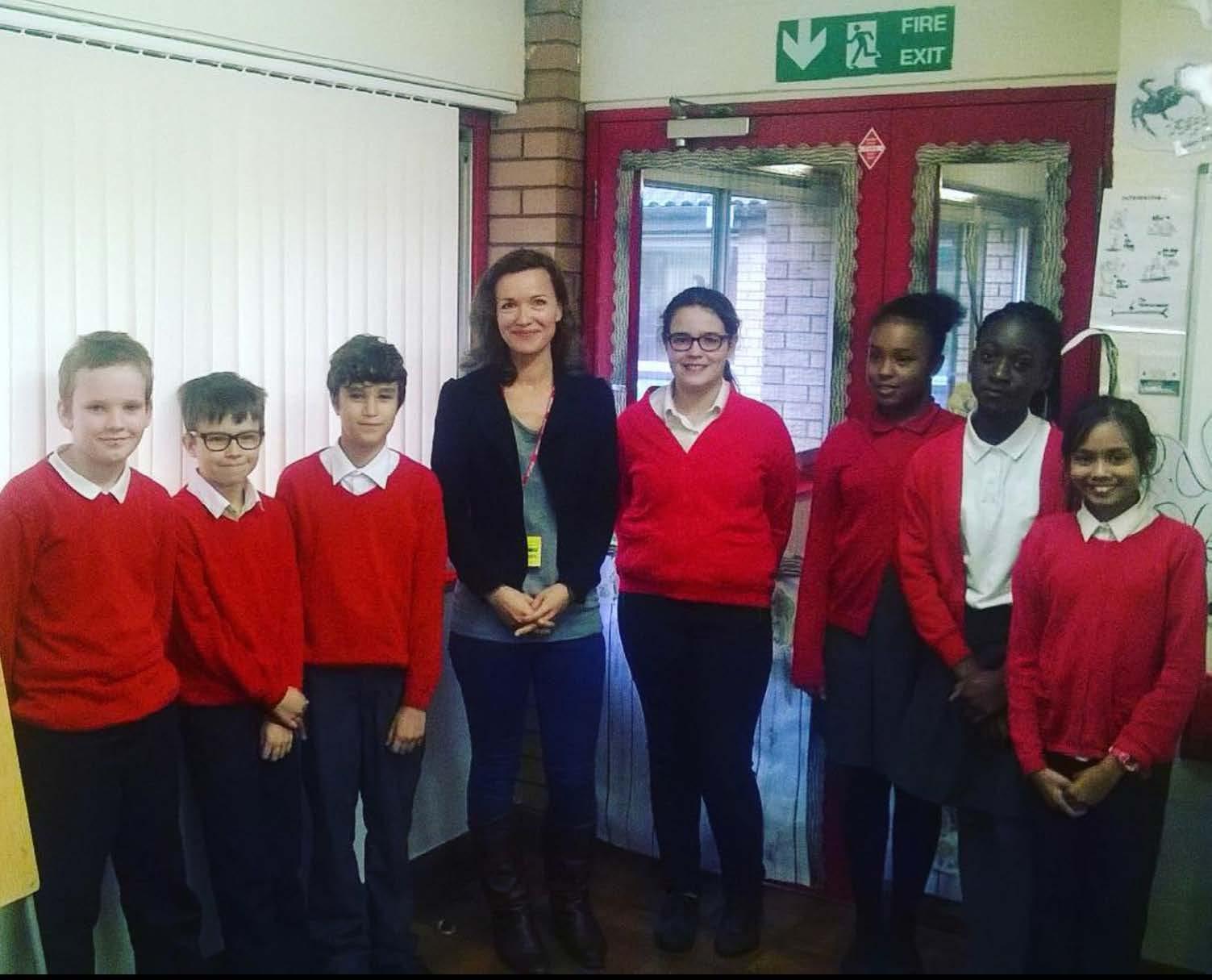
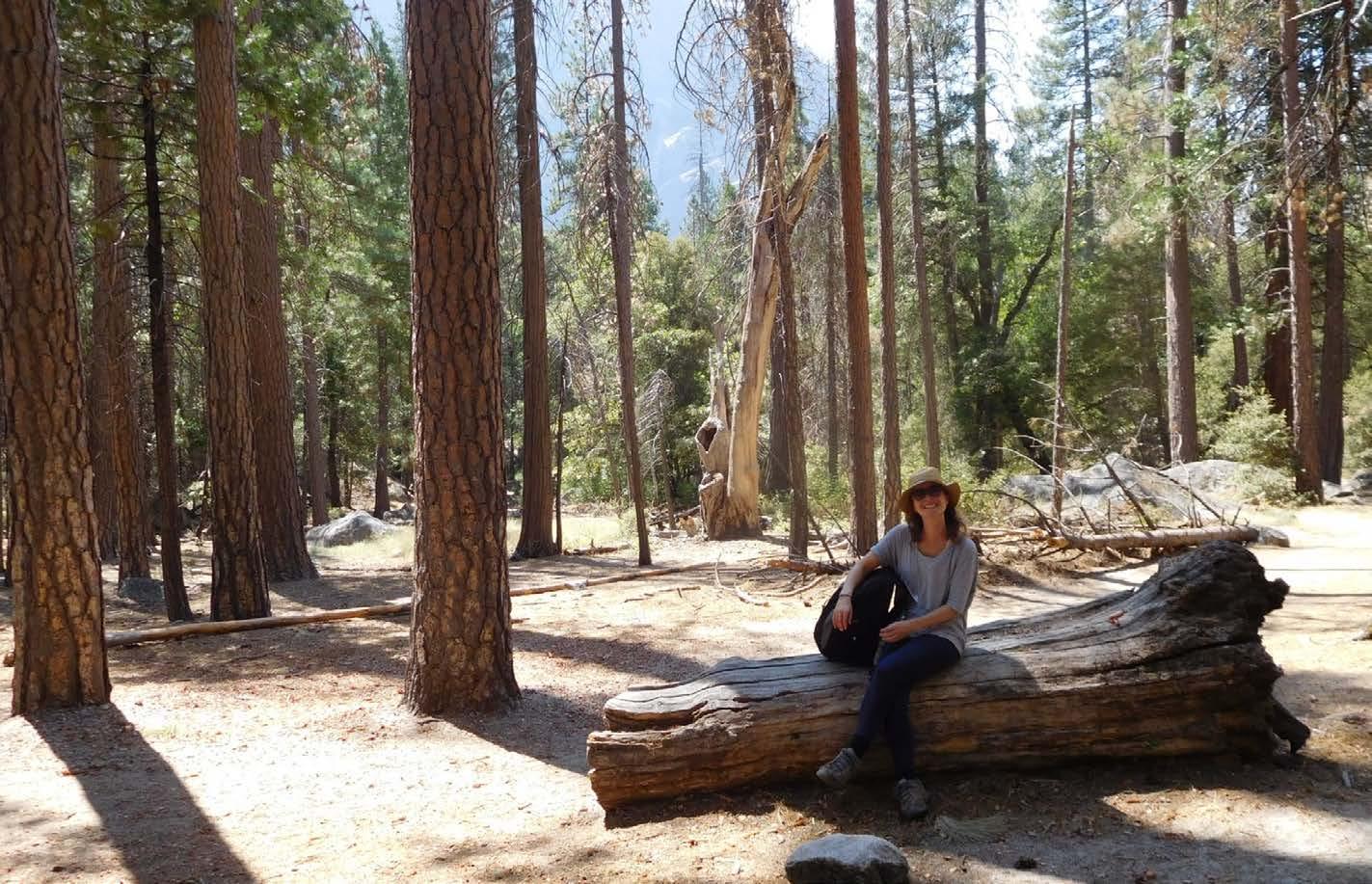
anyone who wants to write professionally would be:
• Consider an accredited course like the NCTJ, which provides essential training in media law, reporting, and public affairs. It gives you all the tools you need to do the job, not to mention potential contacts in the industry. From there you can get a job as a junior reporter and work your way up.
• Alternatively, if you have a great idea that’s timely and original, you can pitch directly to editors—you don’t necessarily need formal training.
• Learn a second or third language. And travel! Spending time abroad can open many doors.
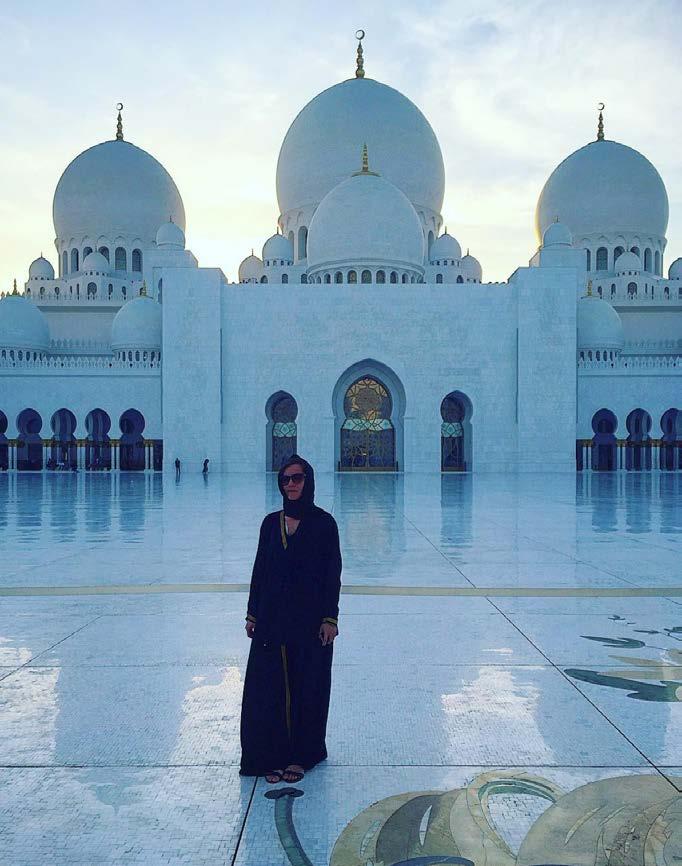
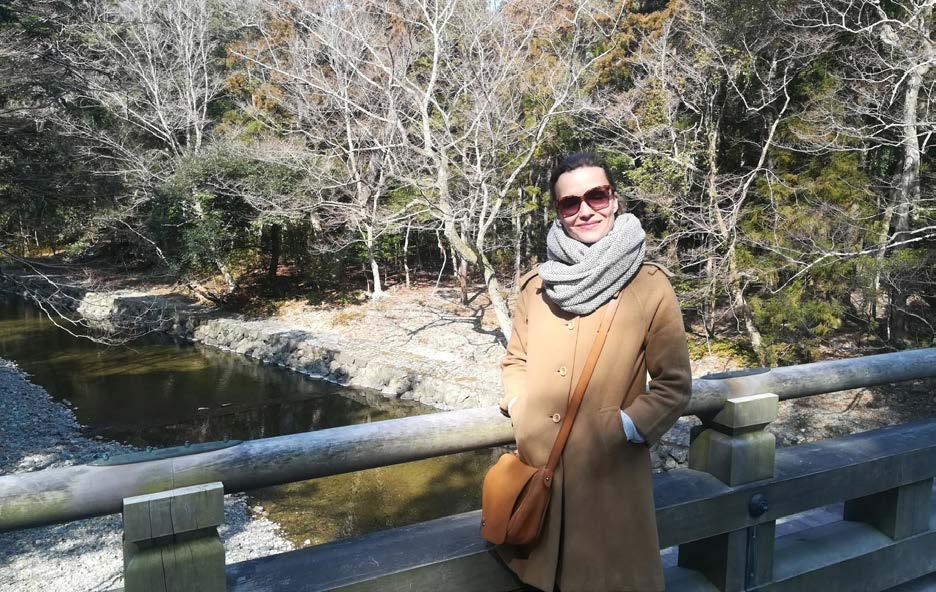
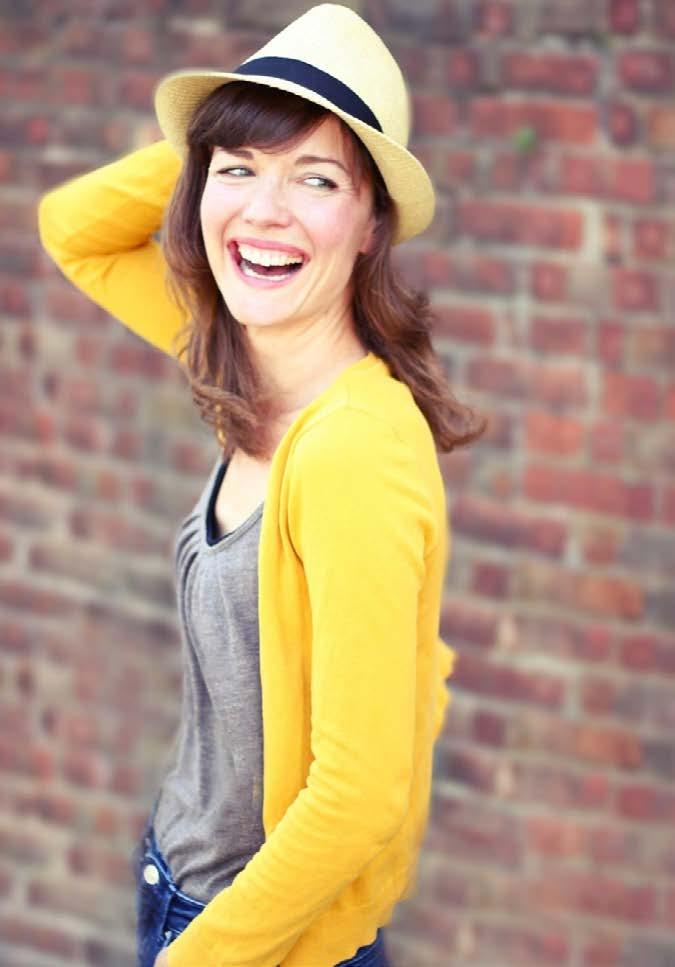
Recently I created my own courses to help people pitch ideas and to write better stories and I’ve really enjoyed teaching again. It’s great that people still want to write professionally, despite the dawn of AI and all the technological changes that has brought.
Can you mention some of the best destinations you recommend to first-time solo female travellers and why?
Japan is incredible—it’s one of the safest places I’ve ever been. I’ll never forget walking down a dark alley in Tokyo at night and feeling completely at ease, thinking, This is how men must feel all the time. It was such an unfamiliar yet liberating experience. The people are also incredibly kind. I remember standing on a subway platform when a woman suddenly ran toward me. My first thought was to panic, but instead, she just grabbed my hands, placed a chocolate in one, and beamed at me. She just wanted to help—it was such a pure moment of kindness.
I also felt very safe in Slovenia. I’ve hiked and camped alone in the Julian Alps on a few occasions. Again, the people are very kind and hospitable—I’ve even been invited to a wedding in the mountains! I would also add Albania to that list because I’ve always felt very safe and comfortable here, and the people are incredibly warm and hospitable— especially the women! Albania has a very special place in my heart. This is my fourth visit, and I plan to keep returning. The country is in a very exciting phase of development, and I’m eager to see how it evolves over the next decade.
Some words of wisdom for the female journalists who have just started their own careers?
Don’t take any nonsense from anyone, do your best work, meet as many people as possible, travel as much as you can, and keep going for your goals.

